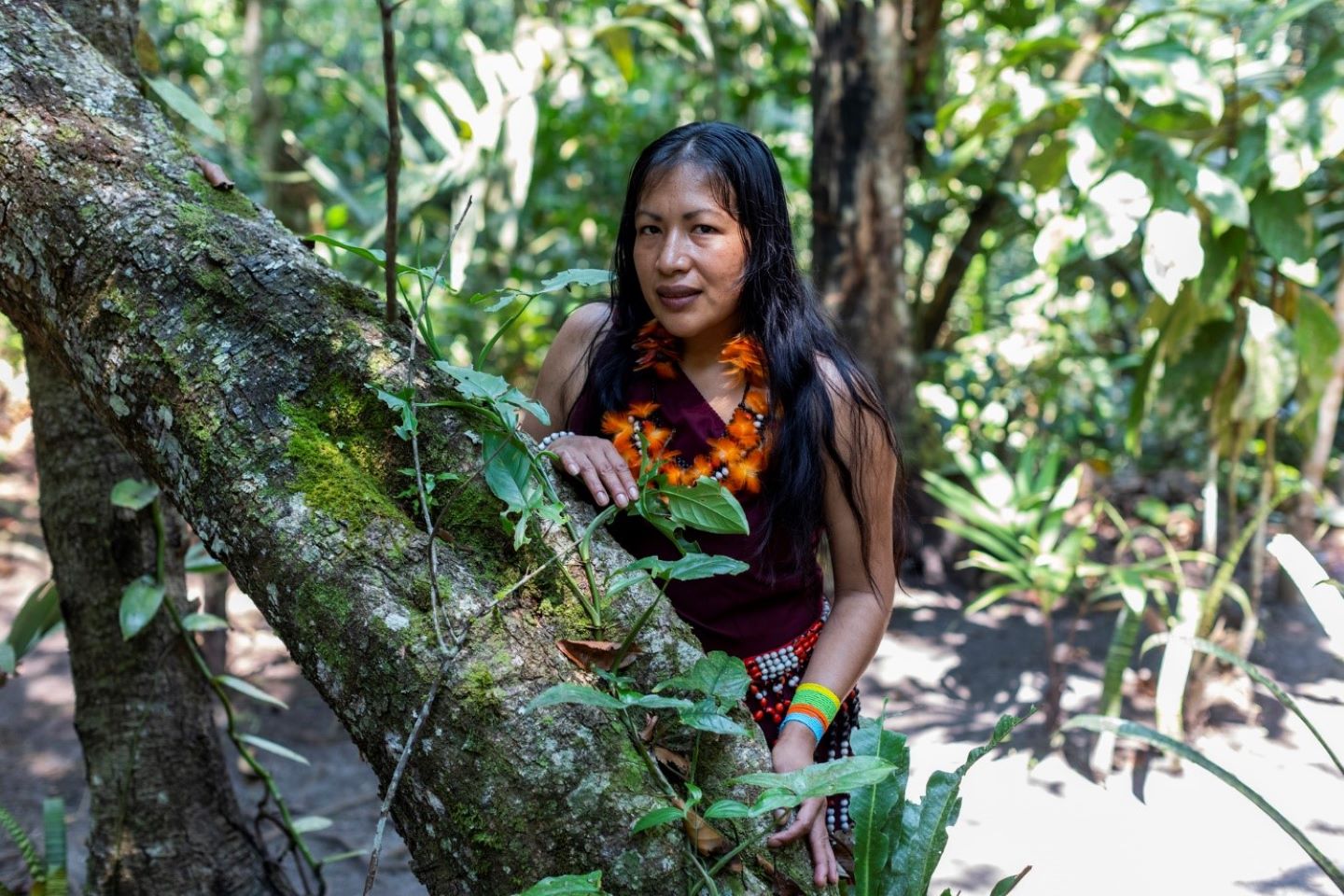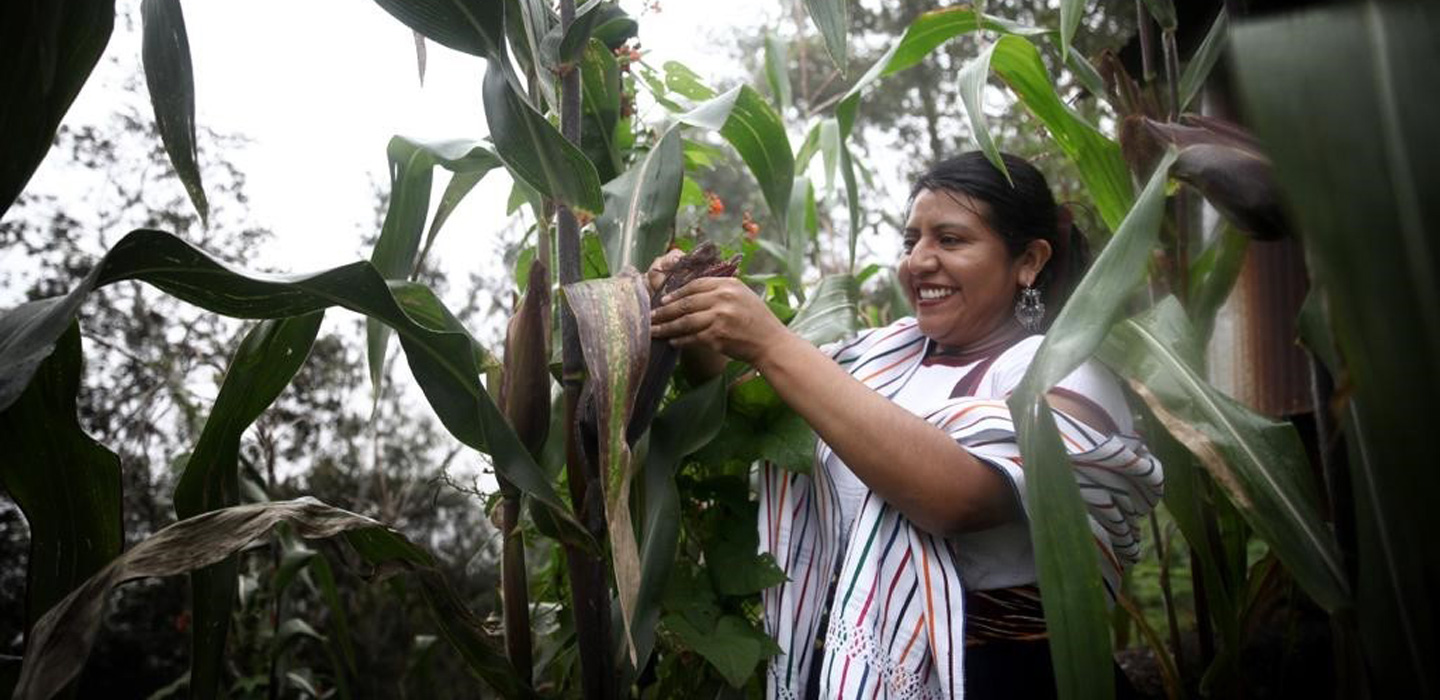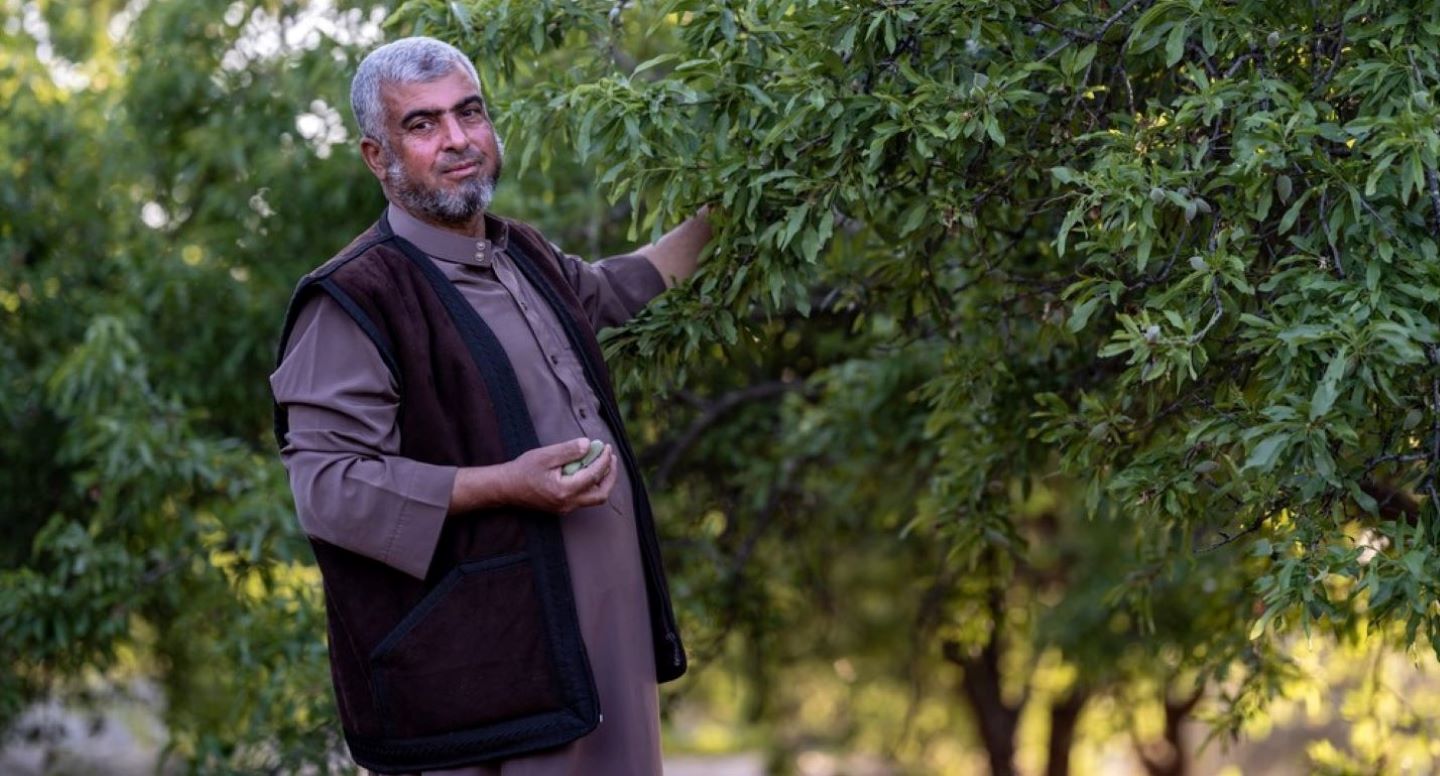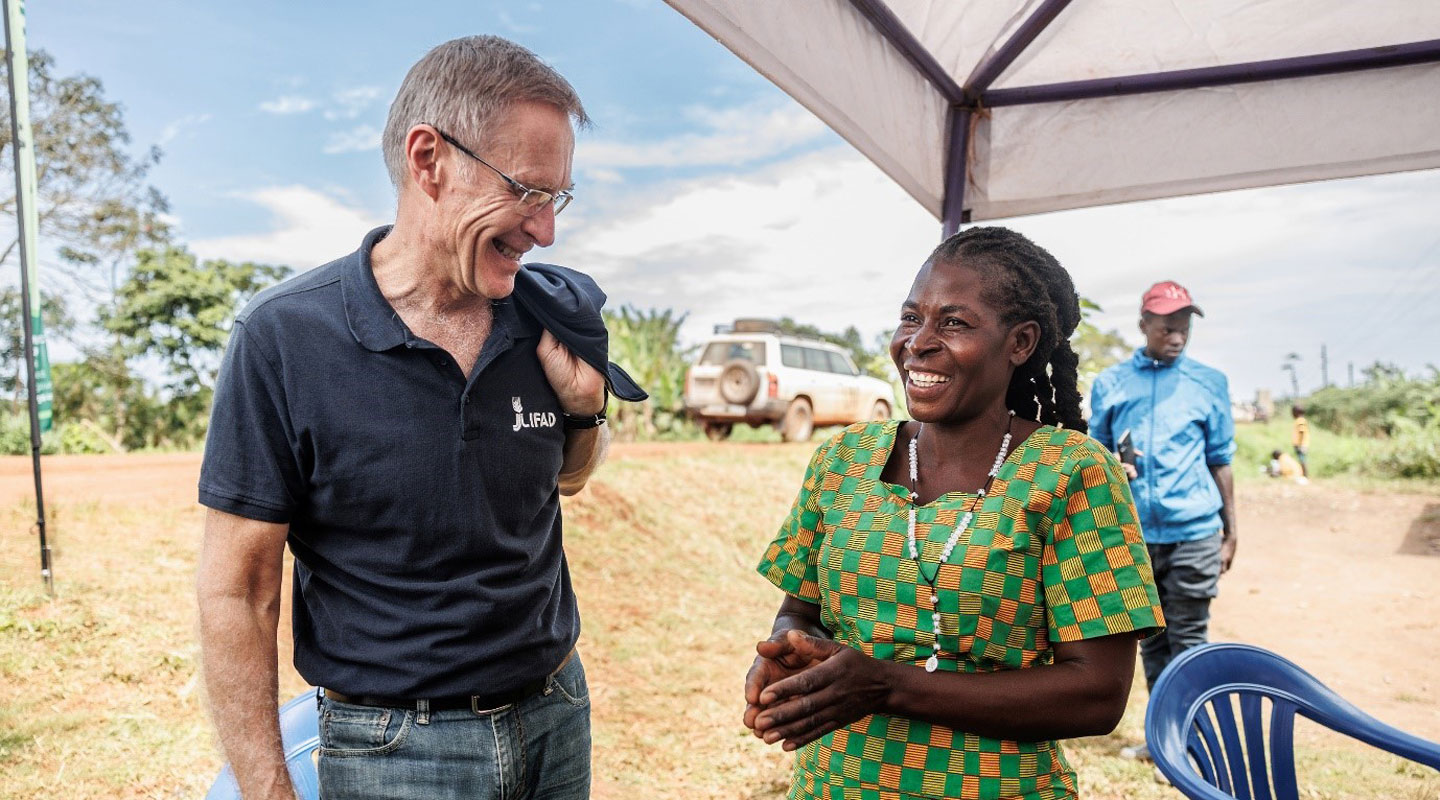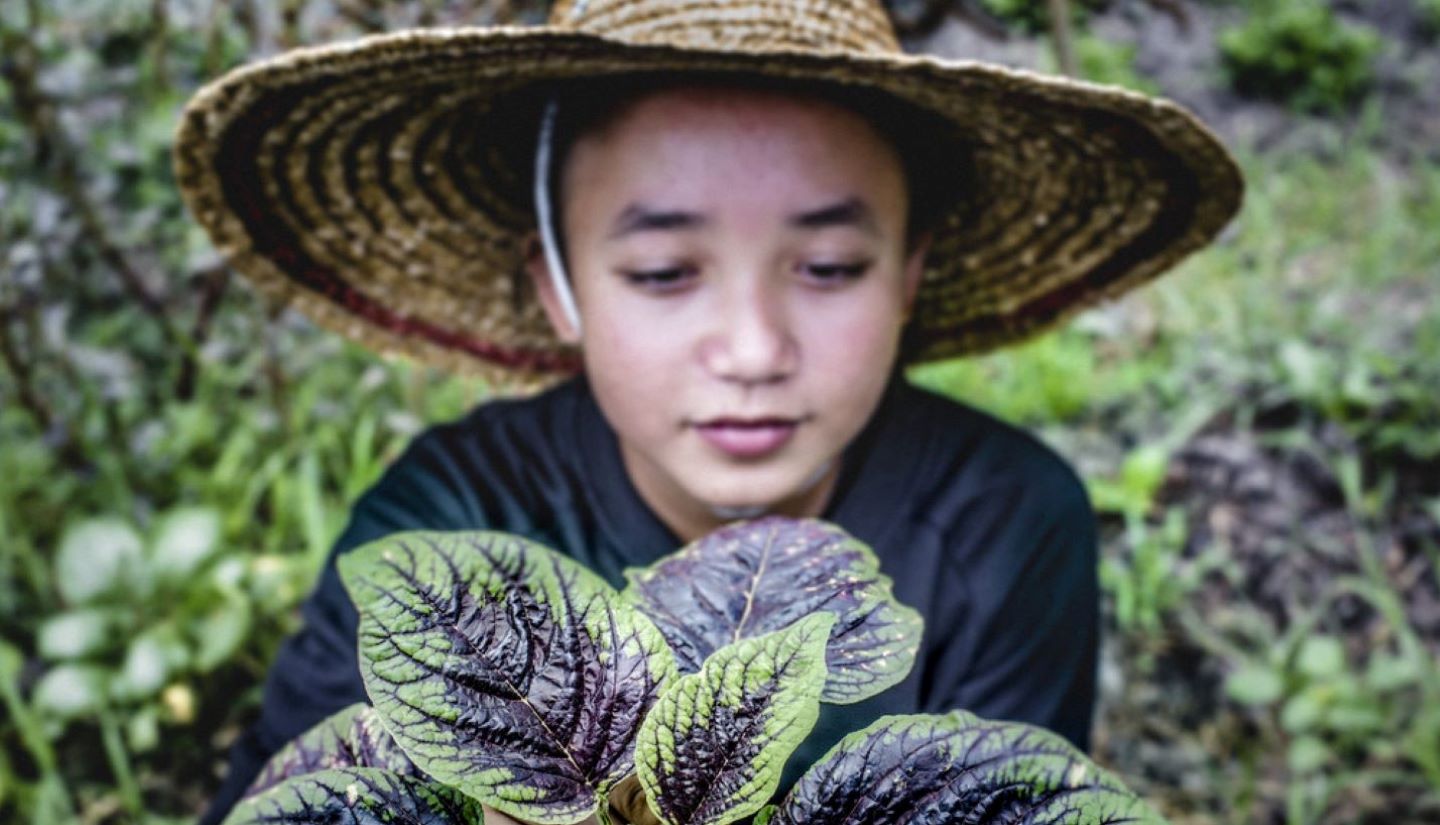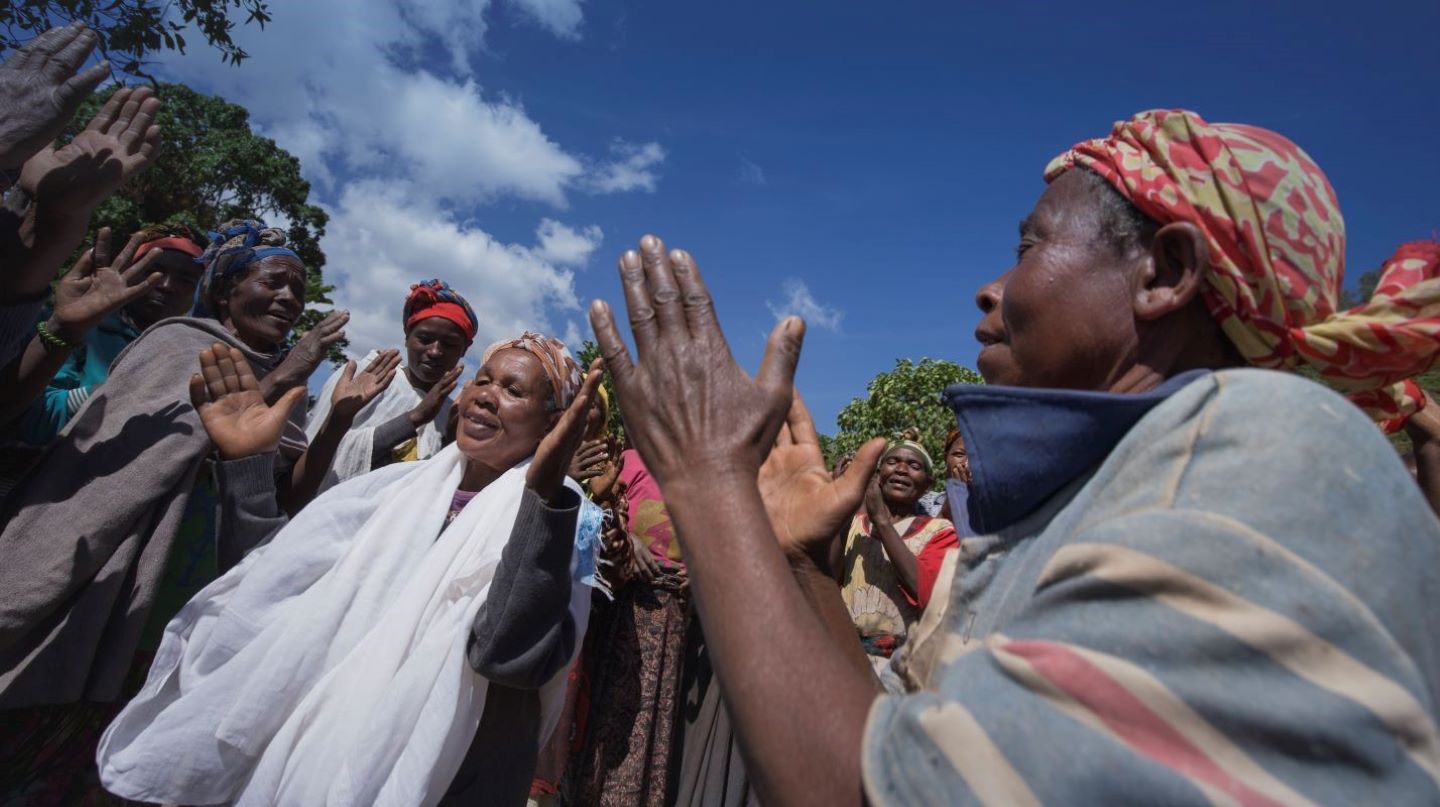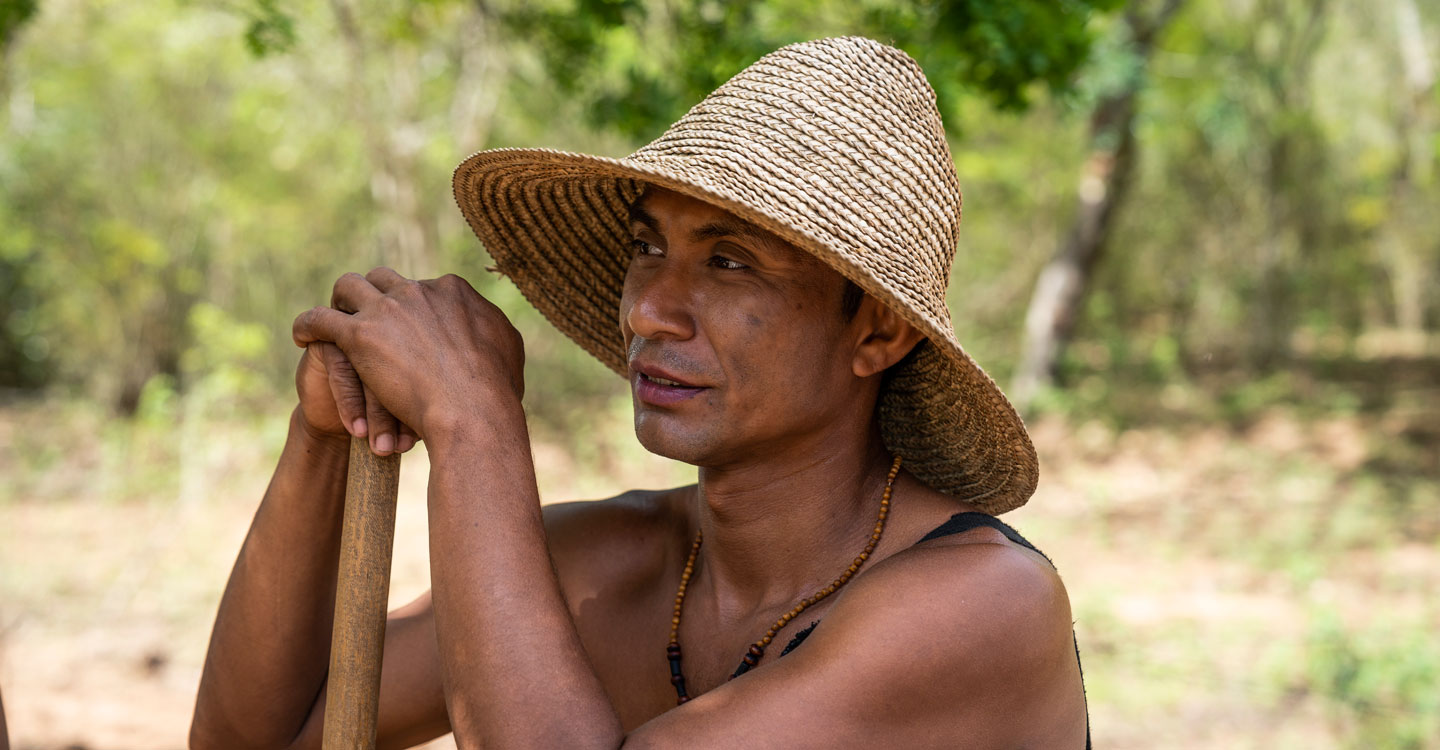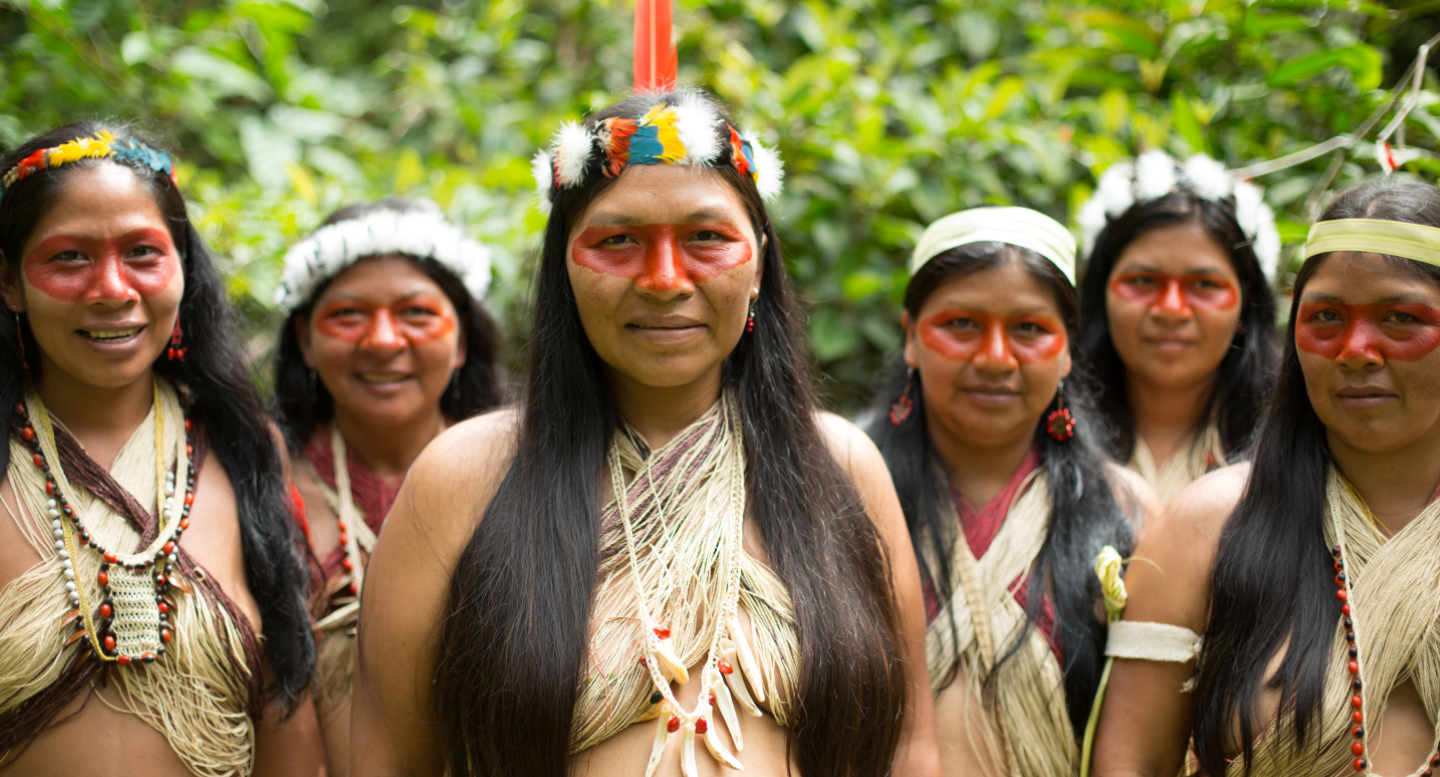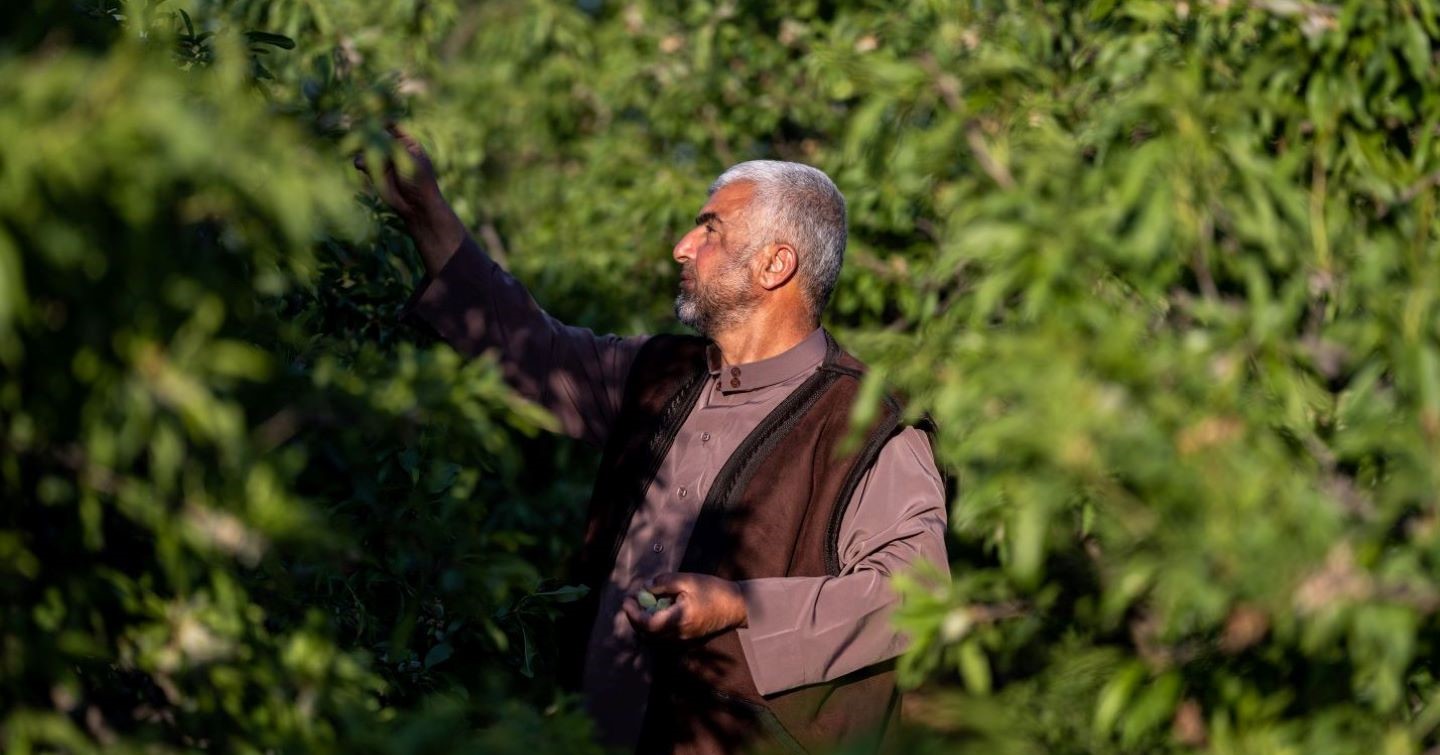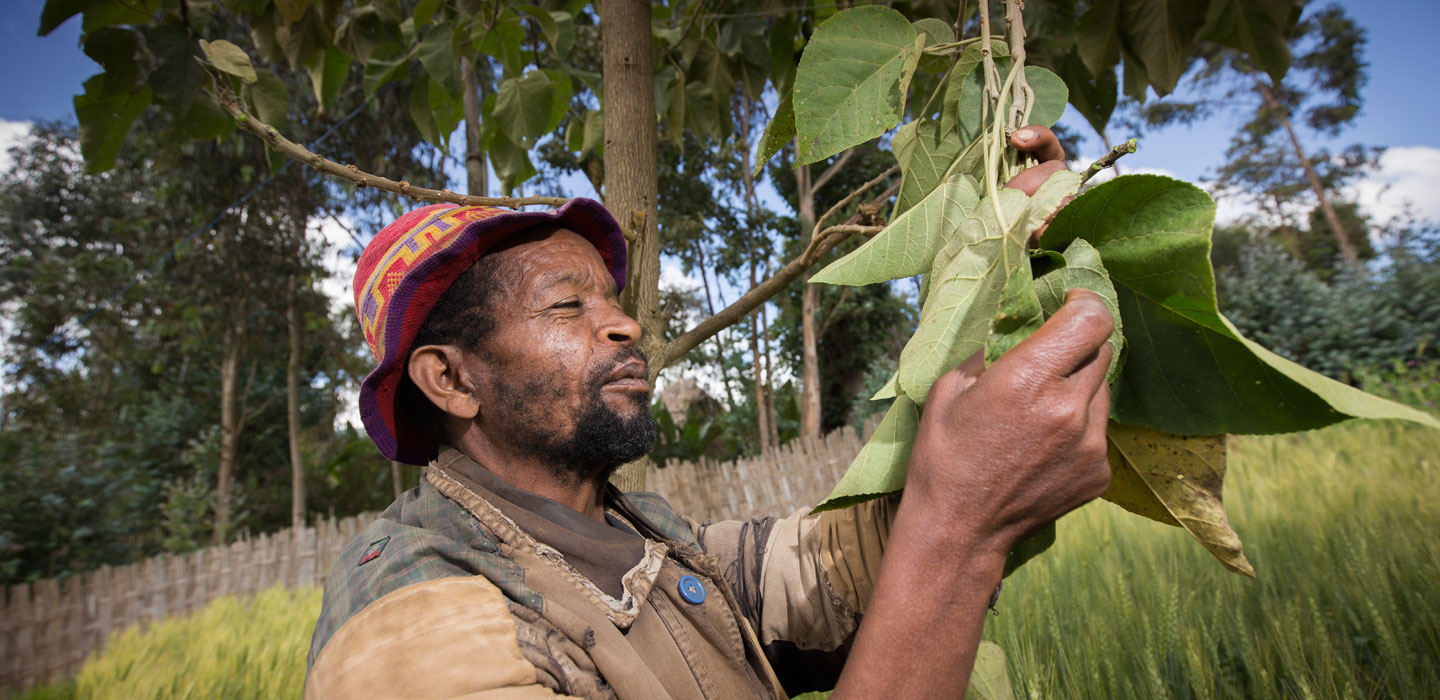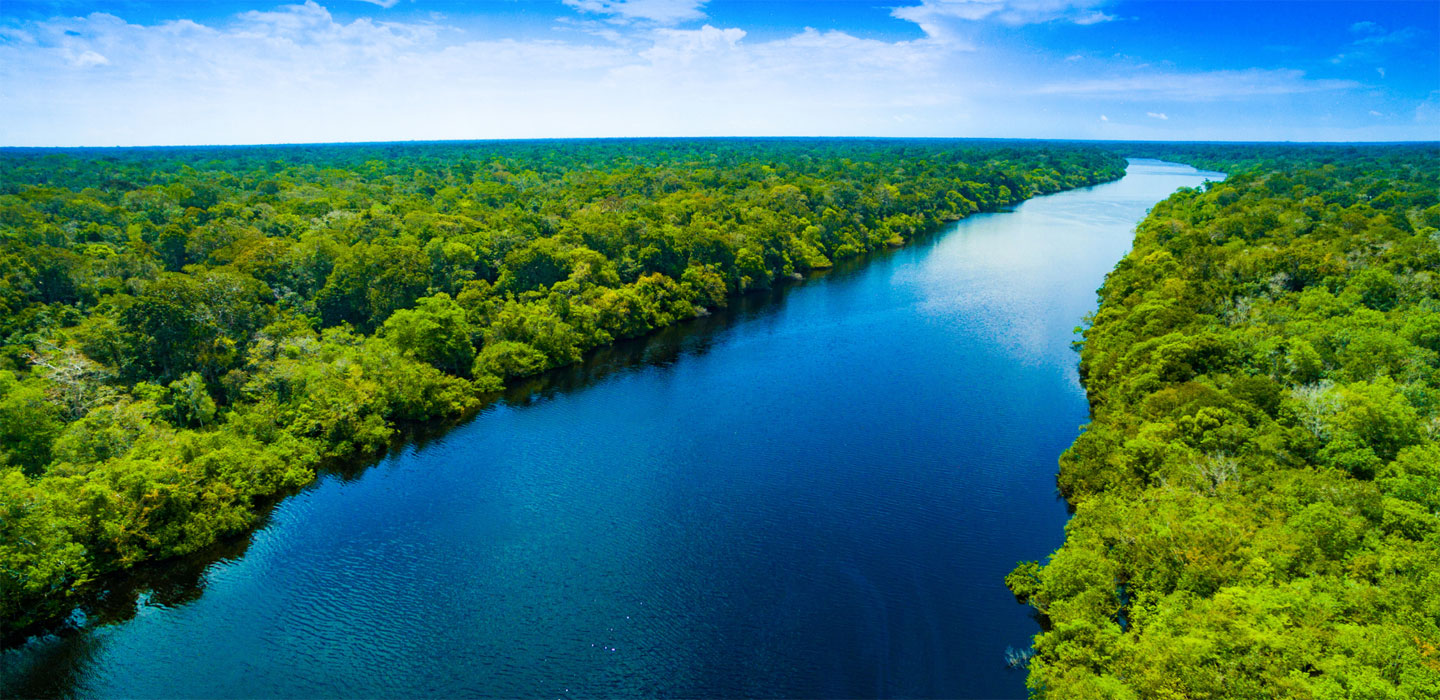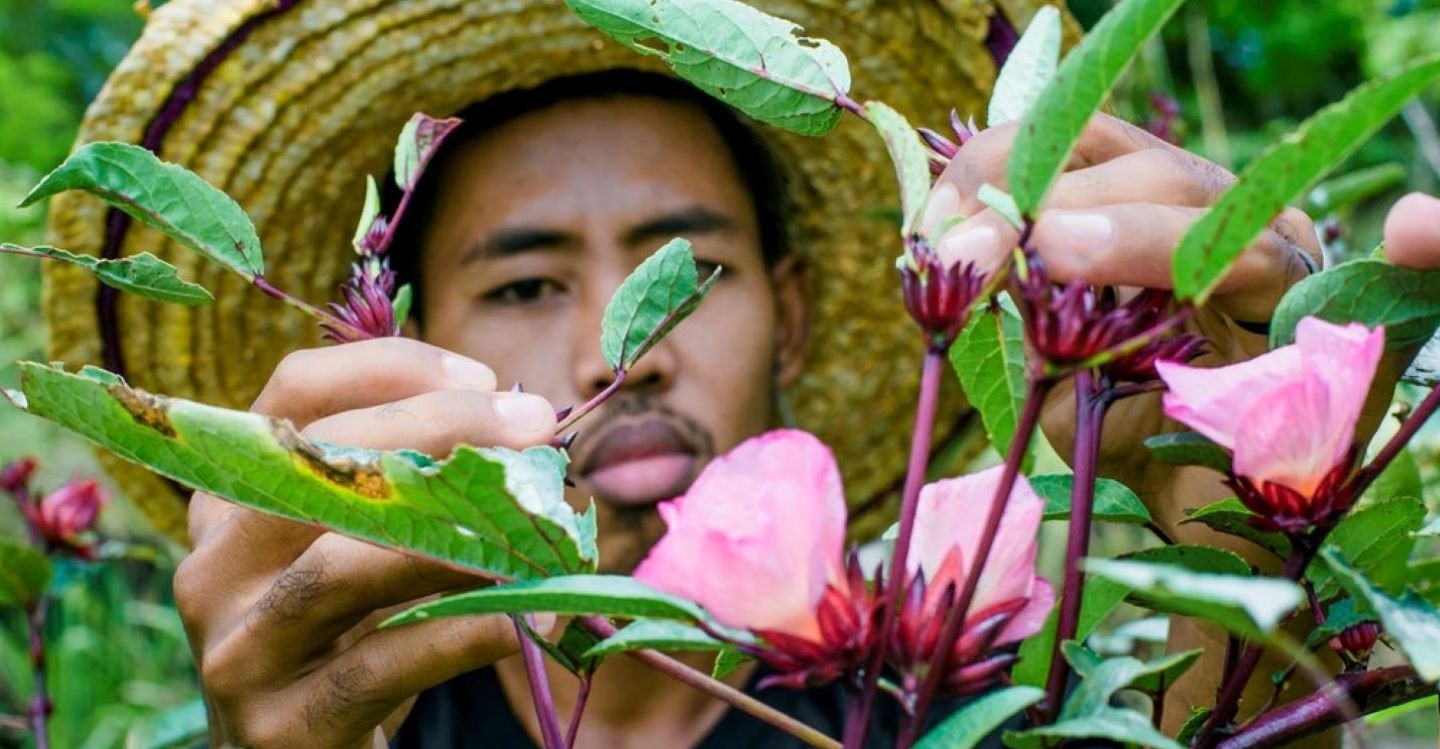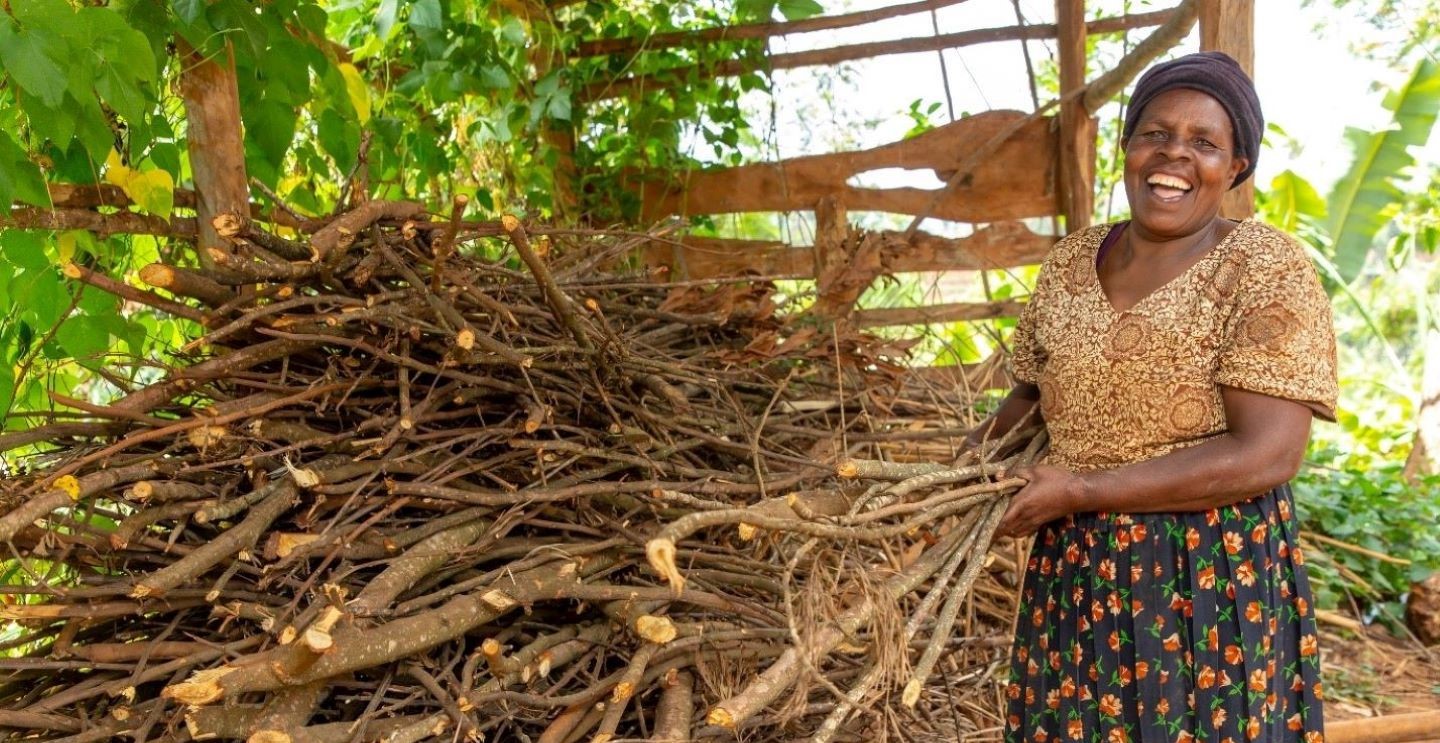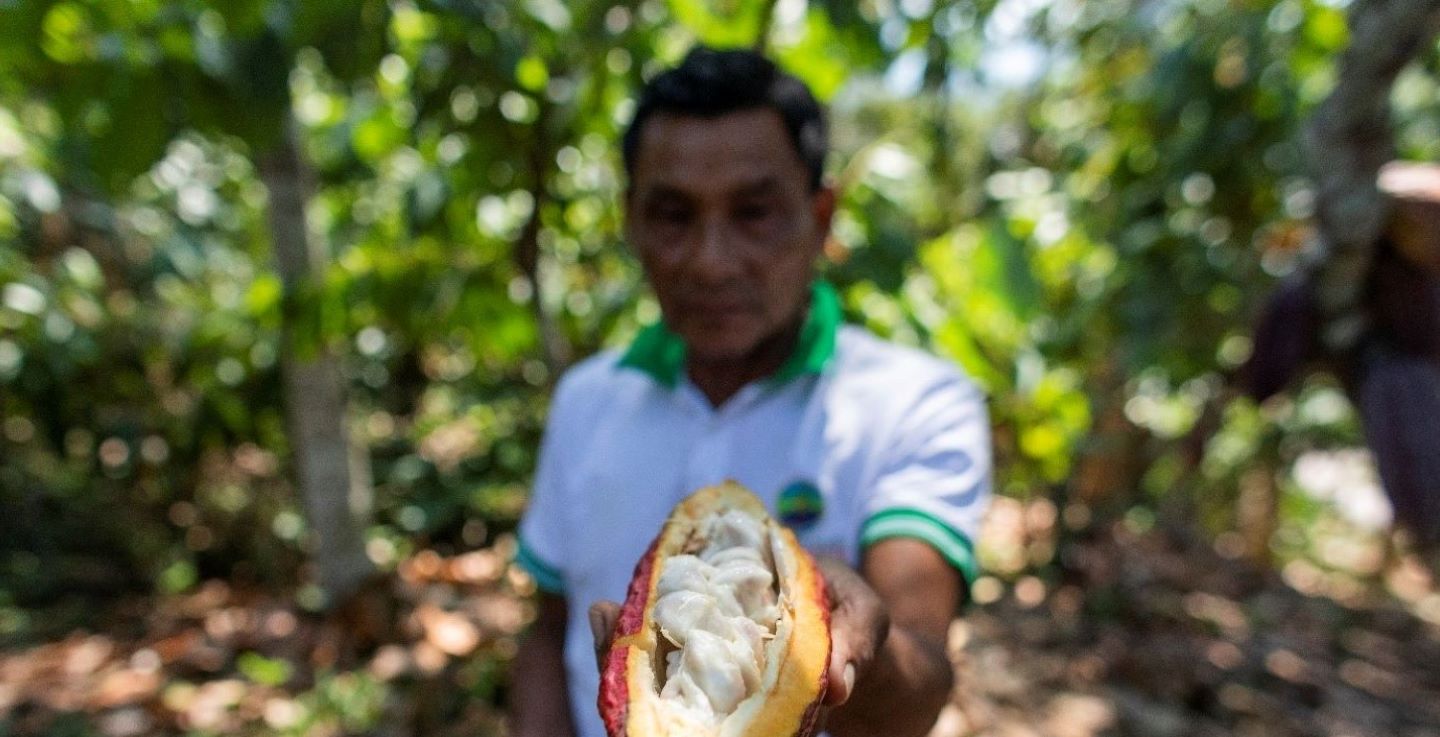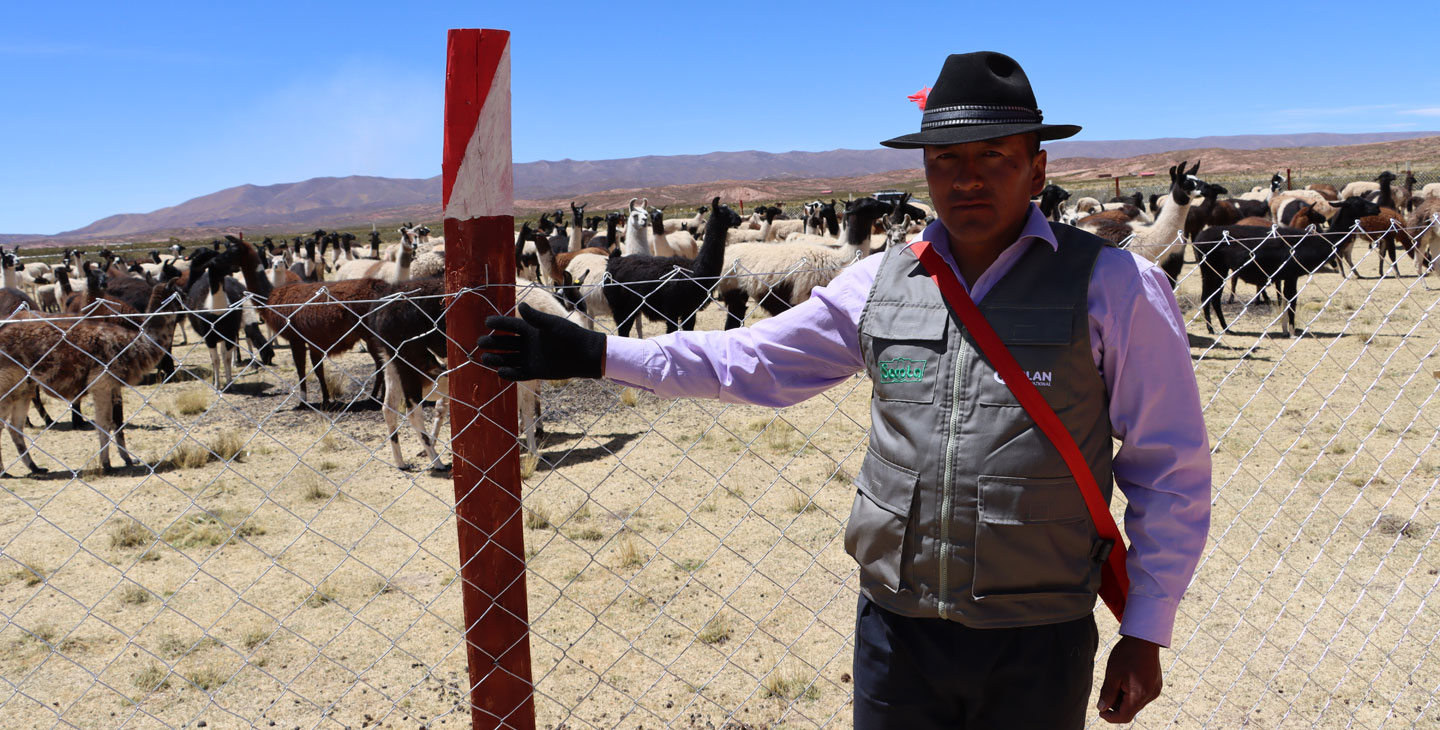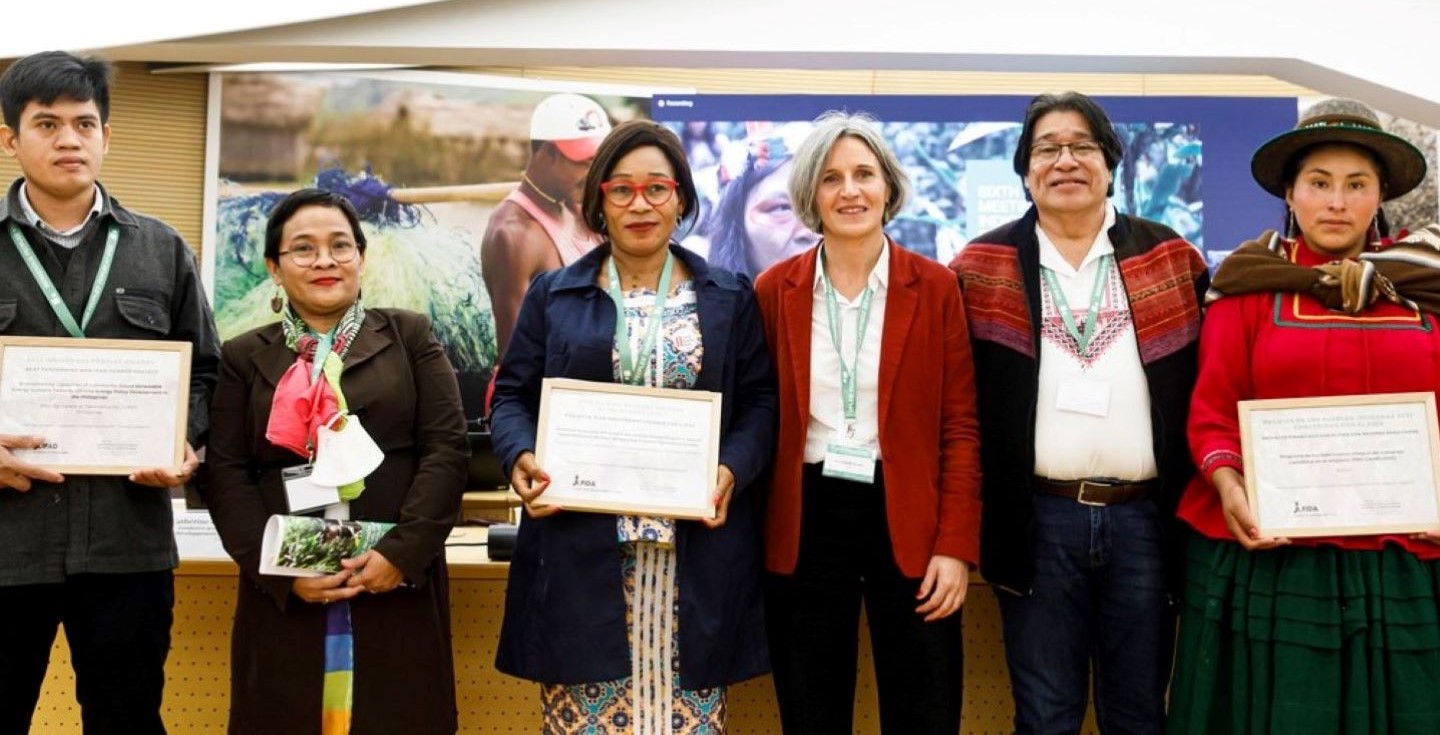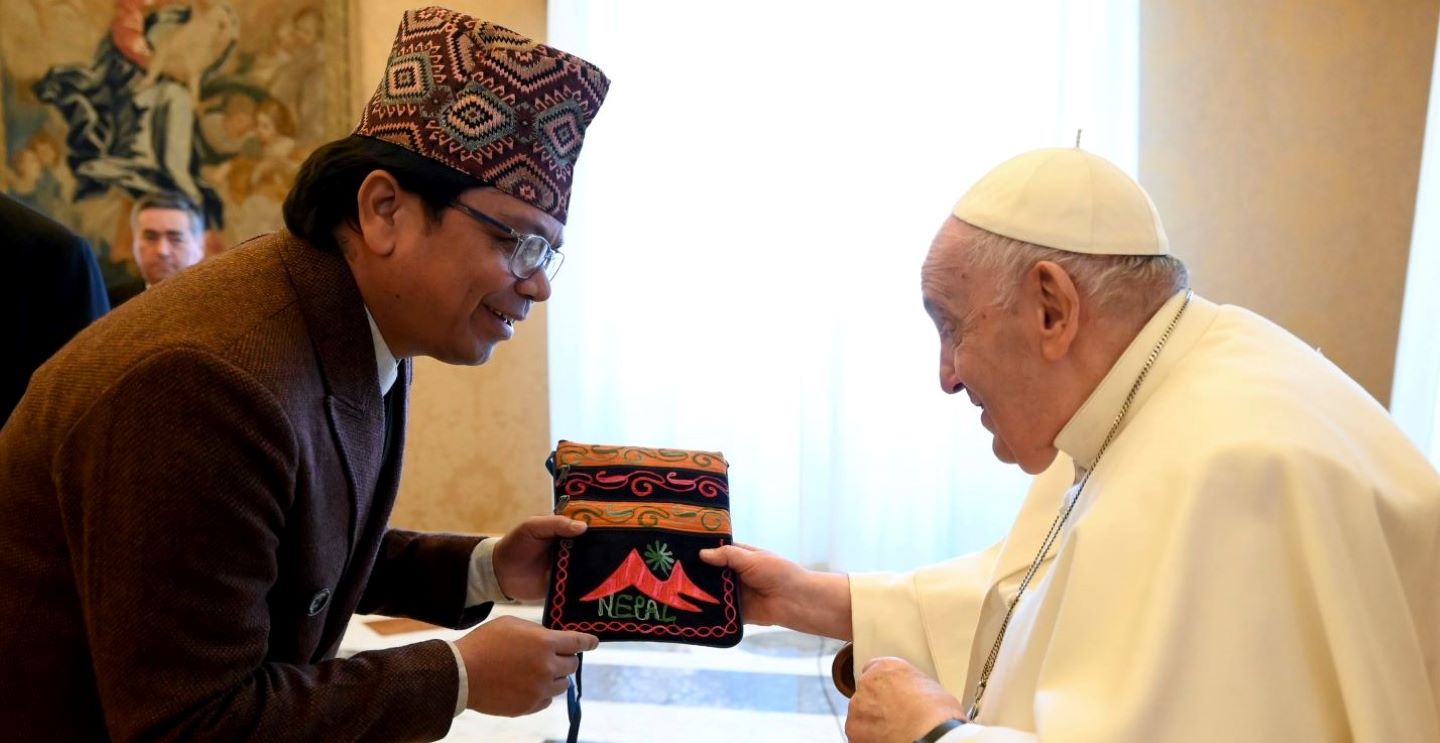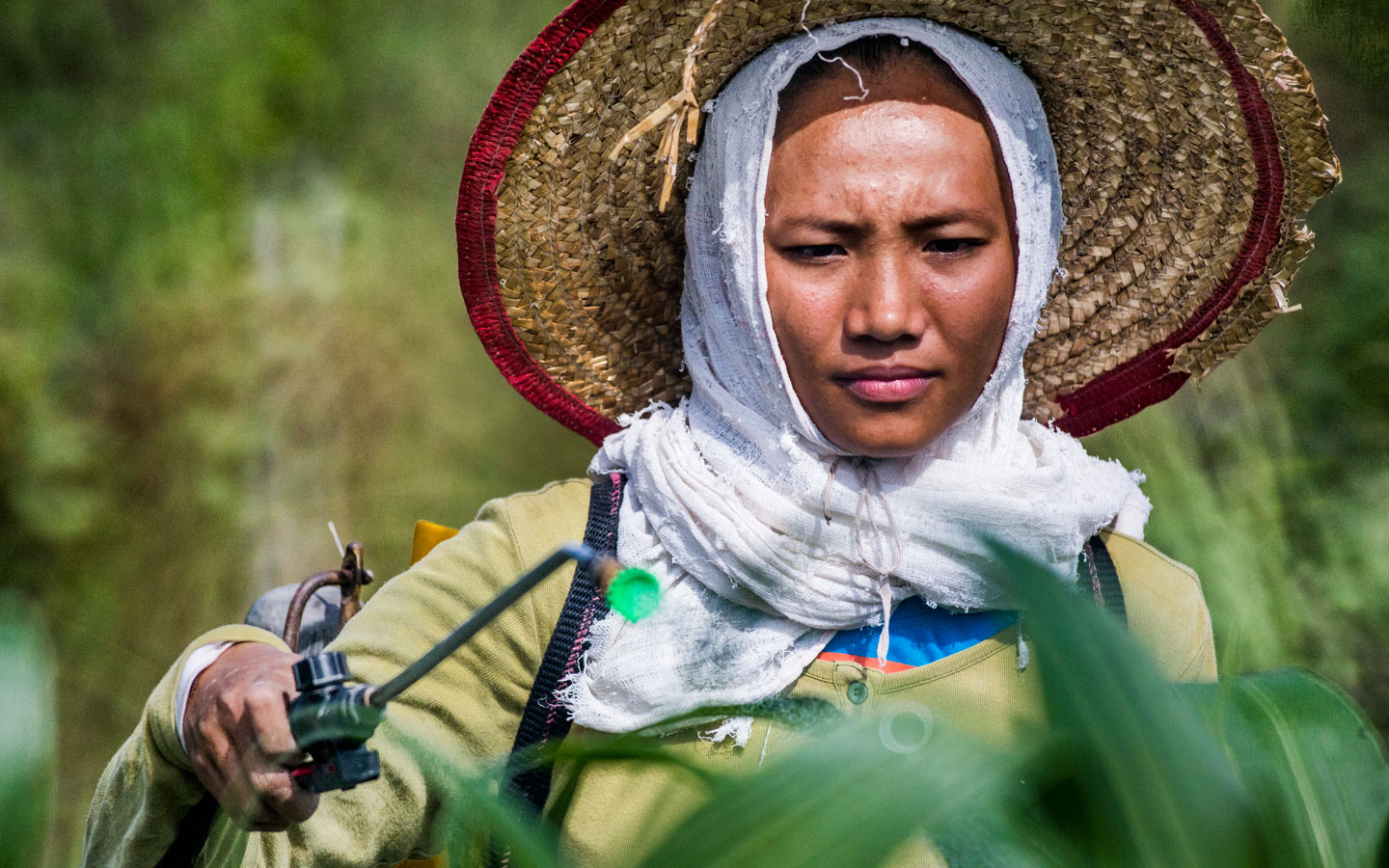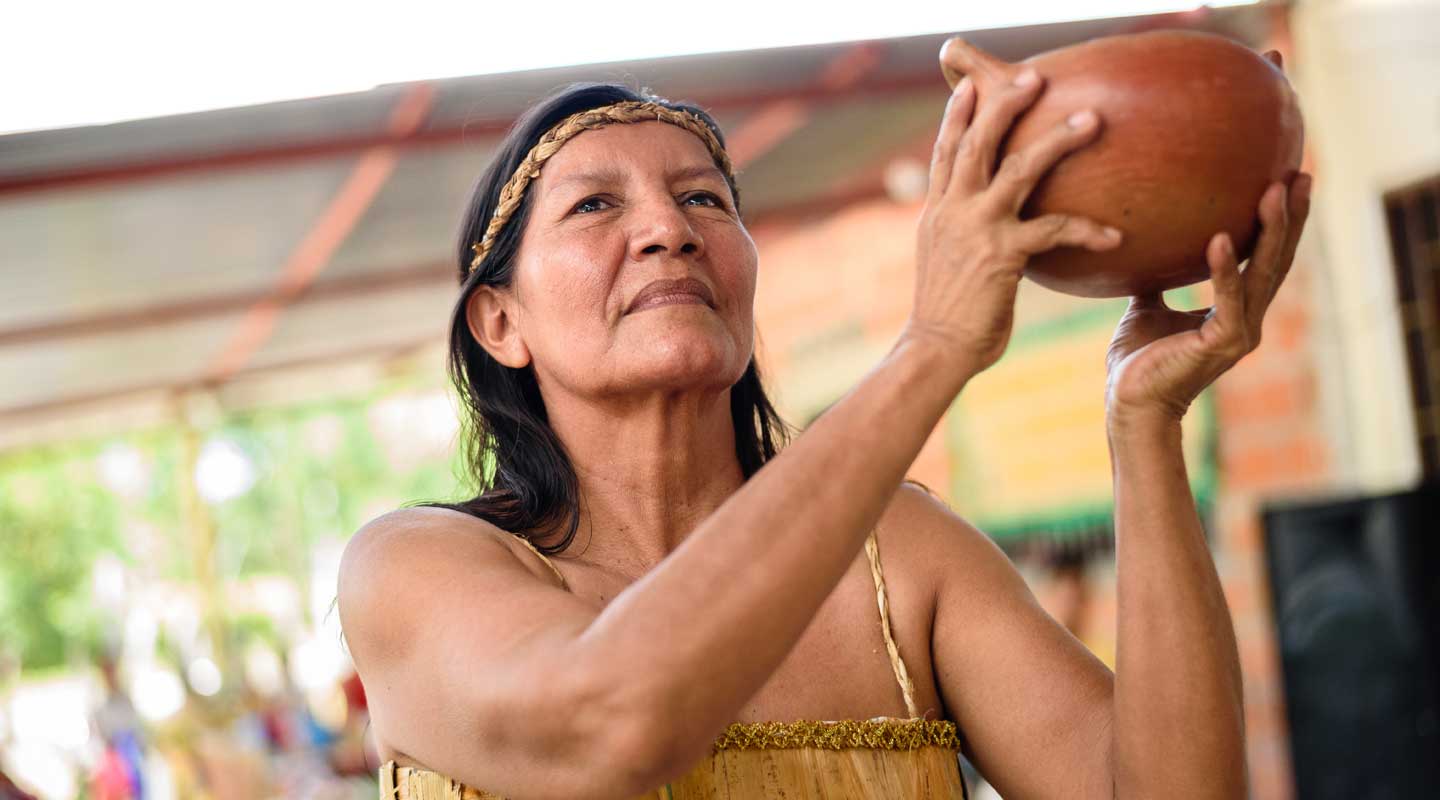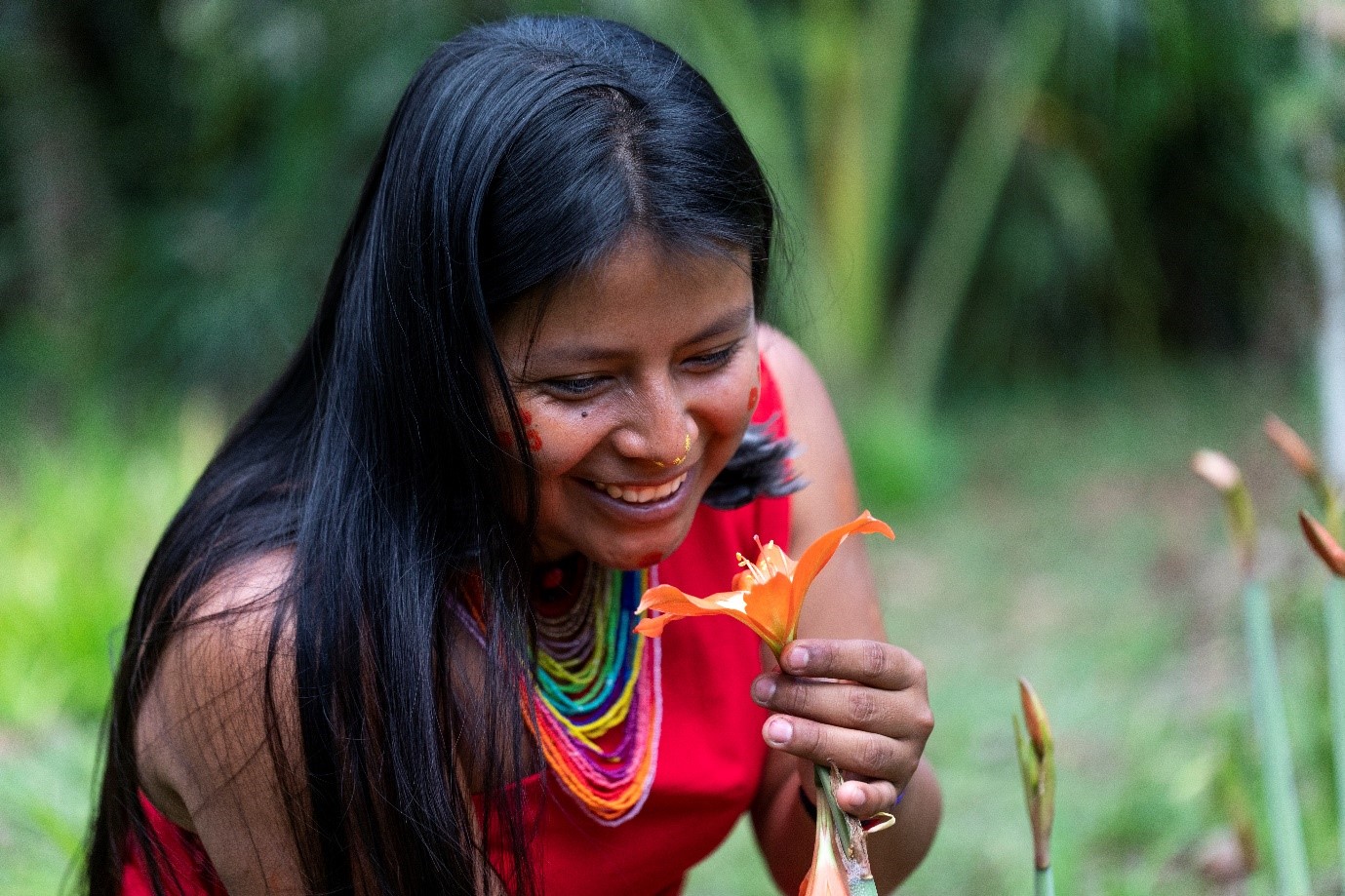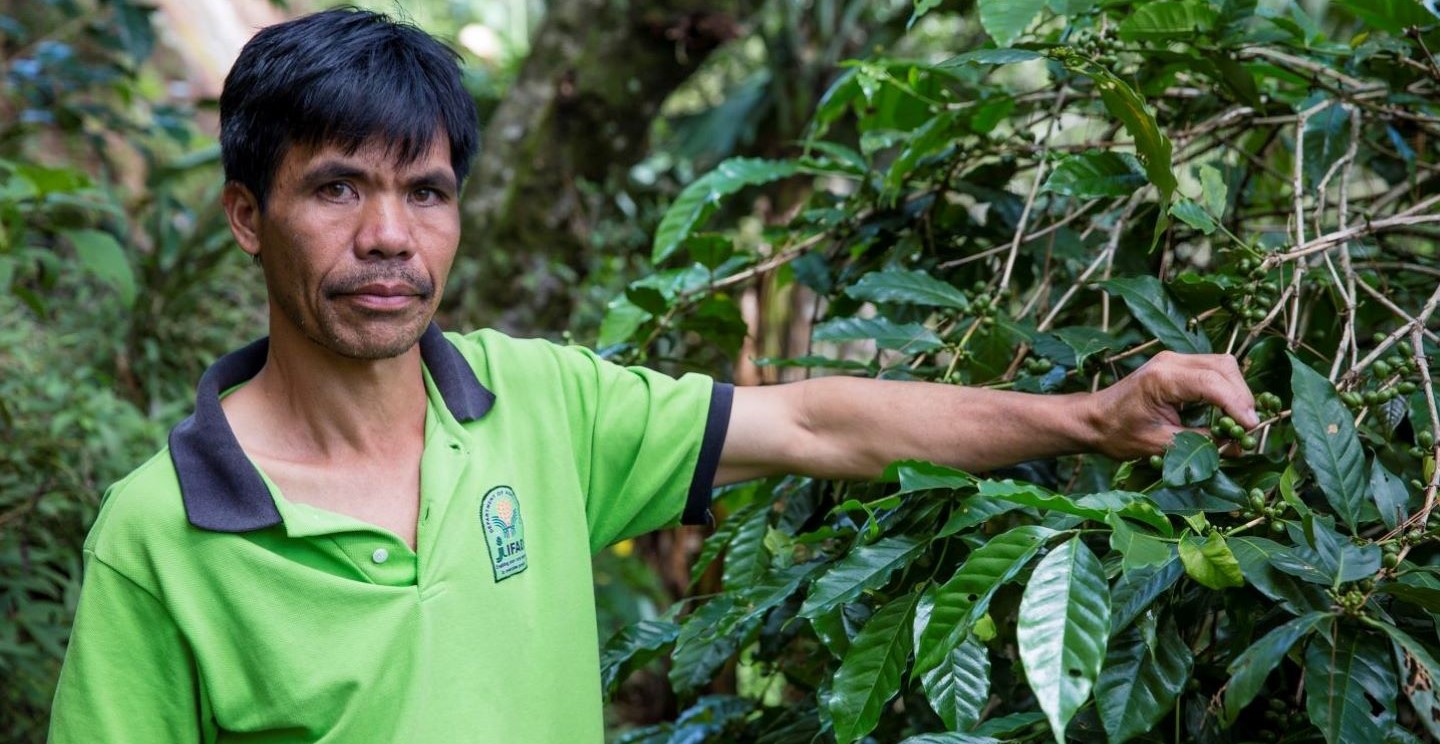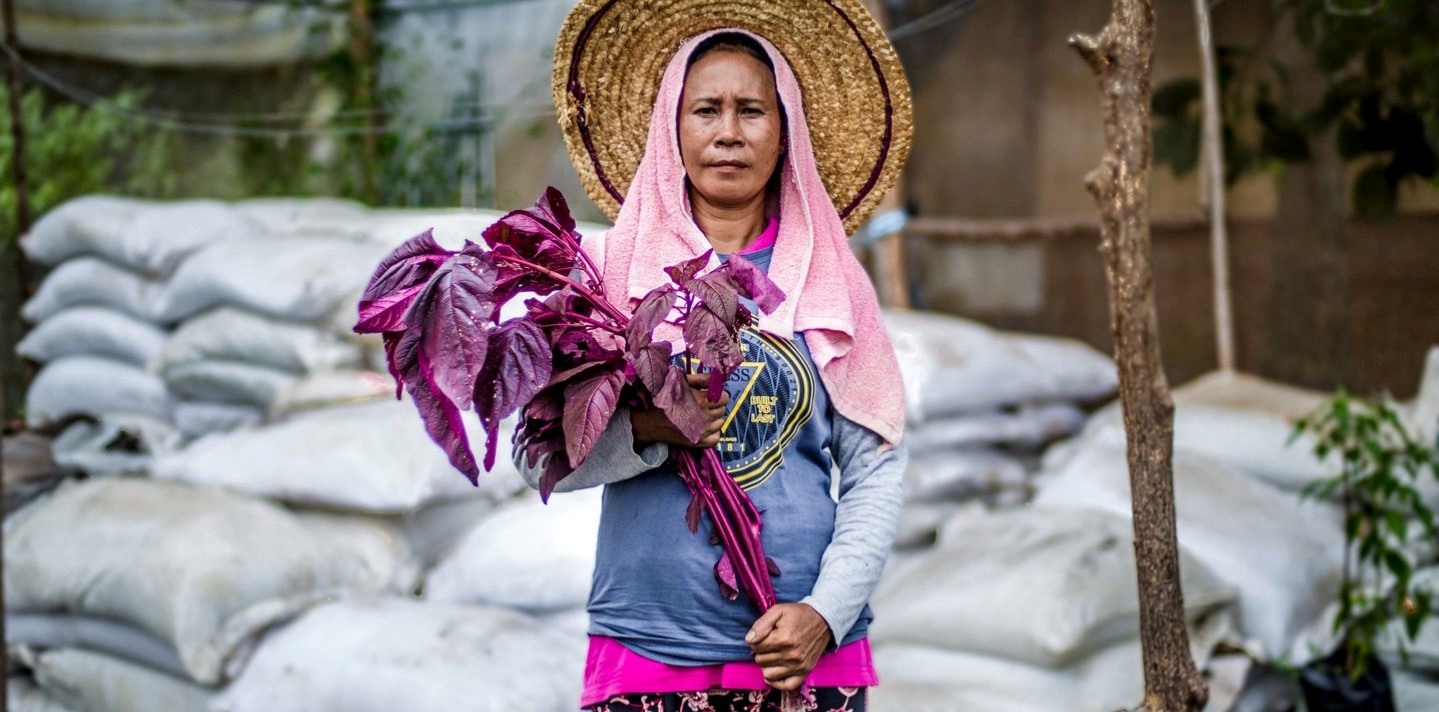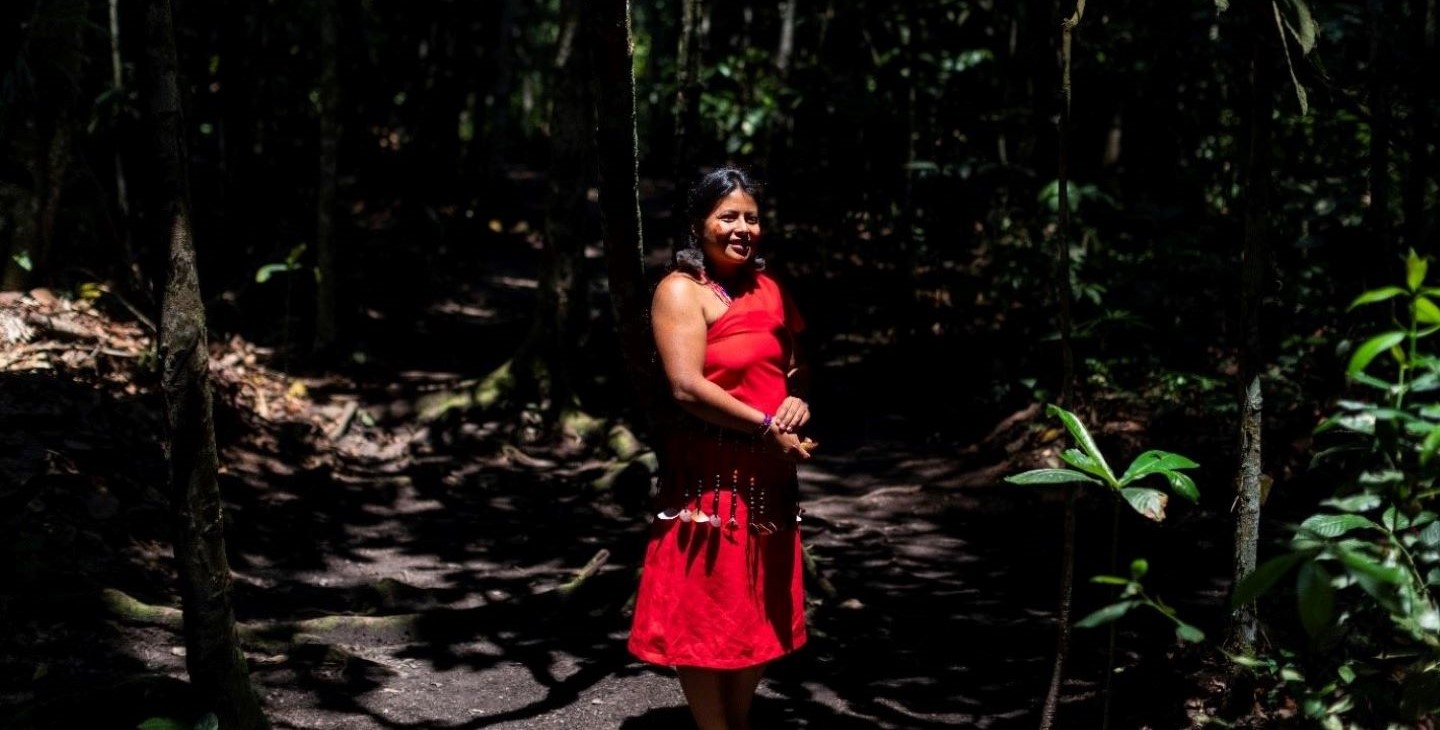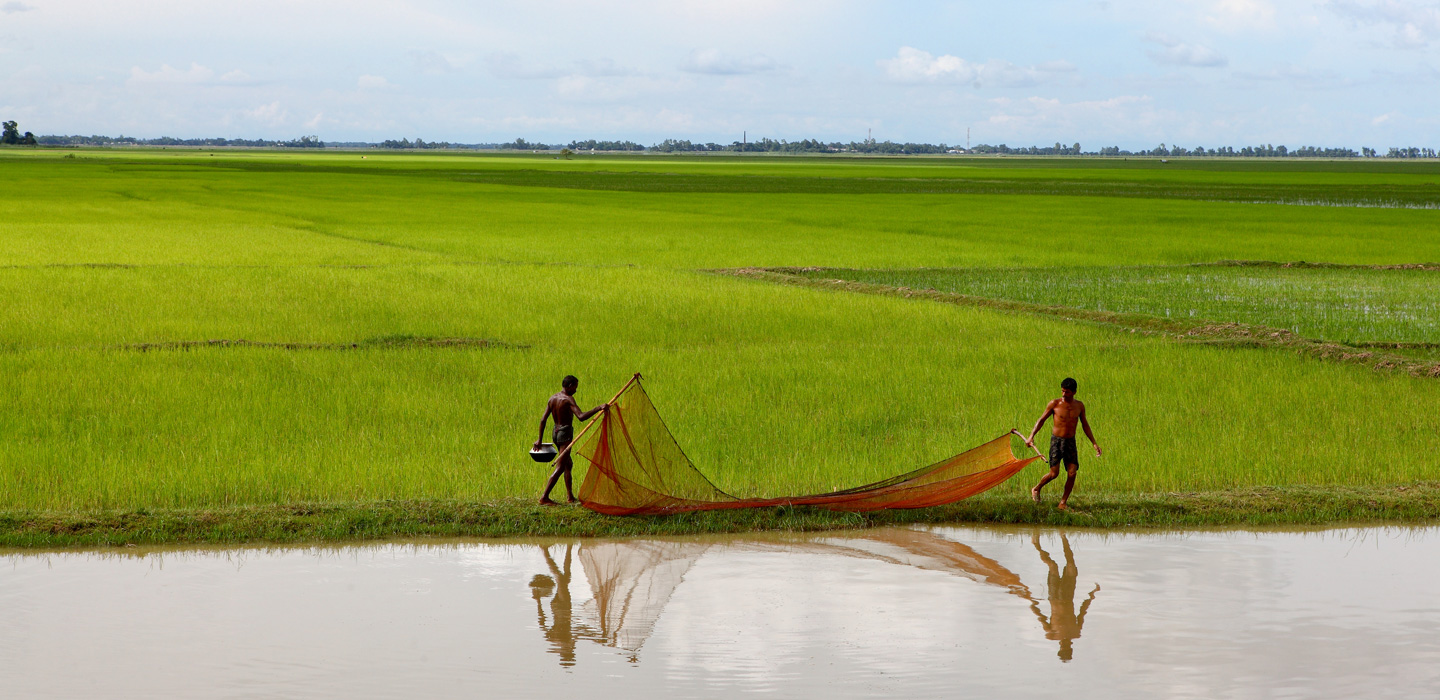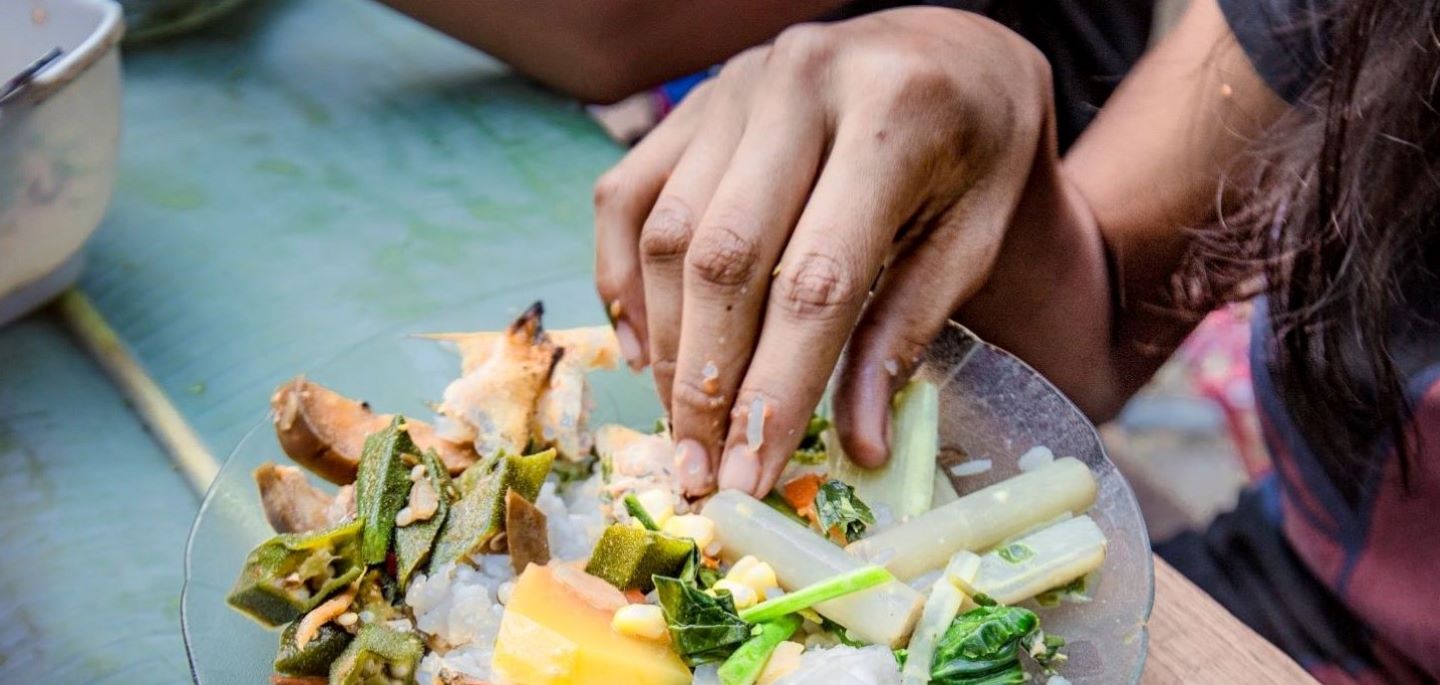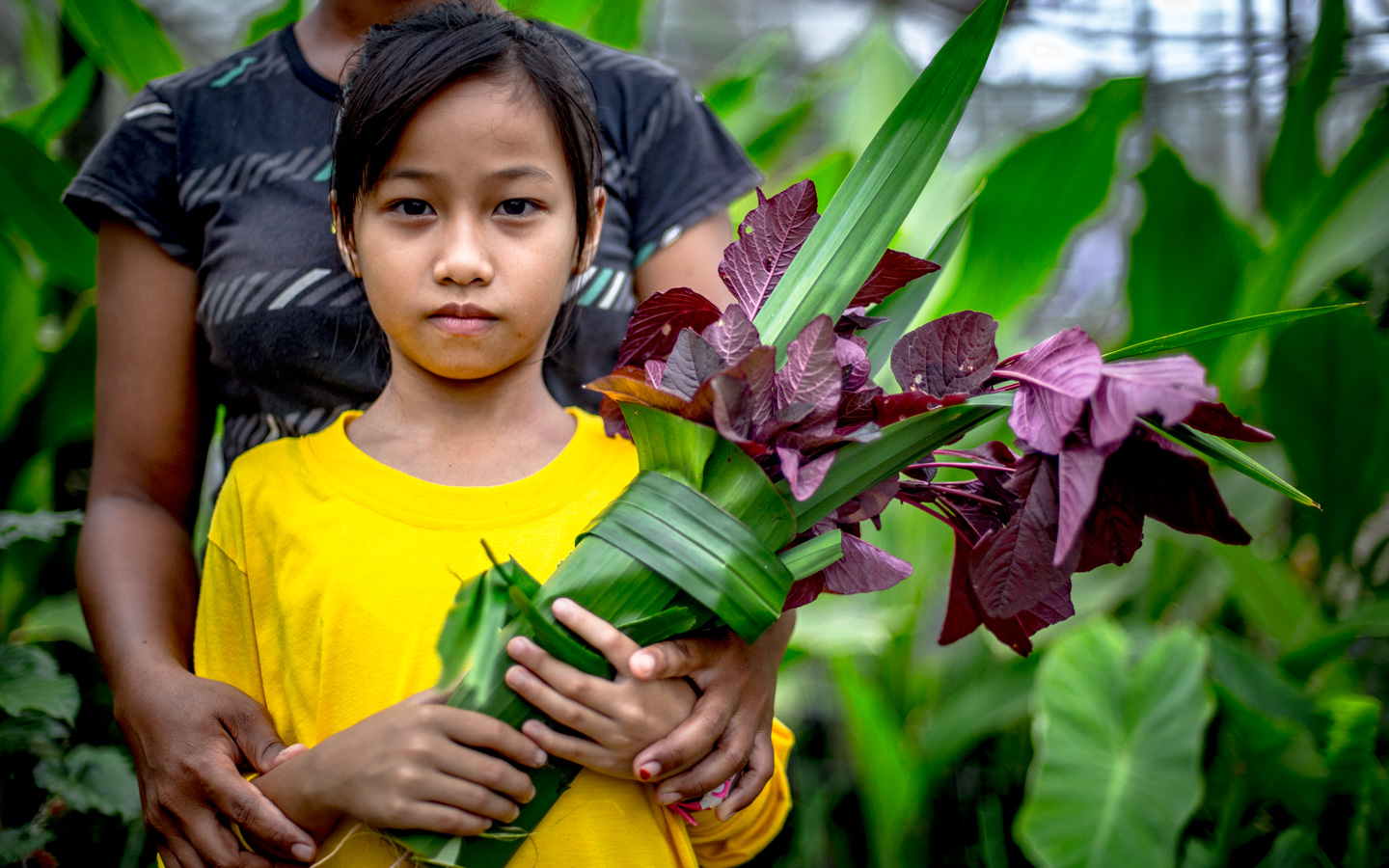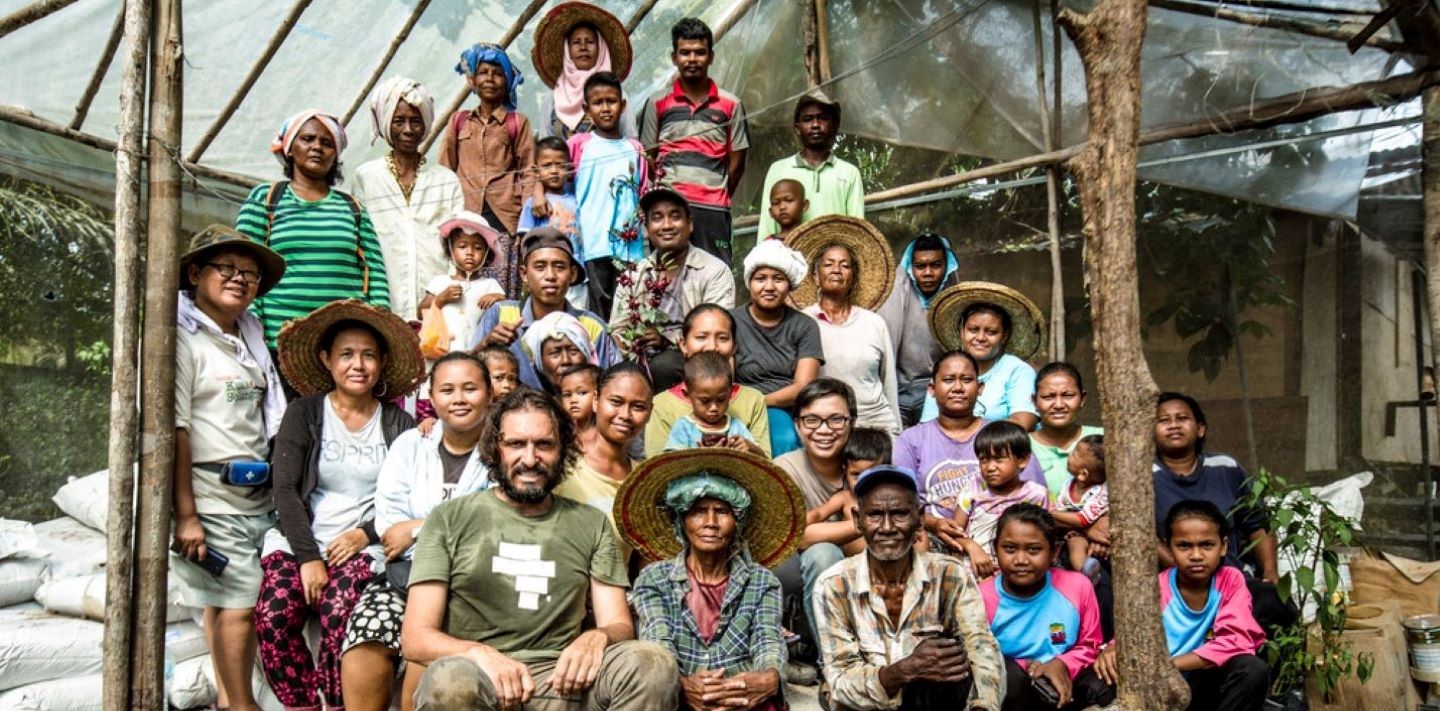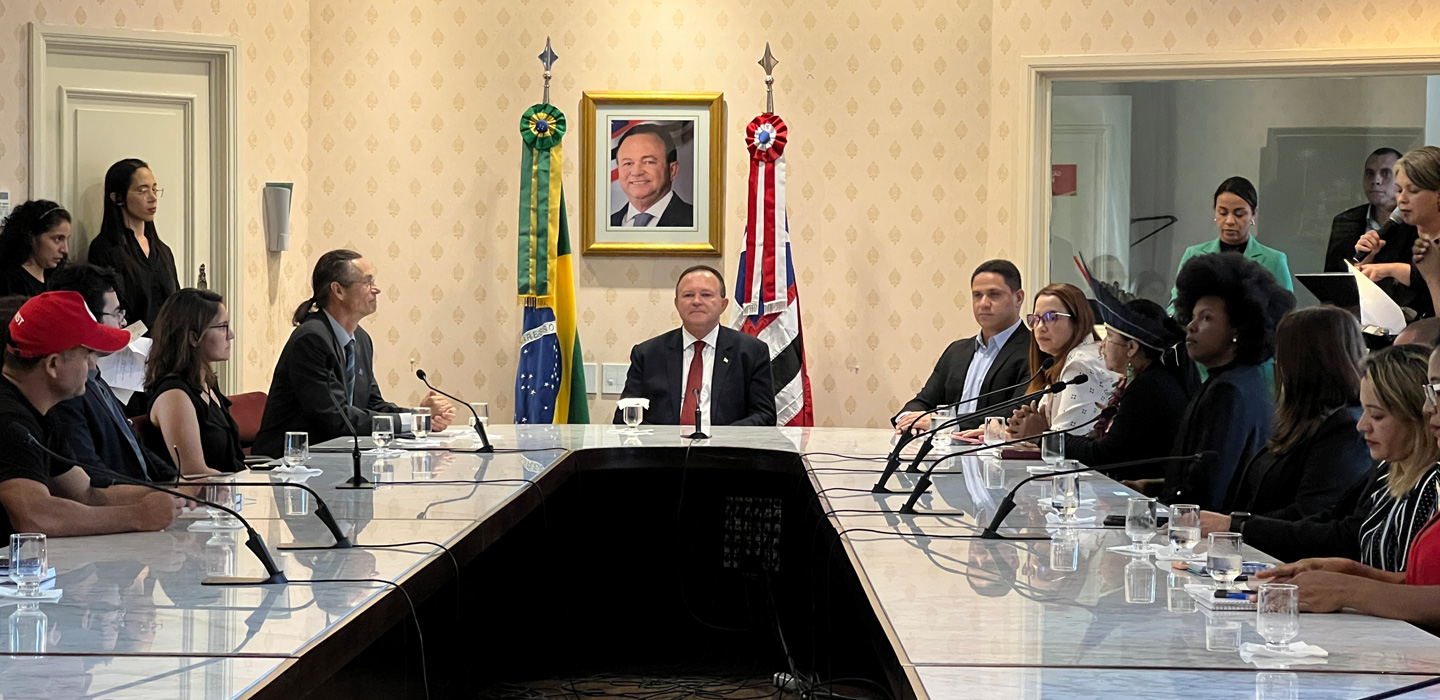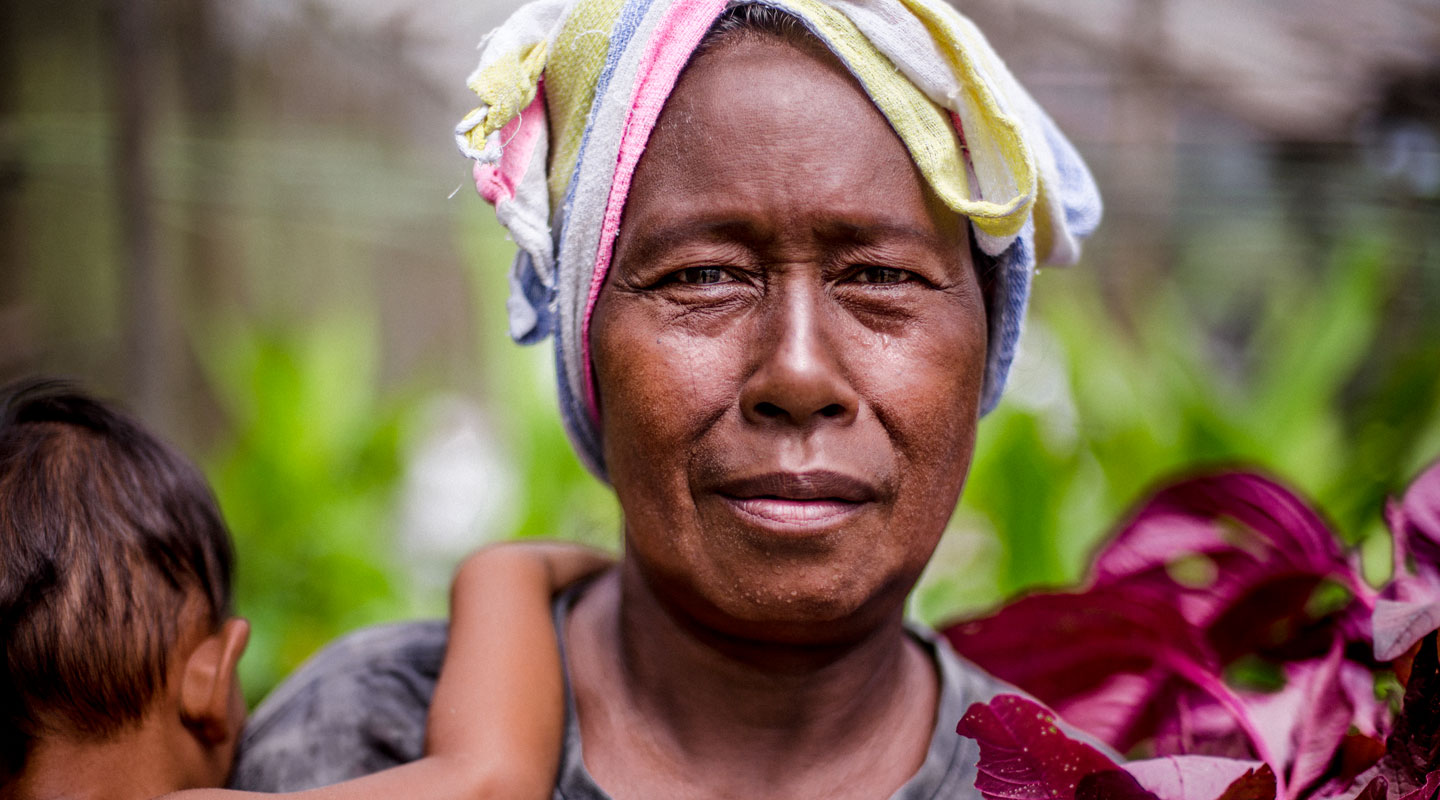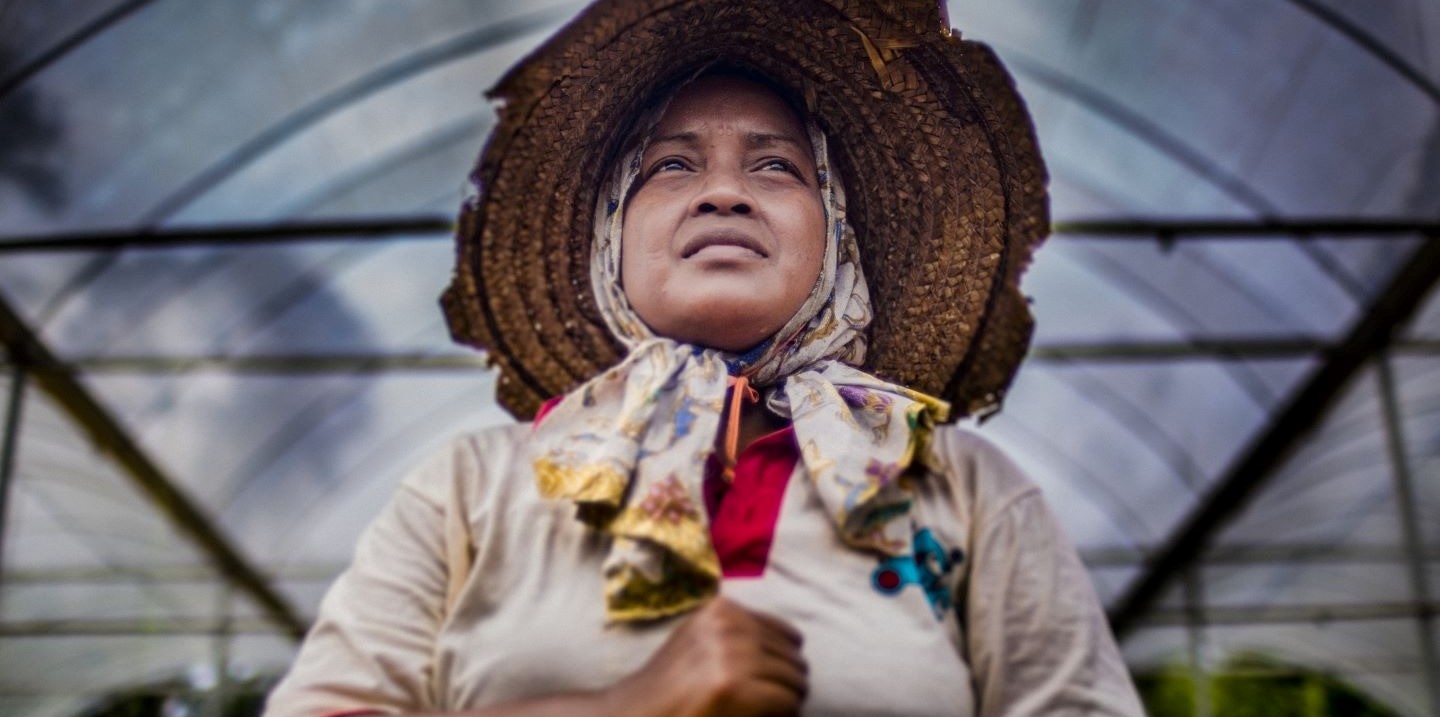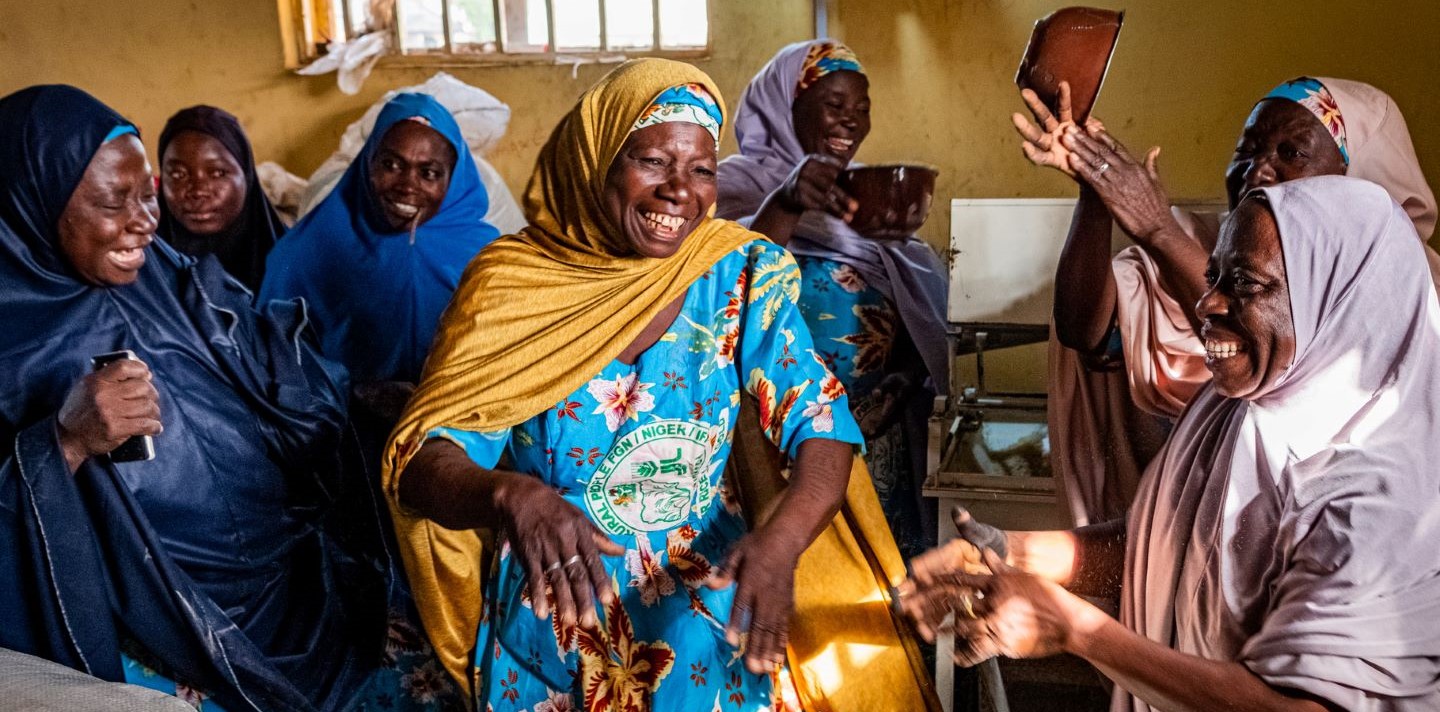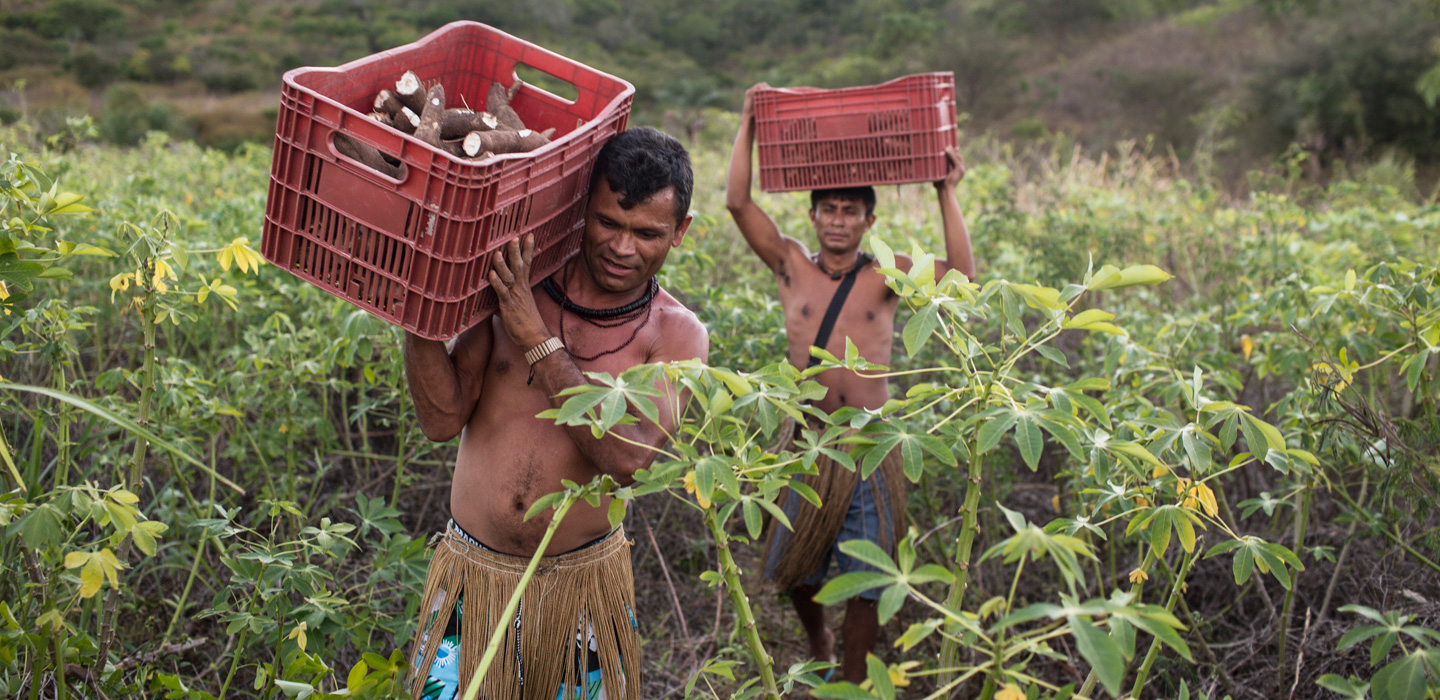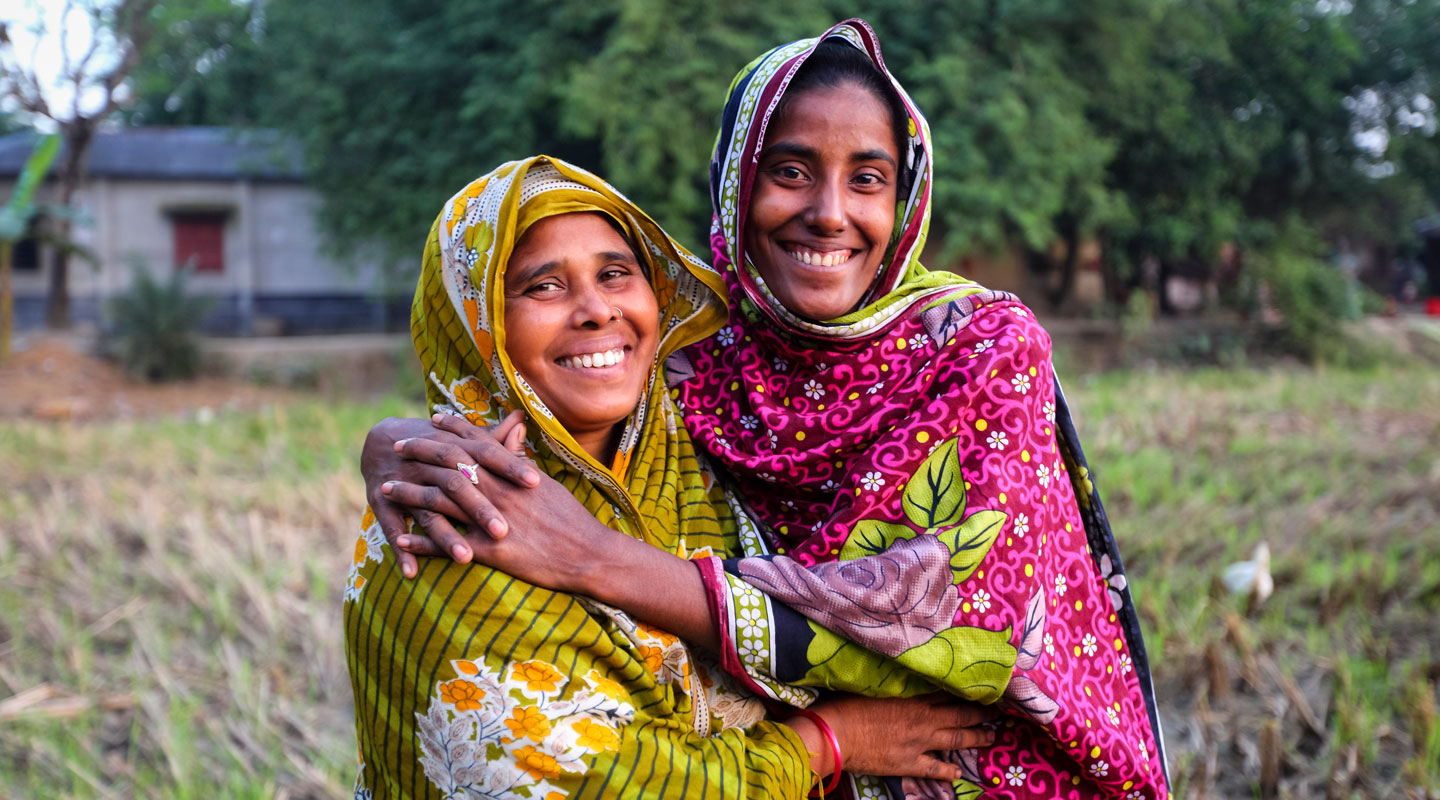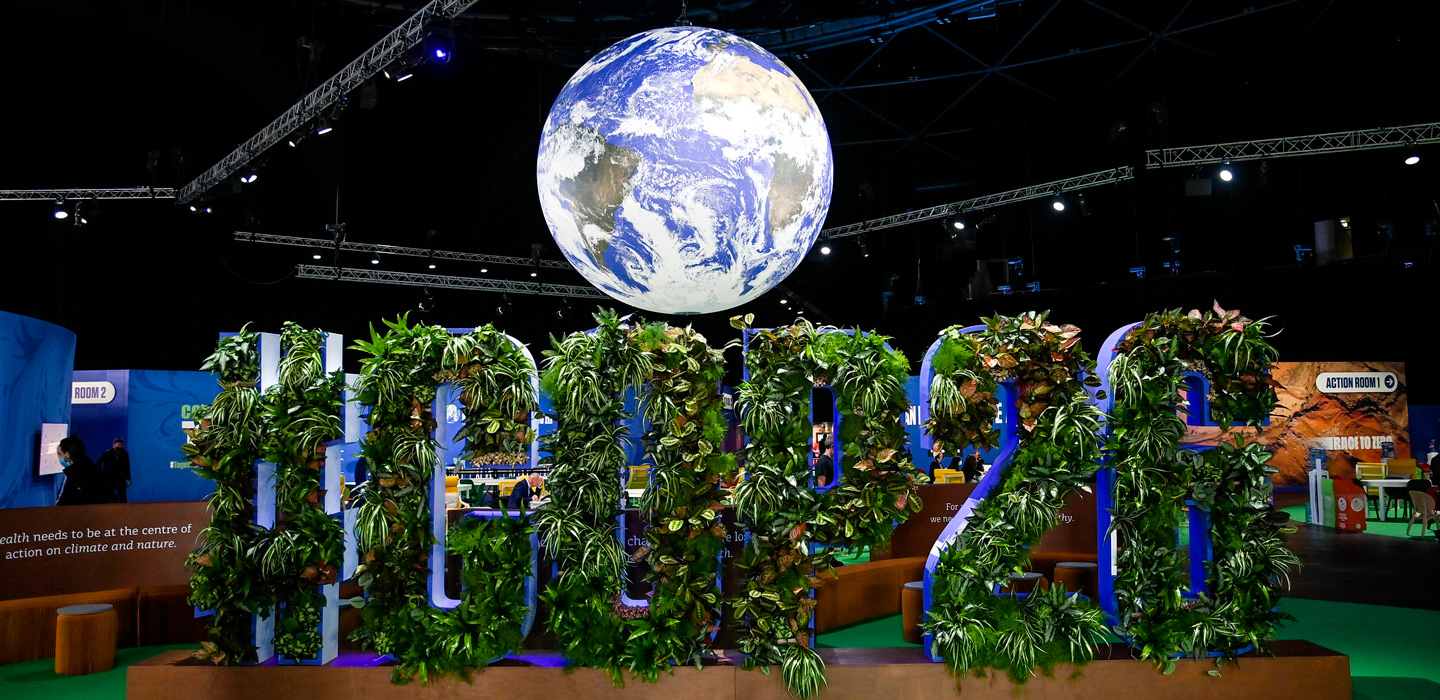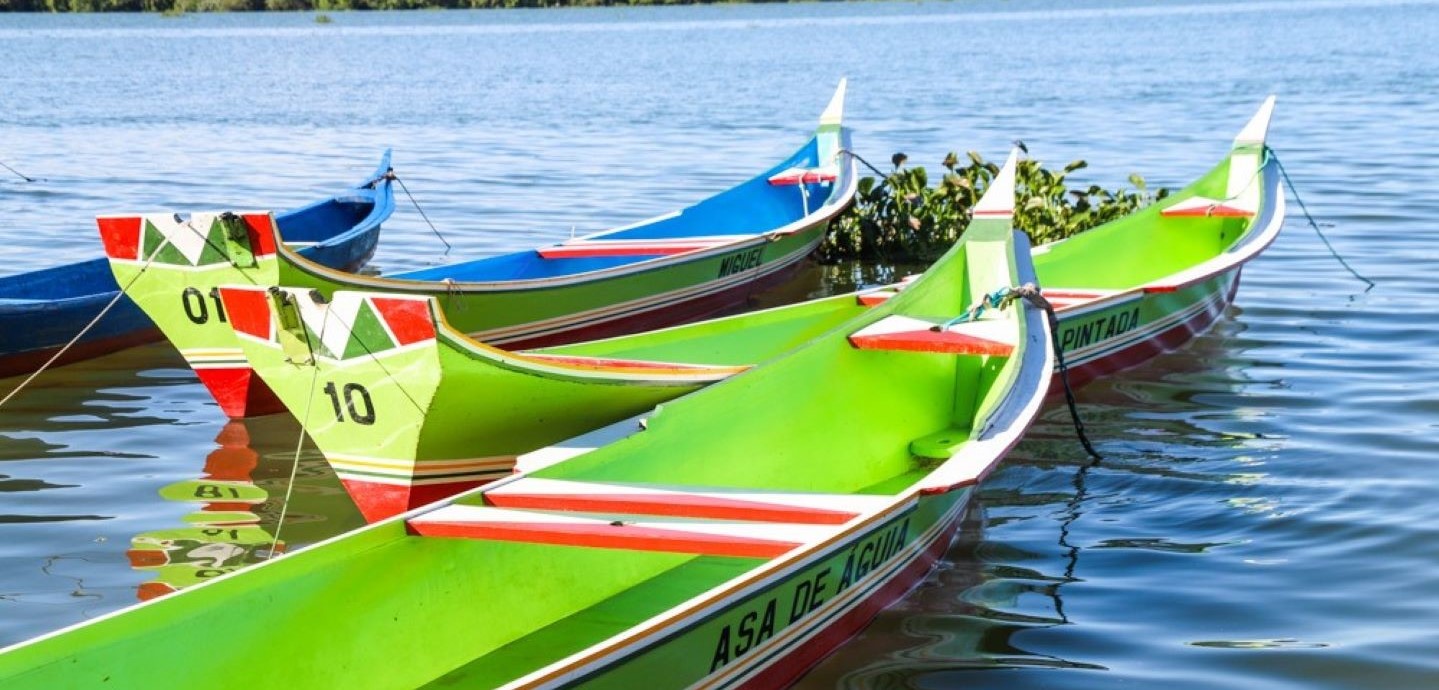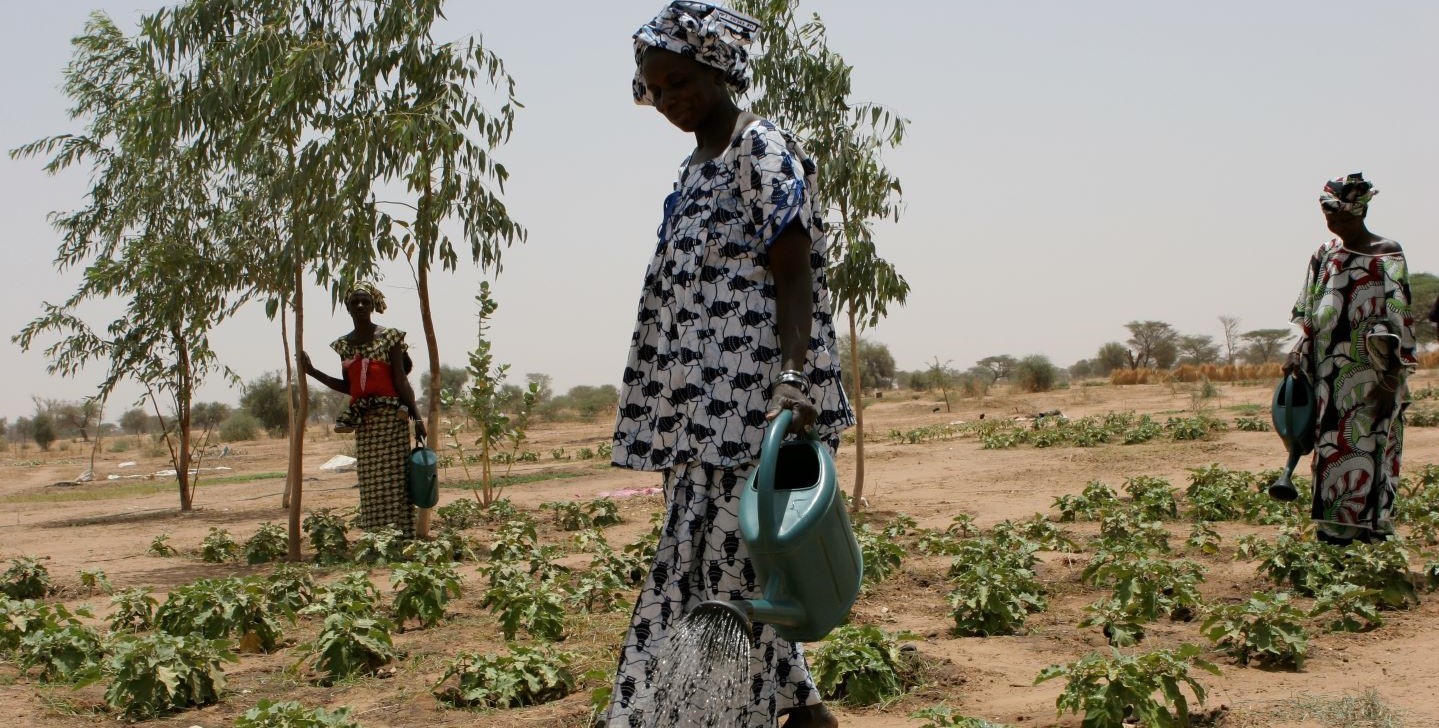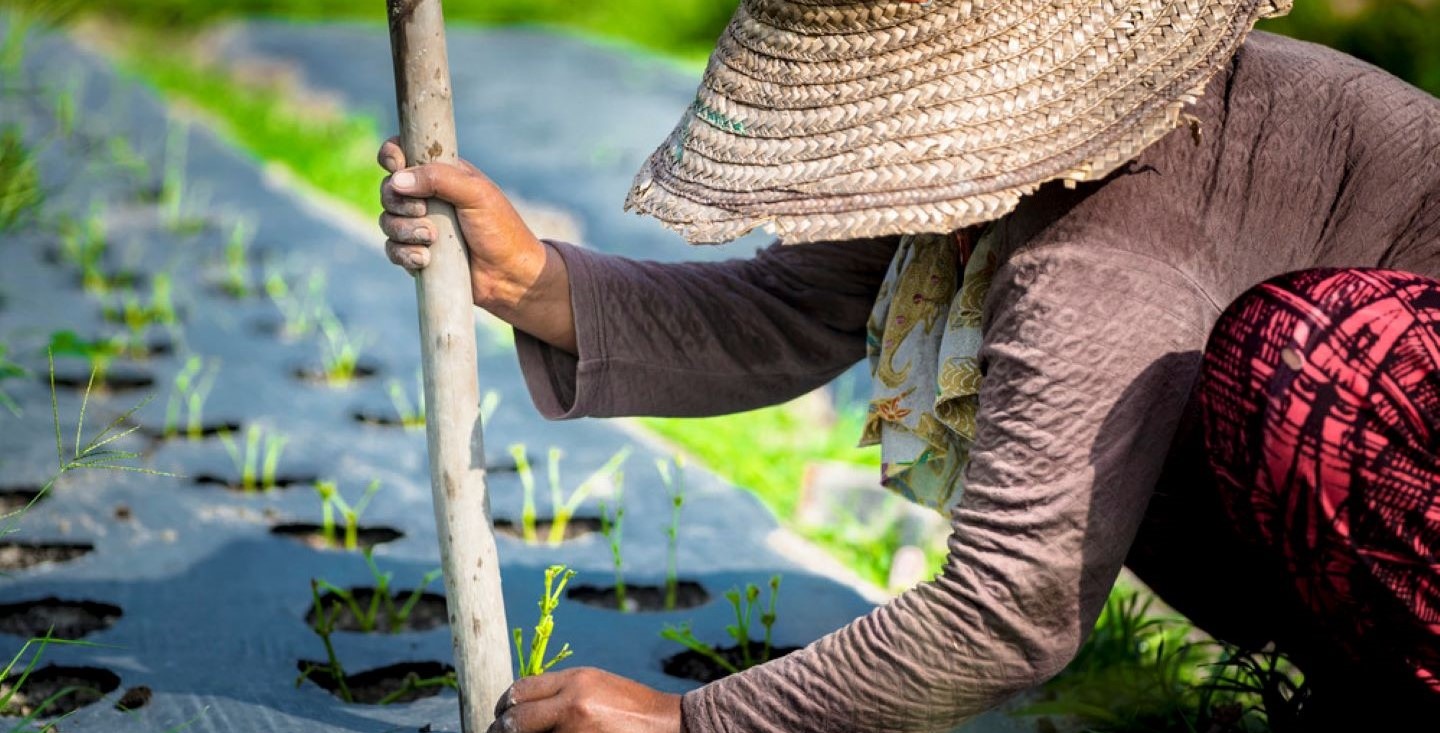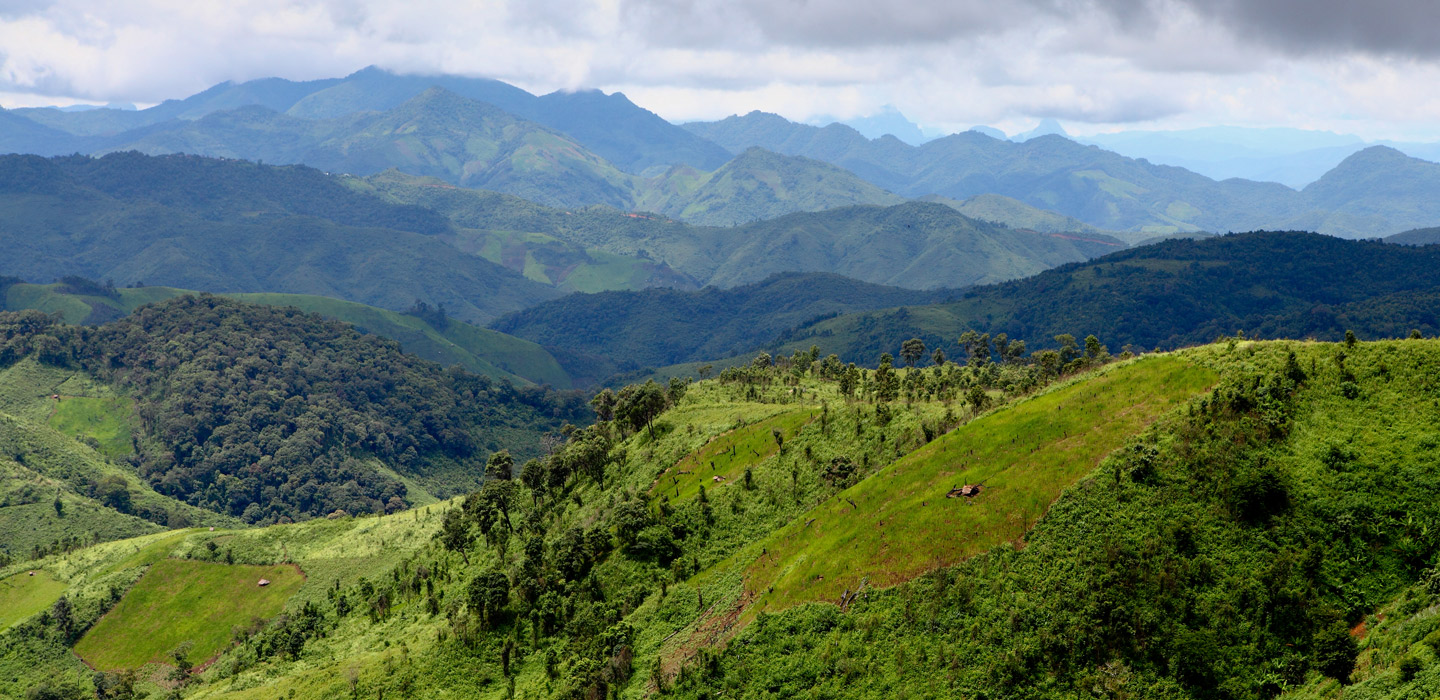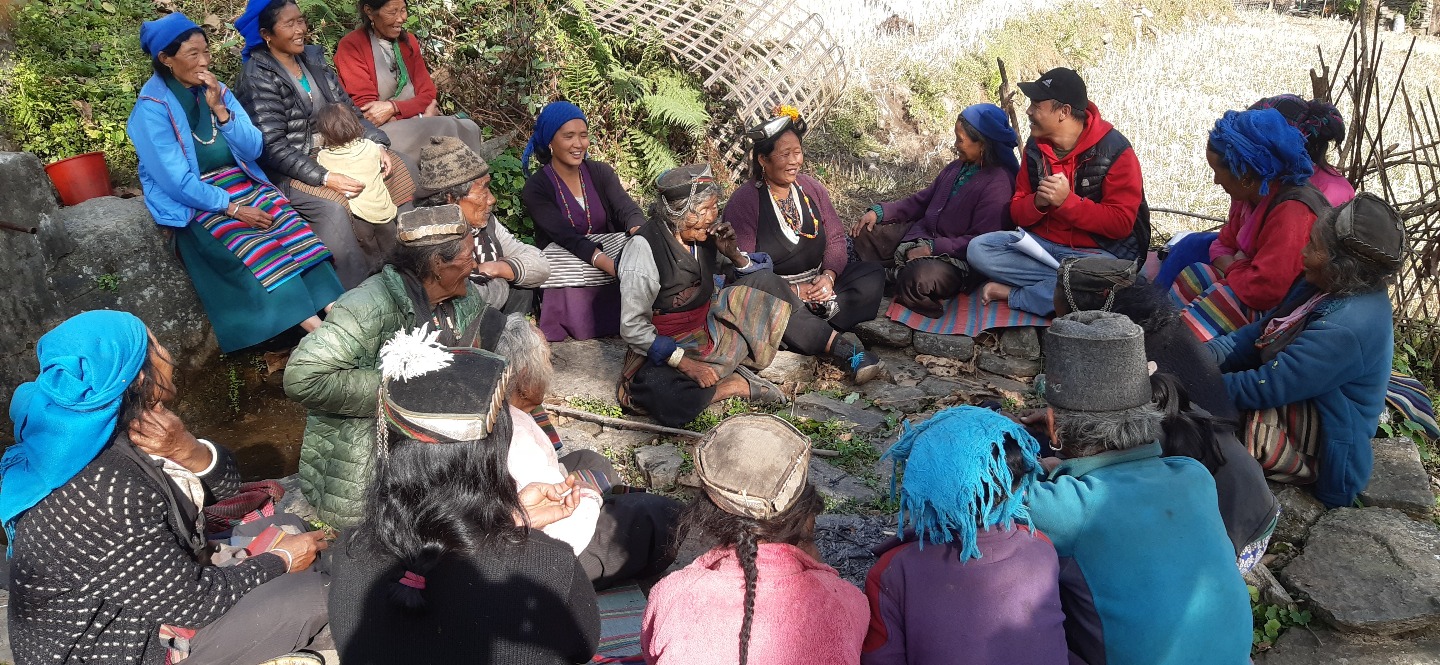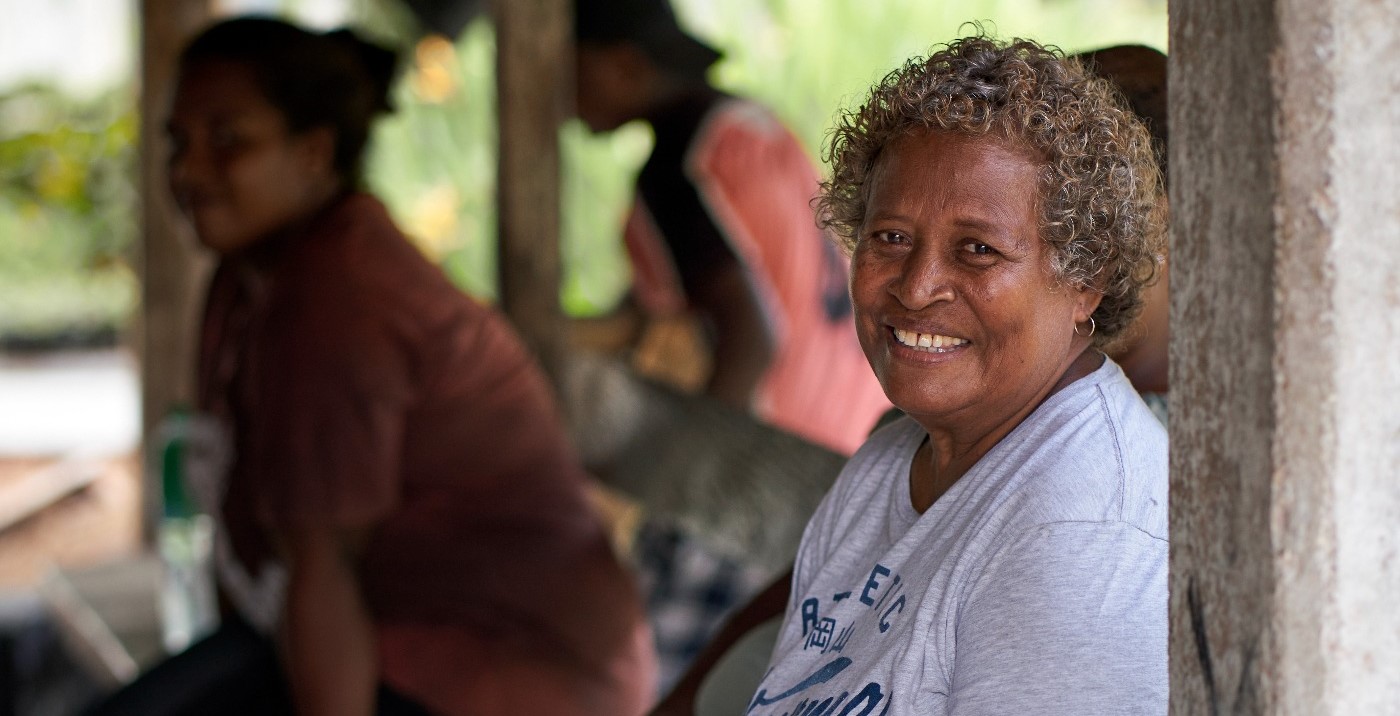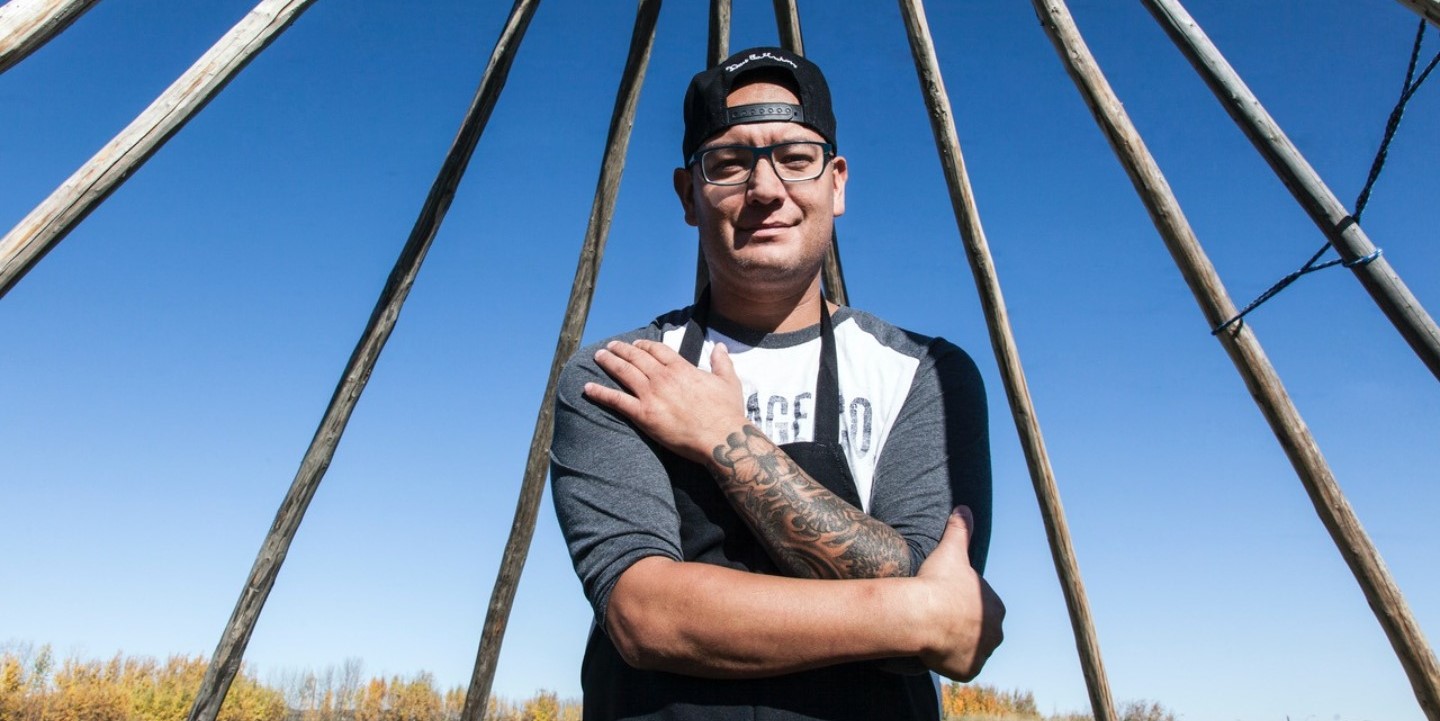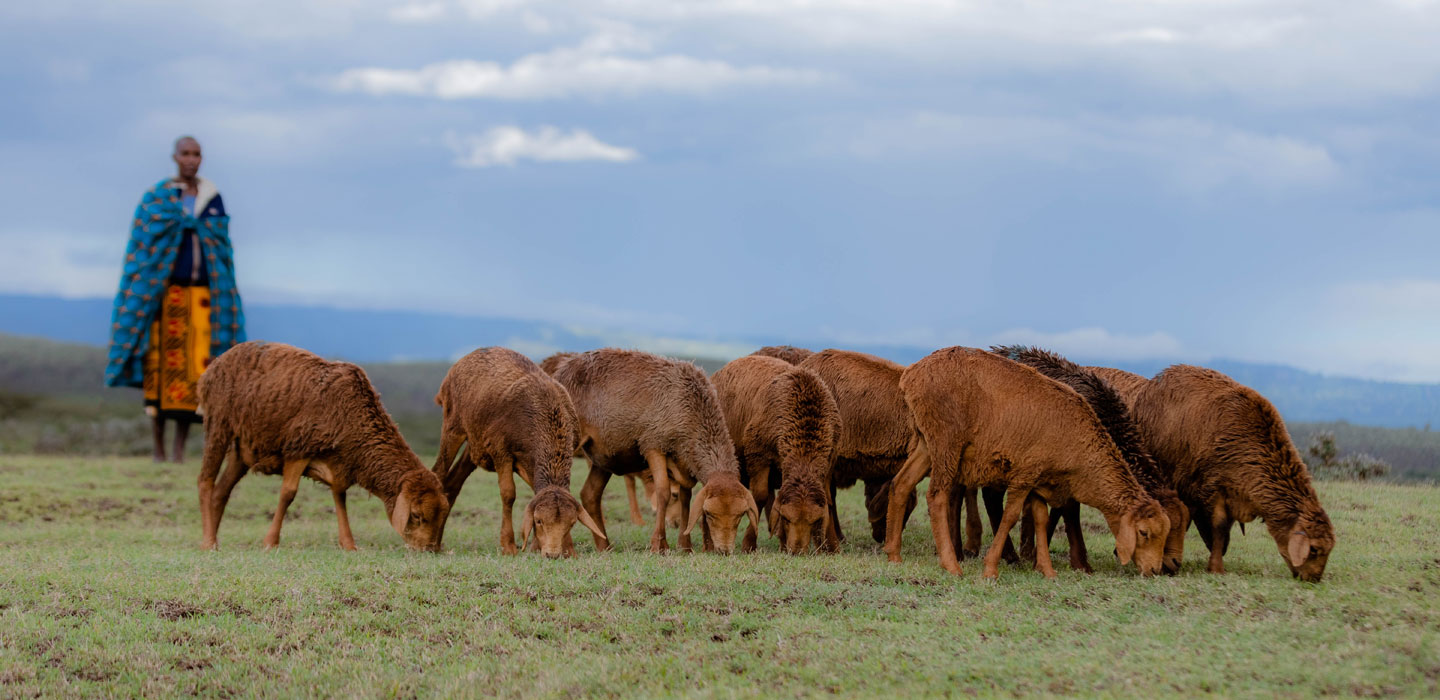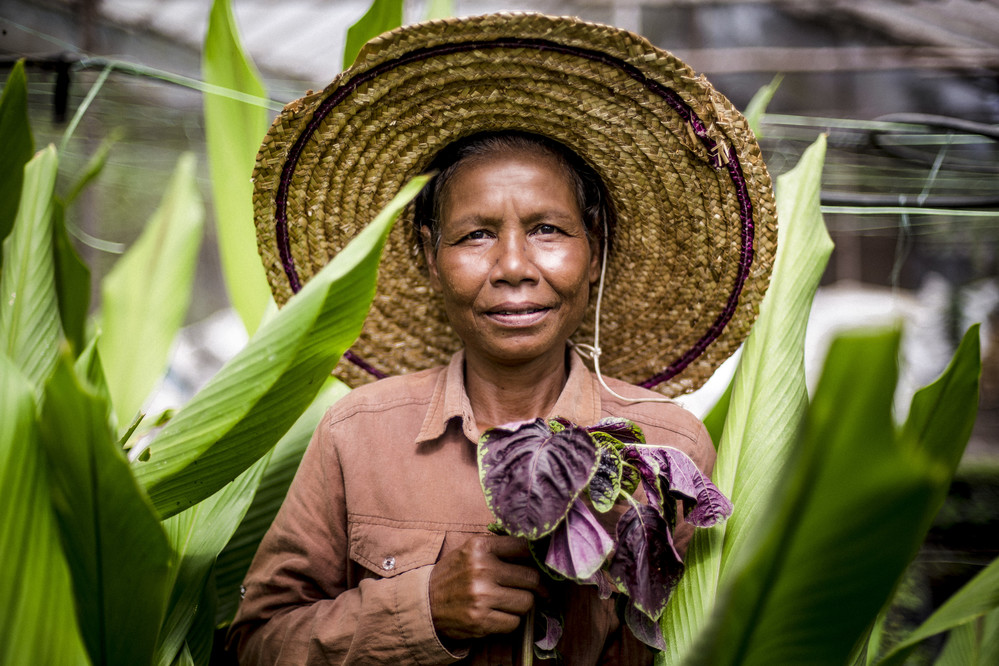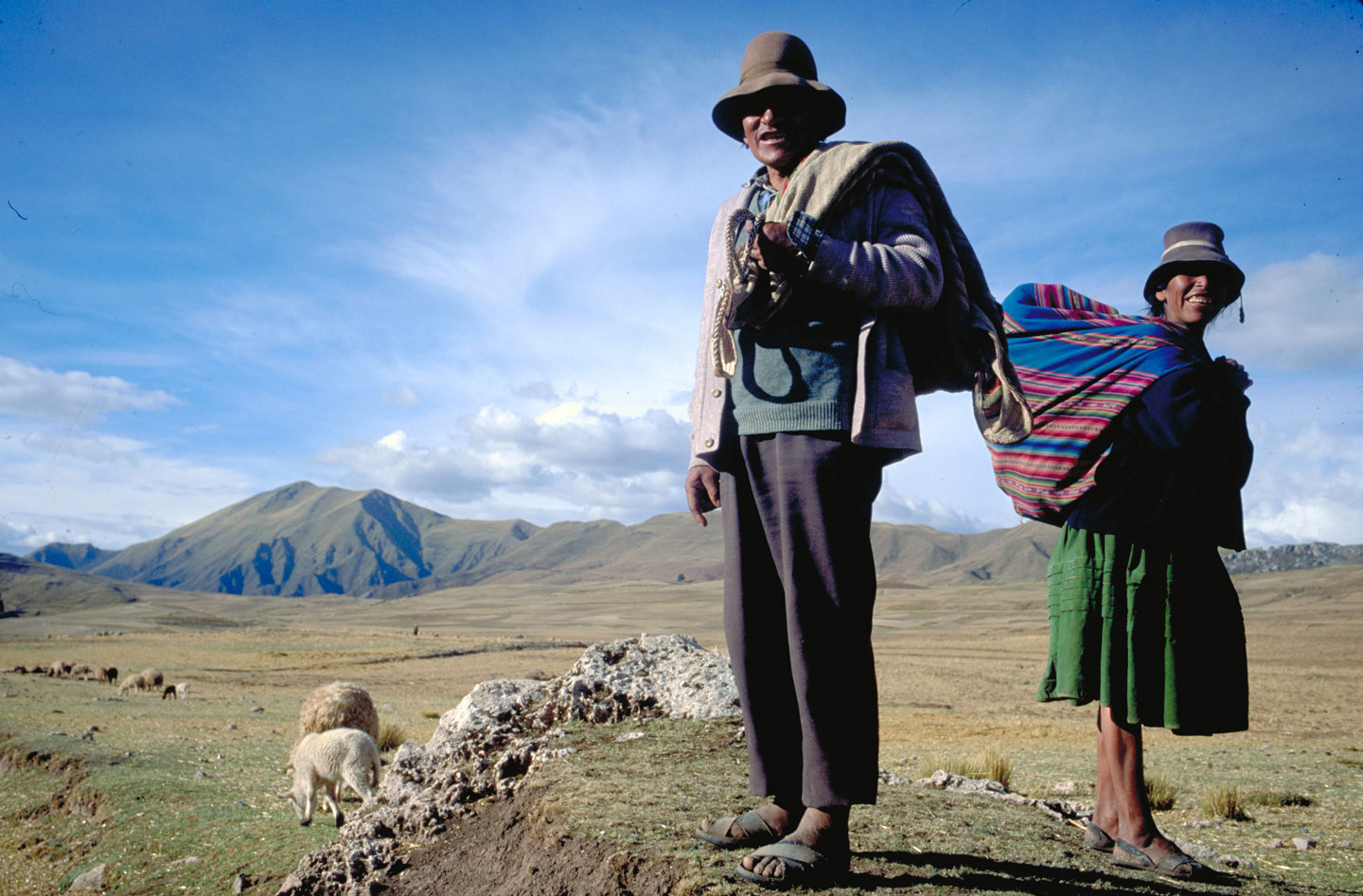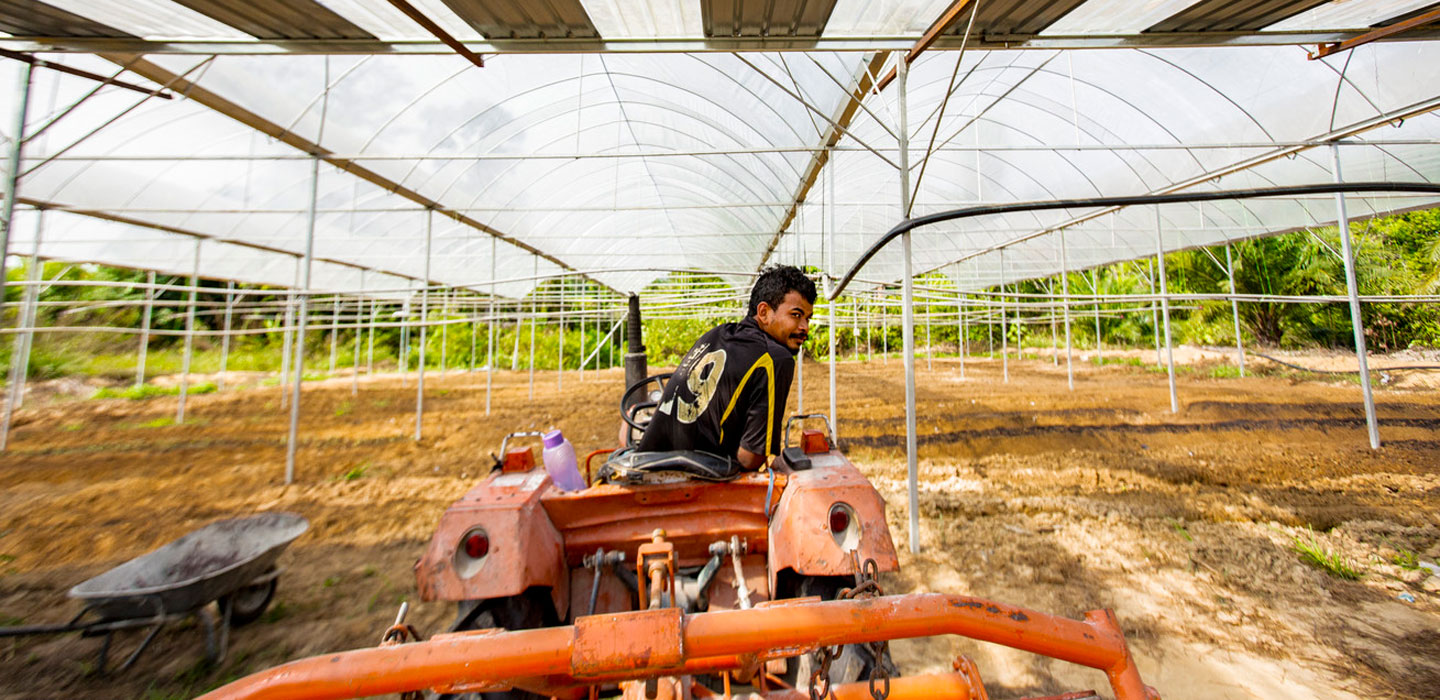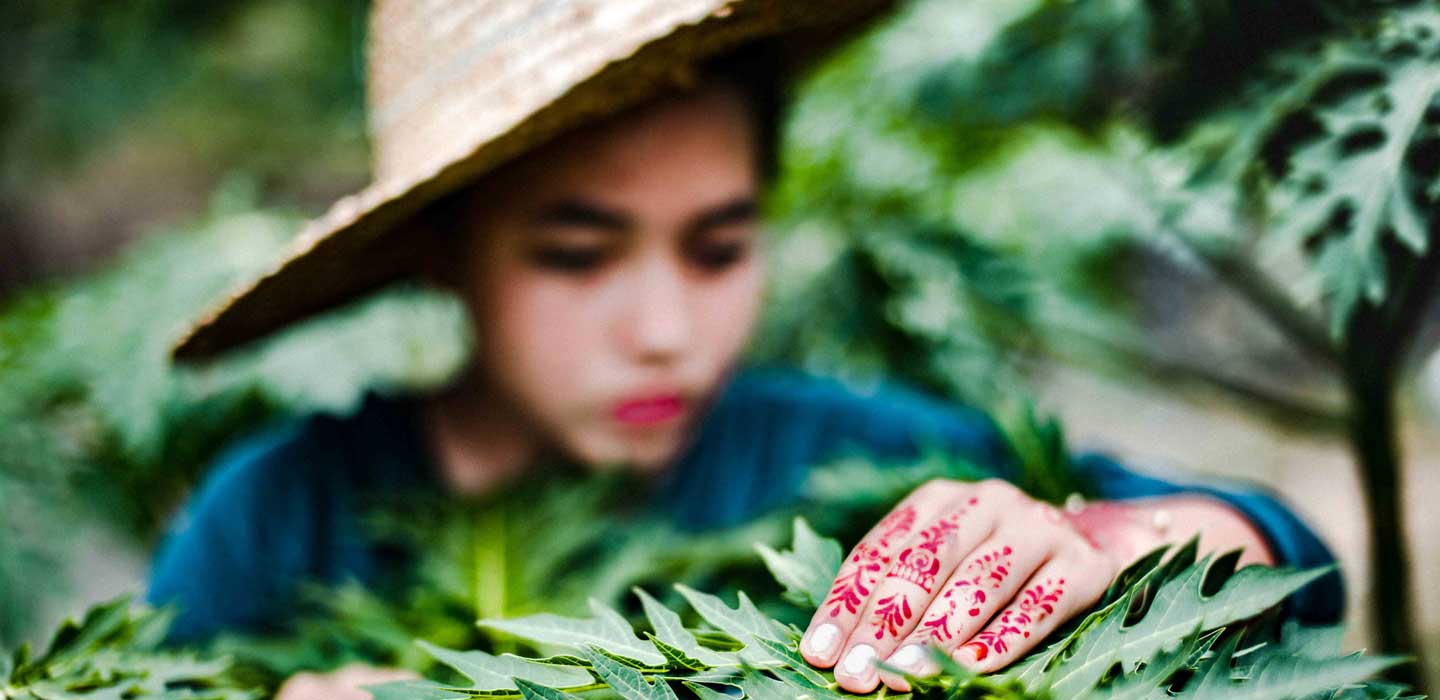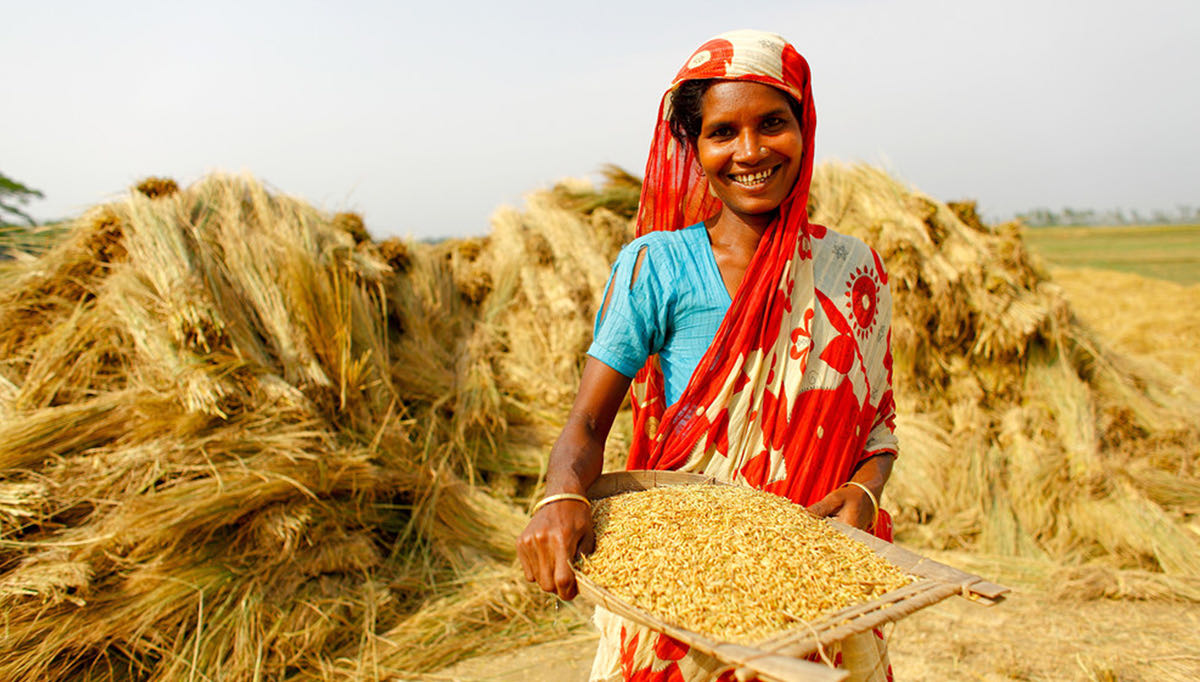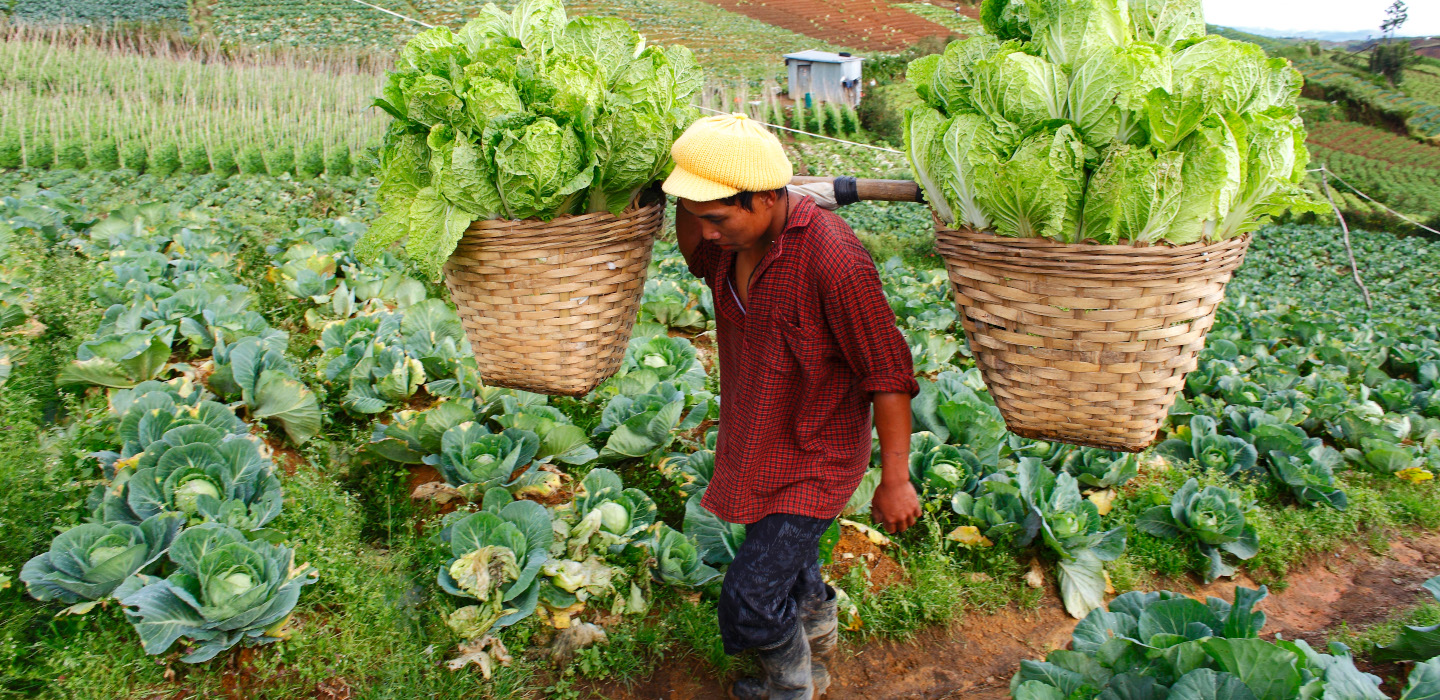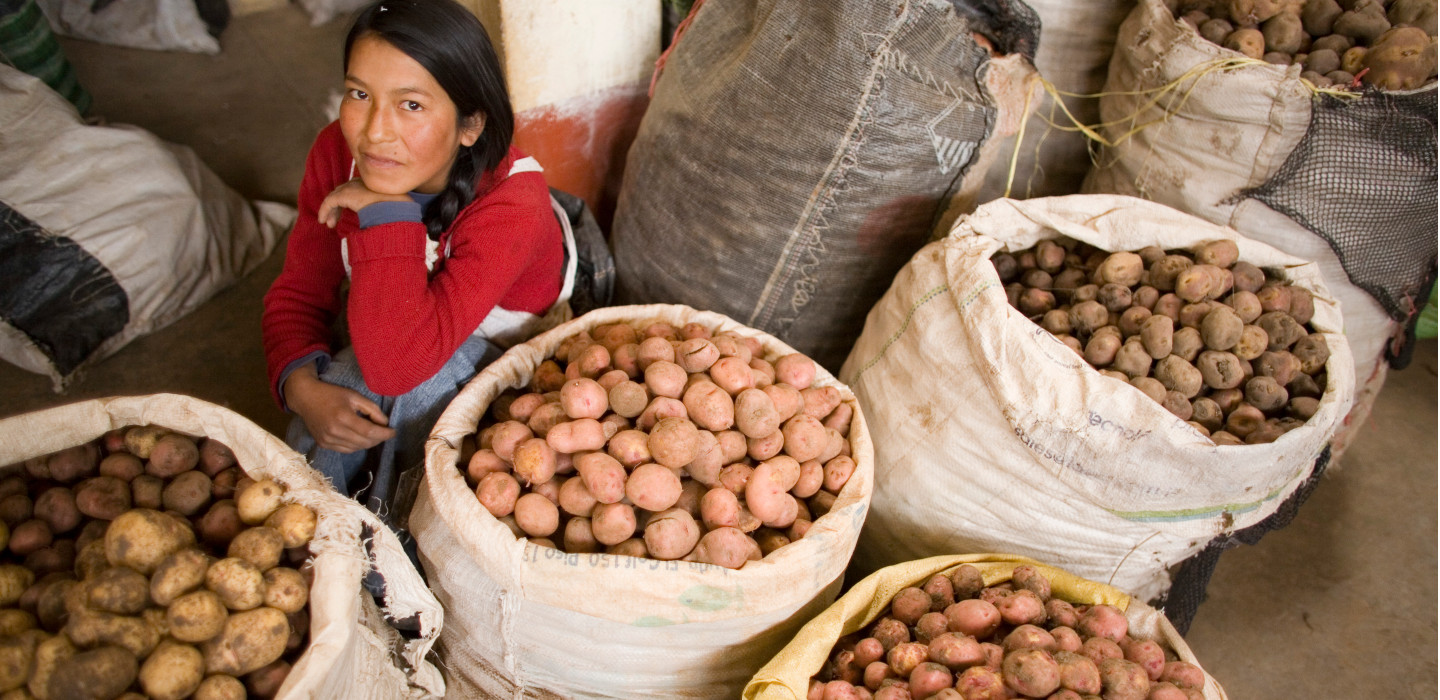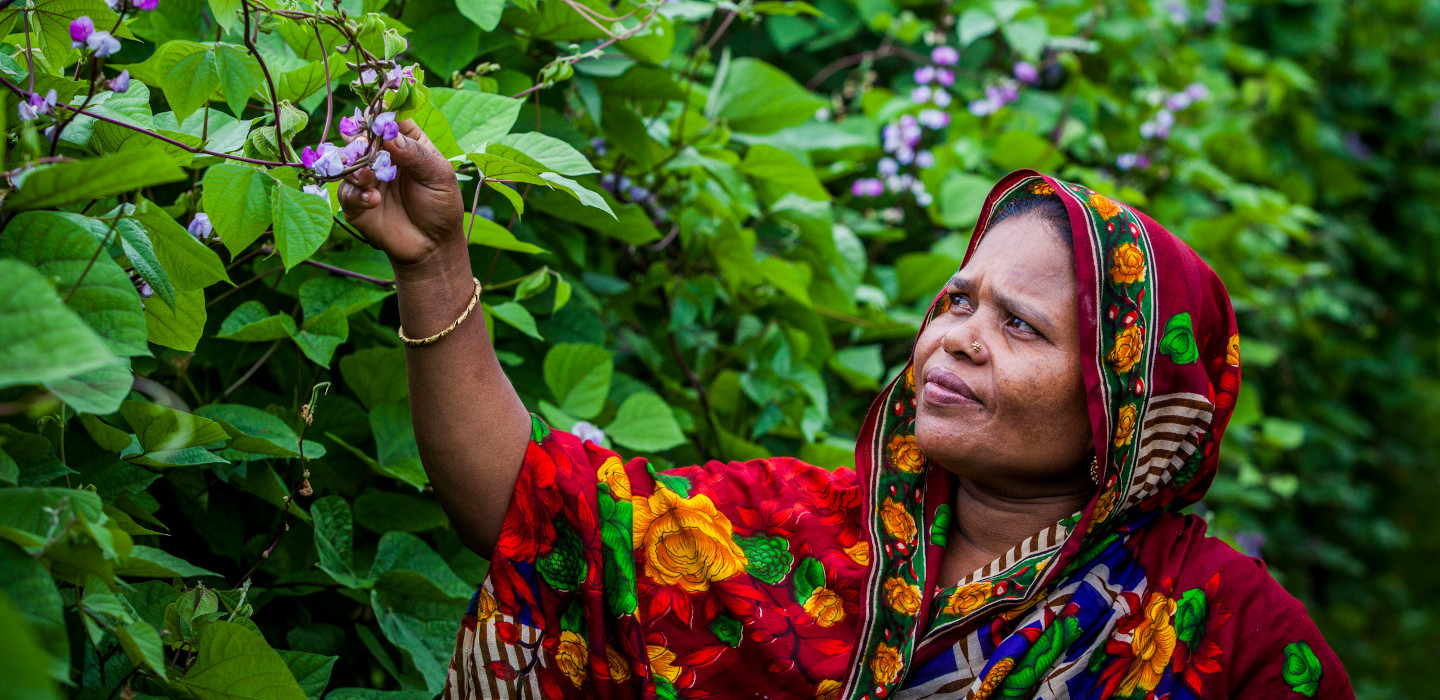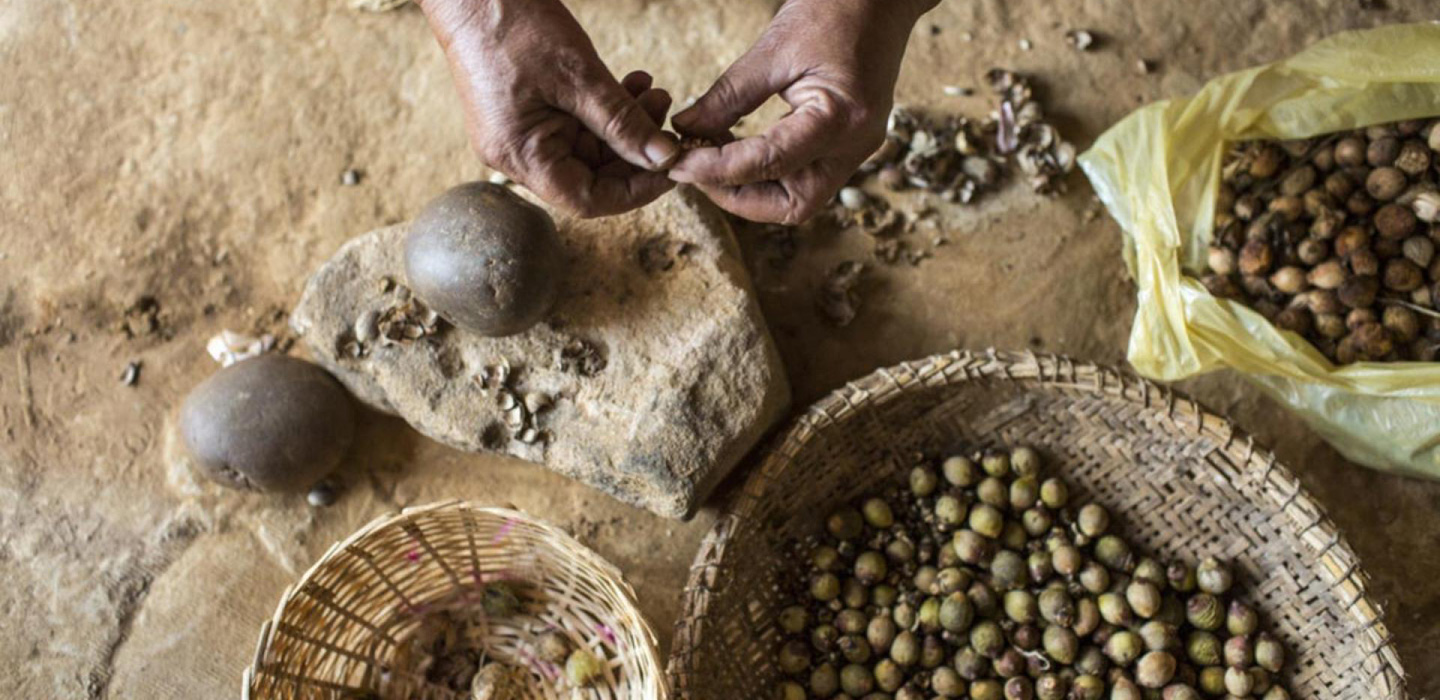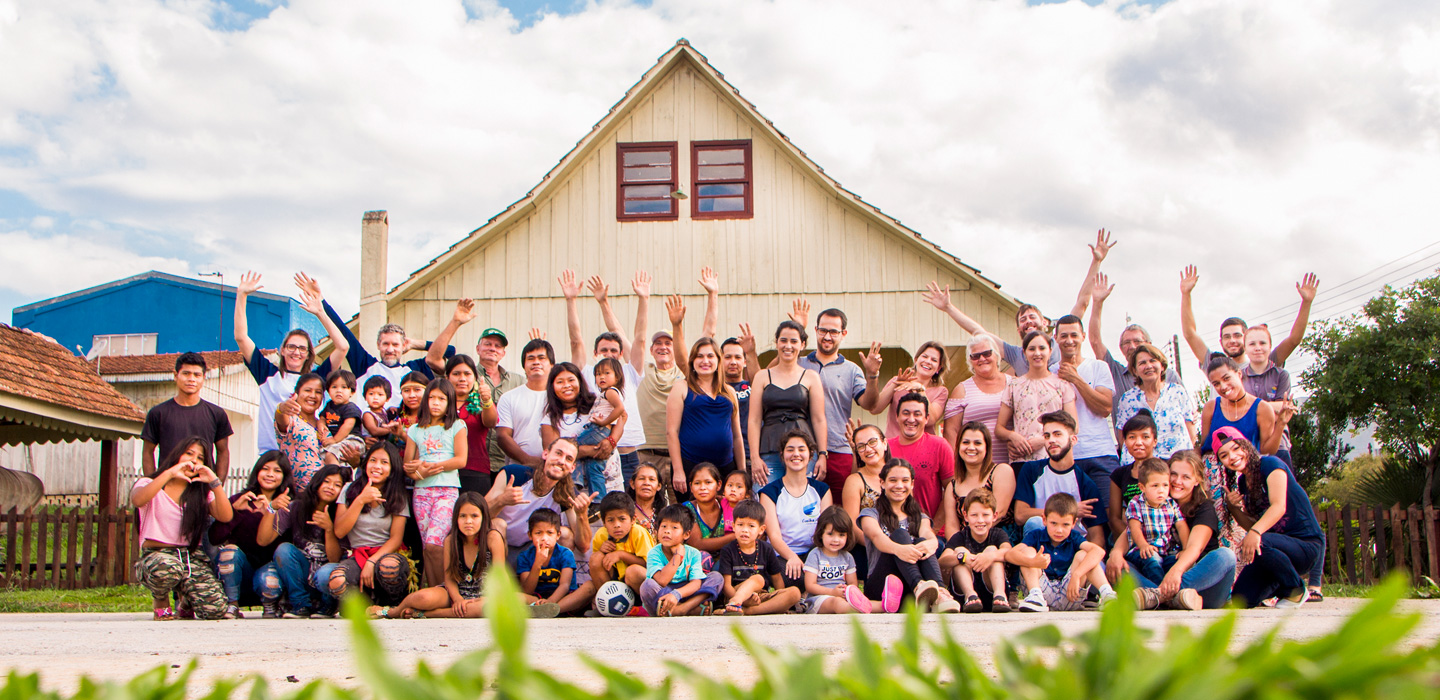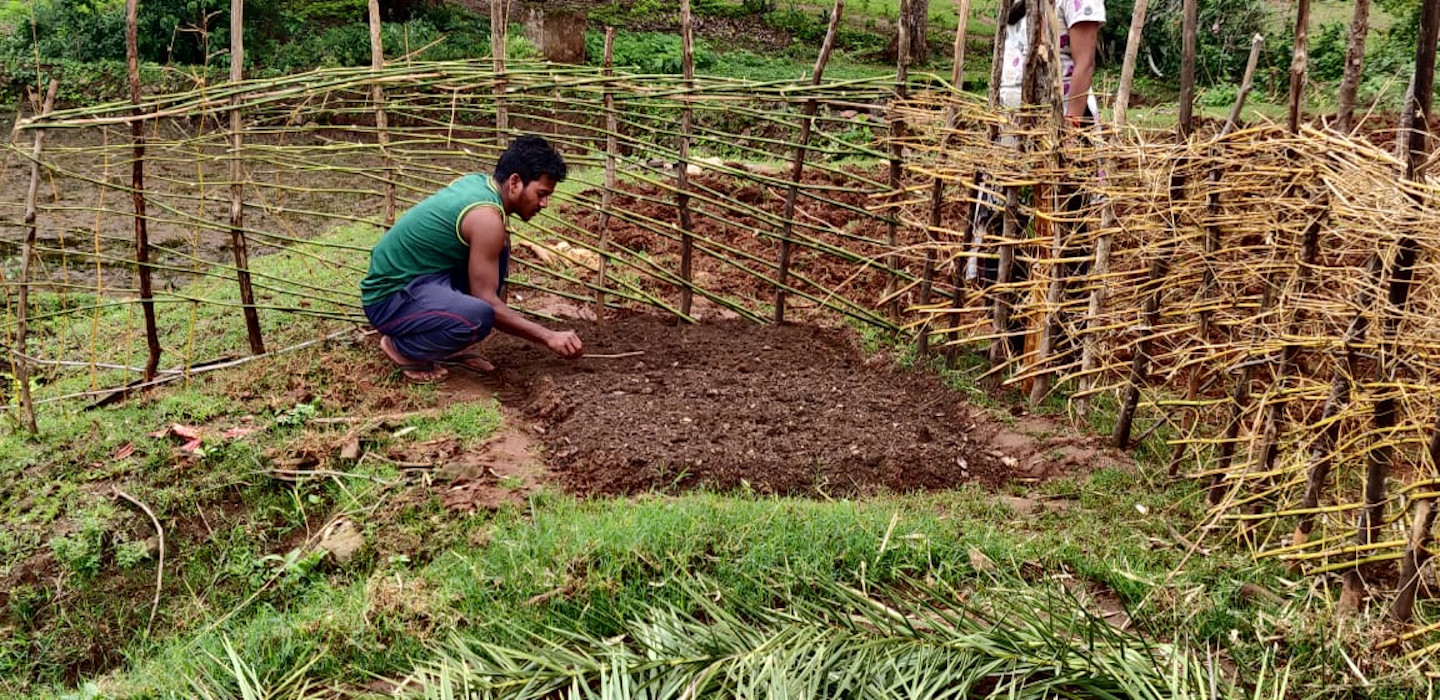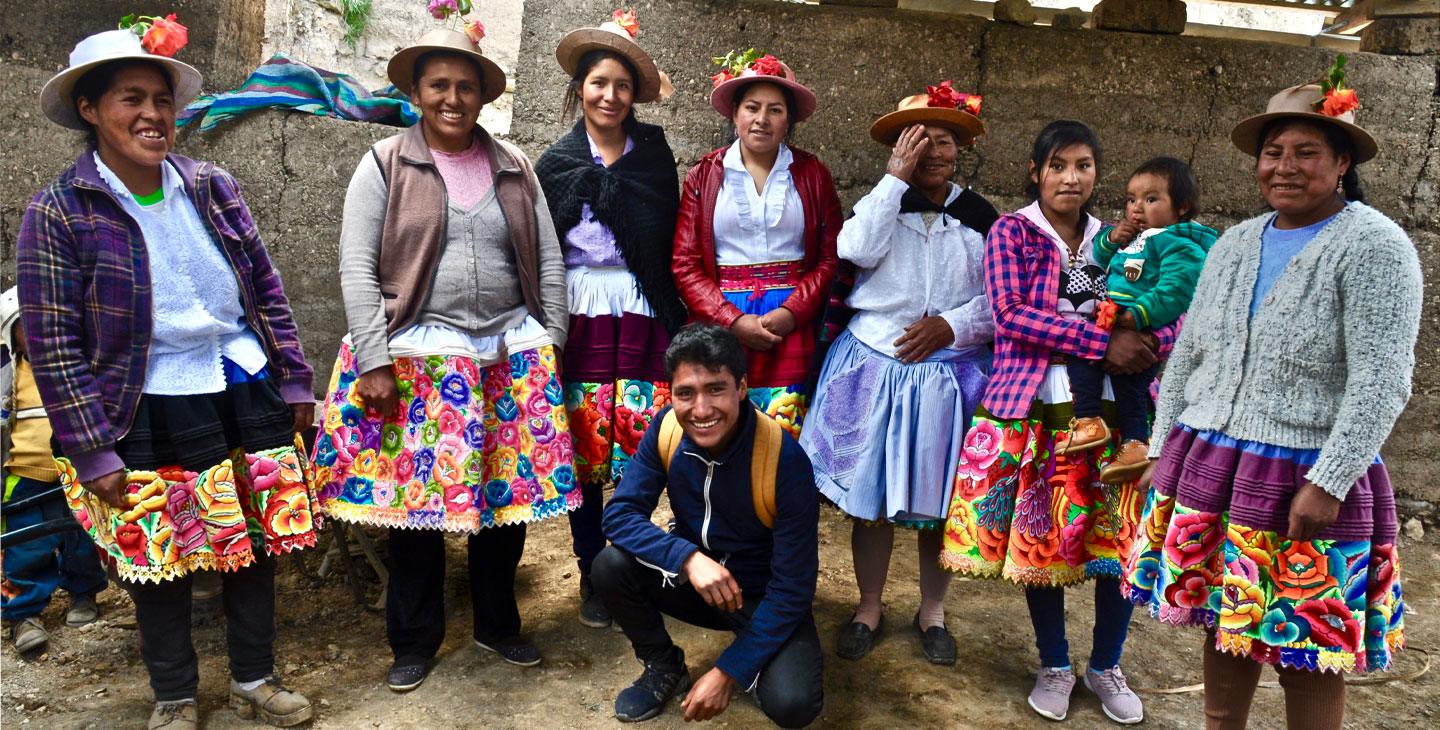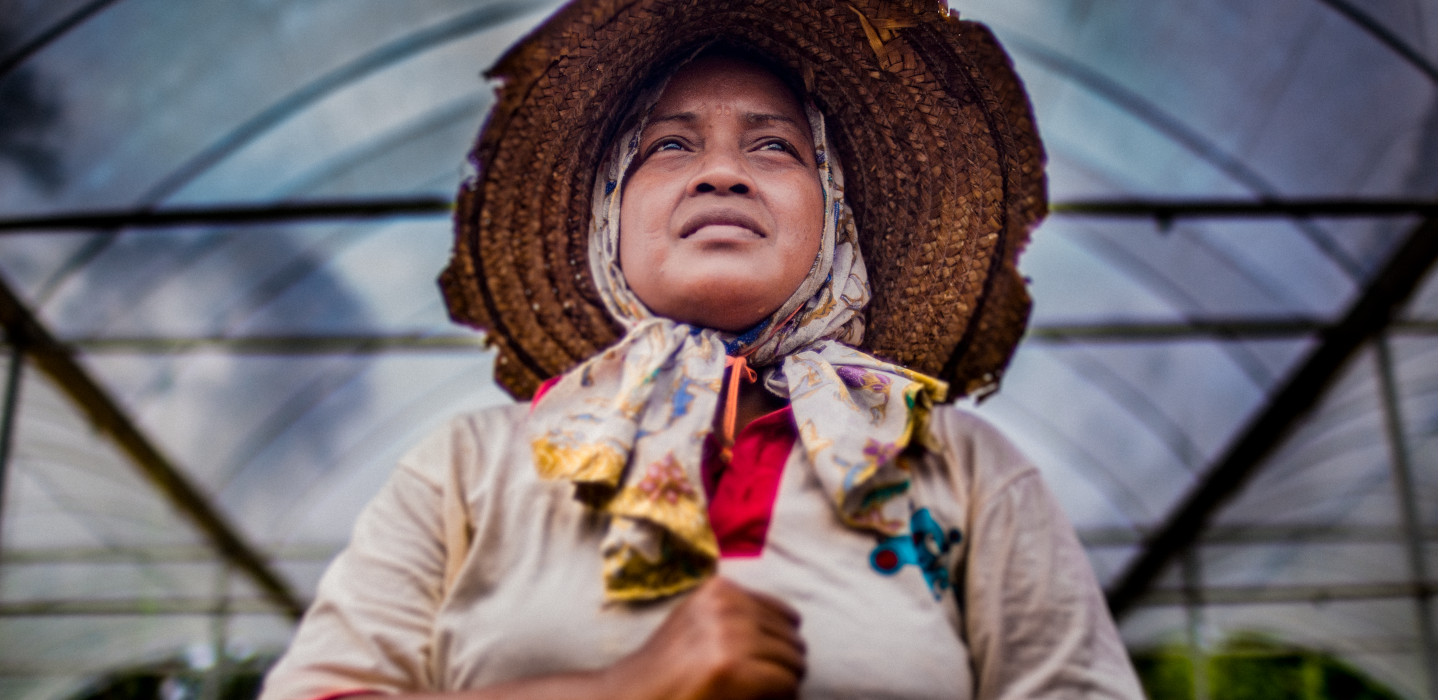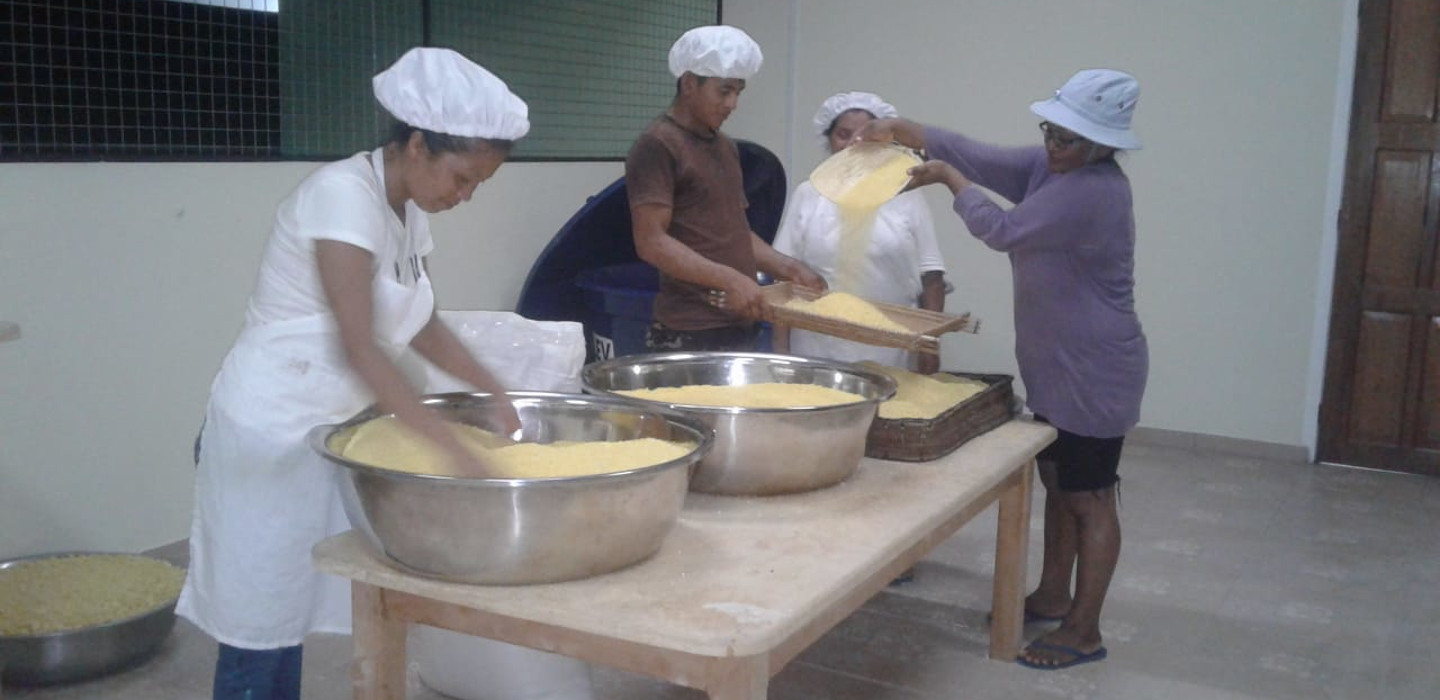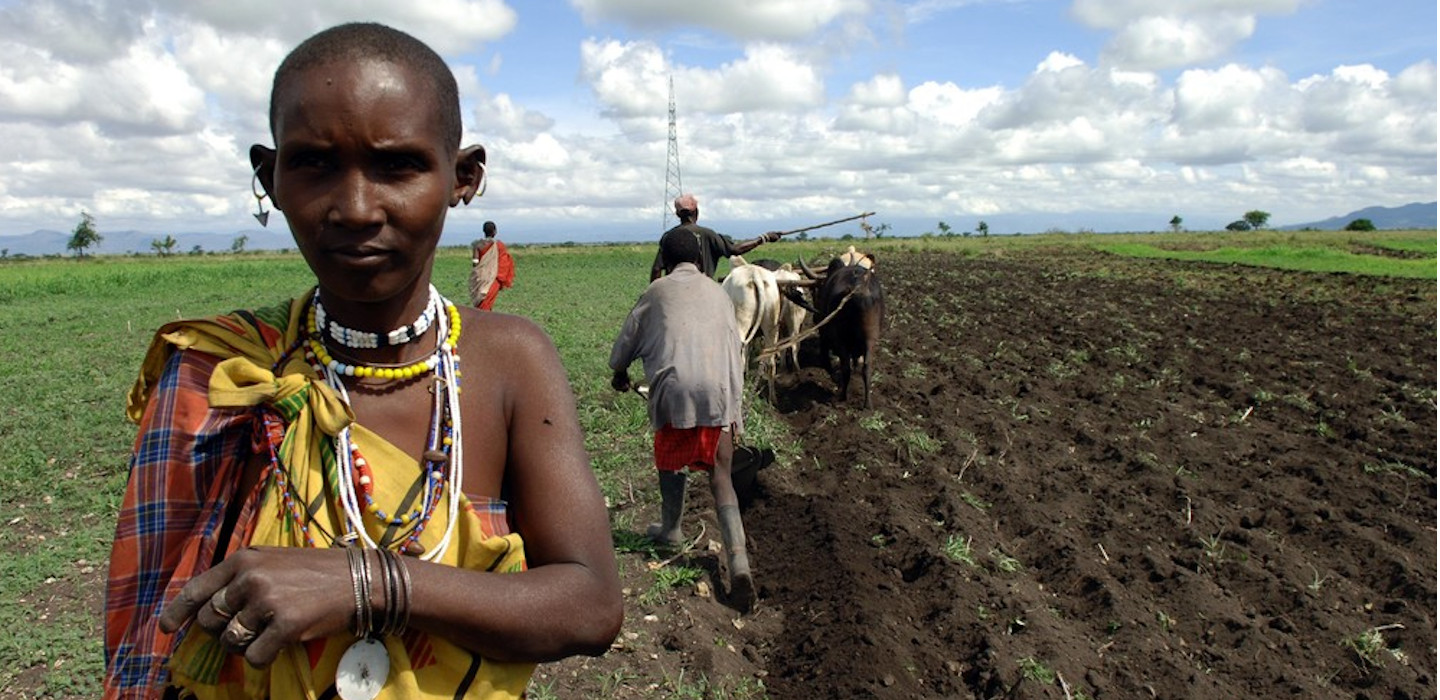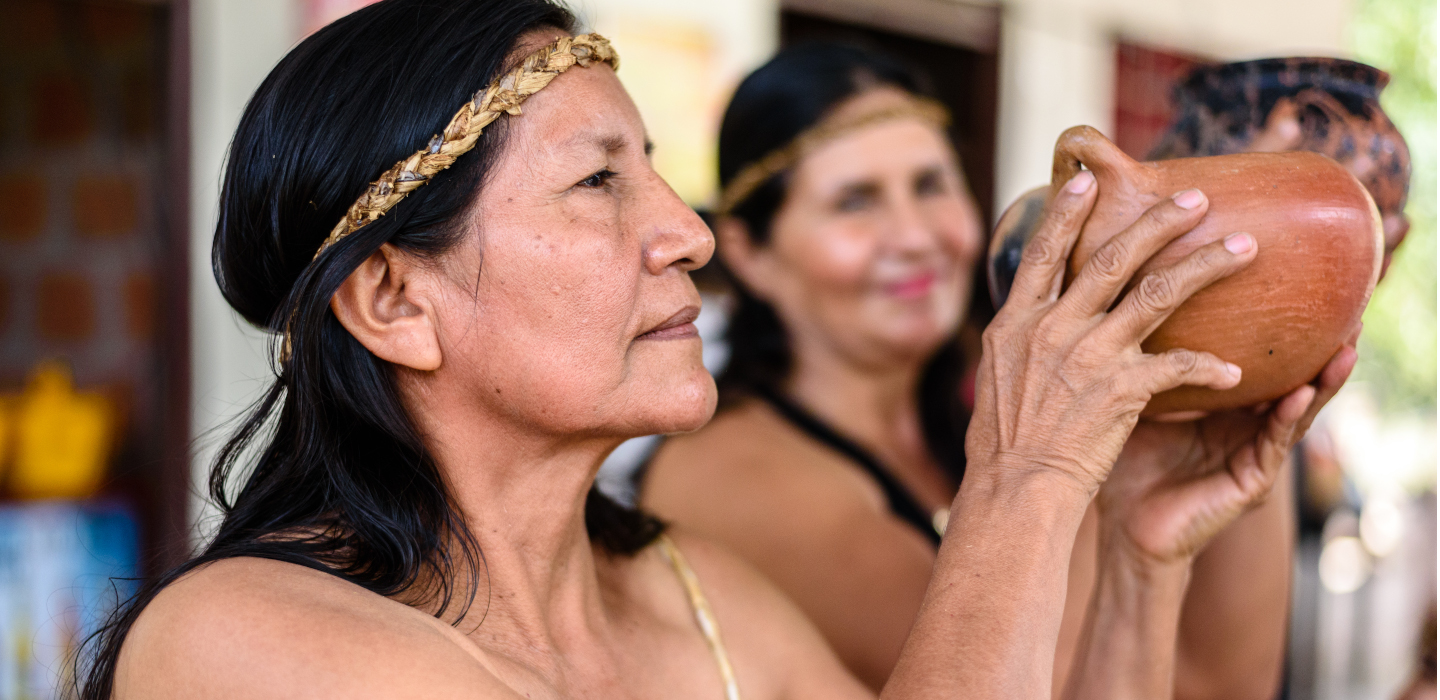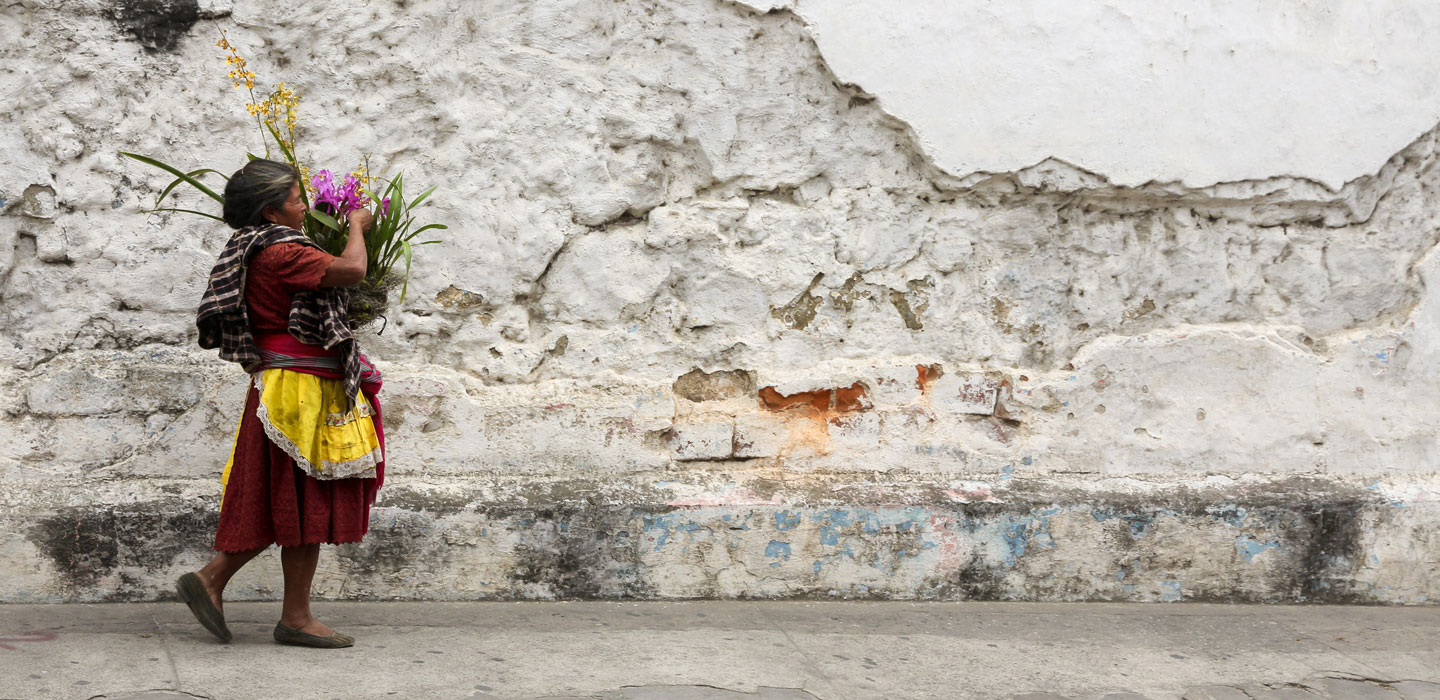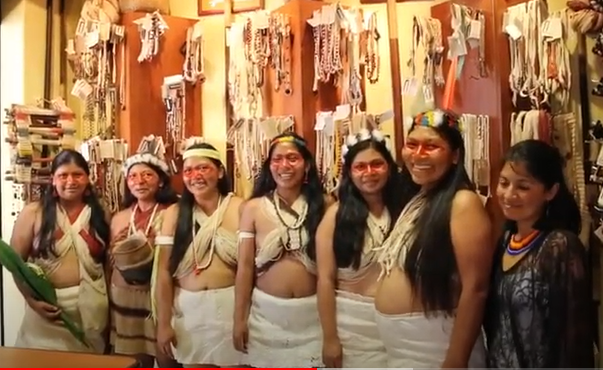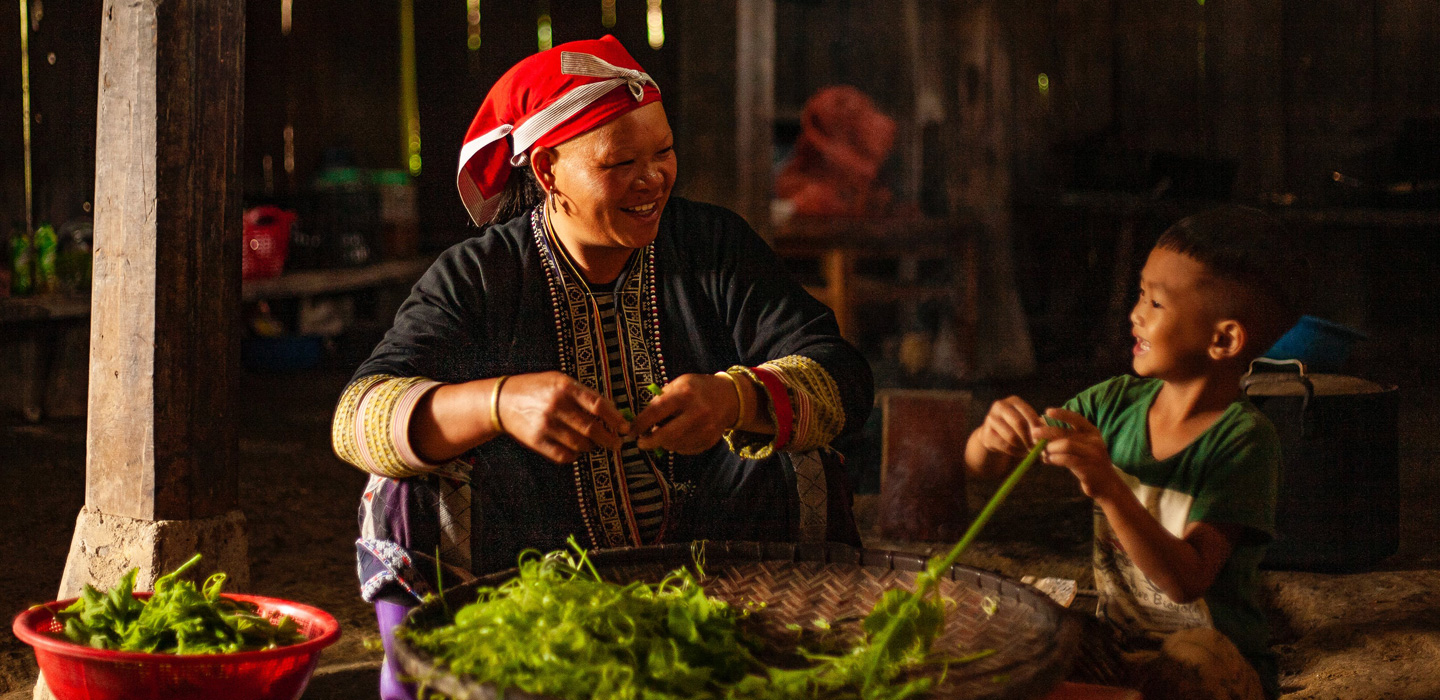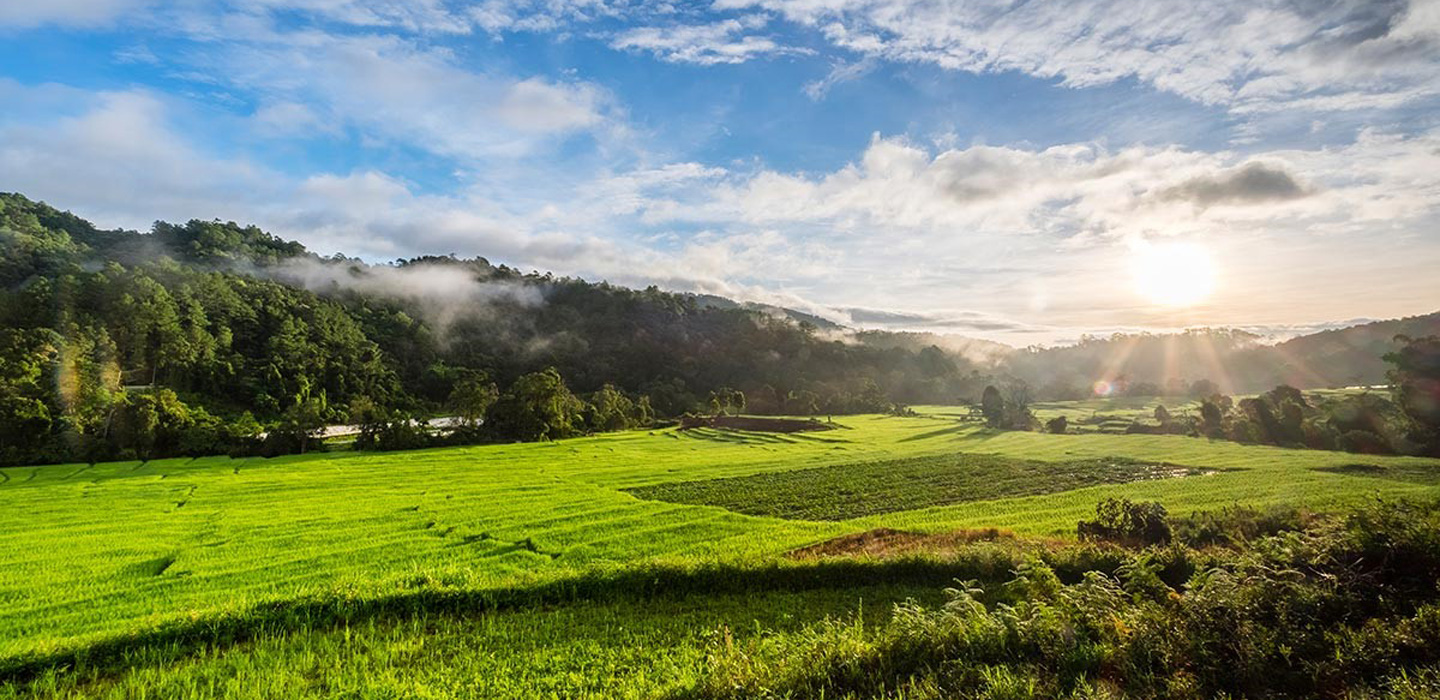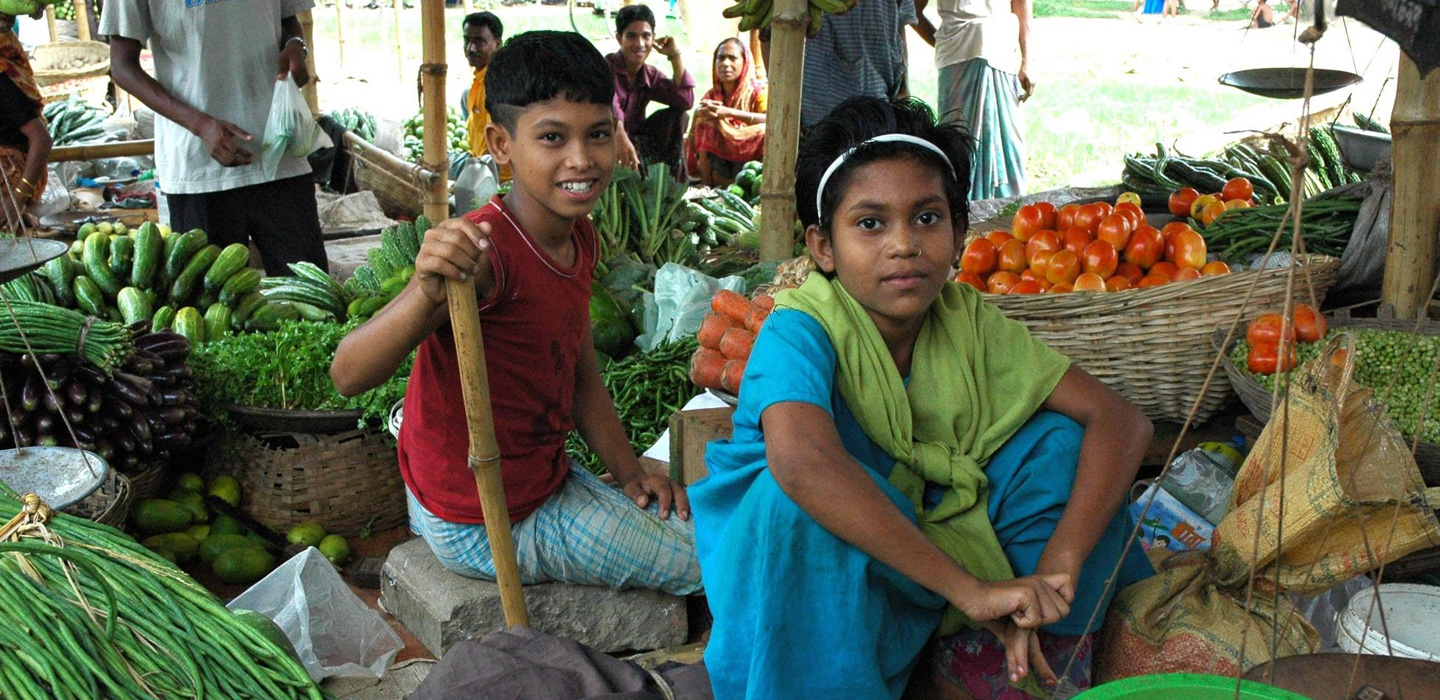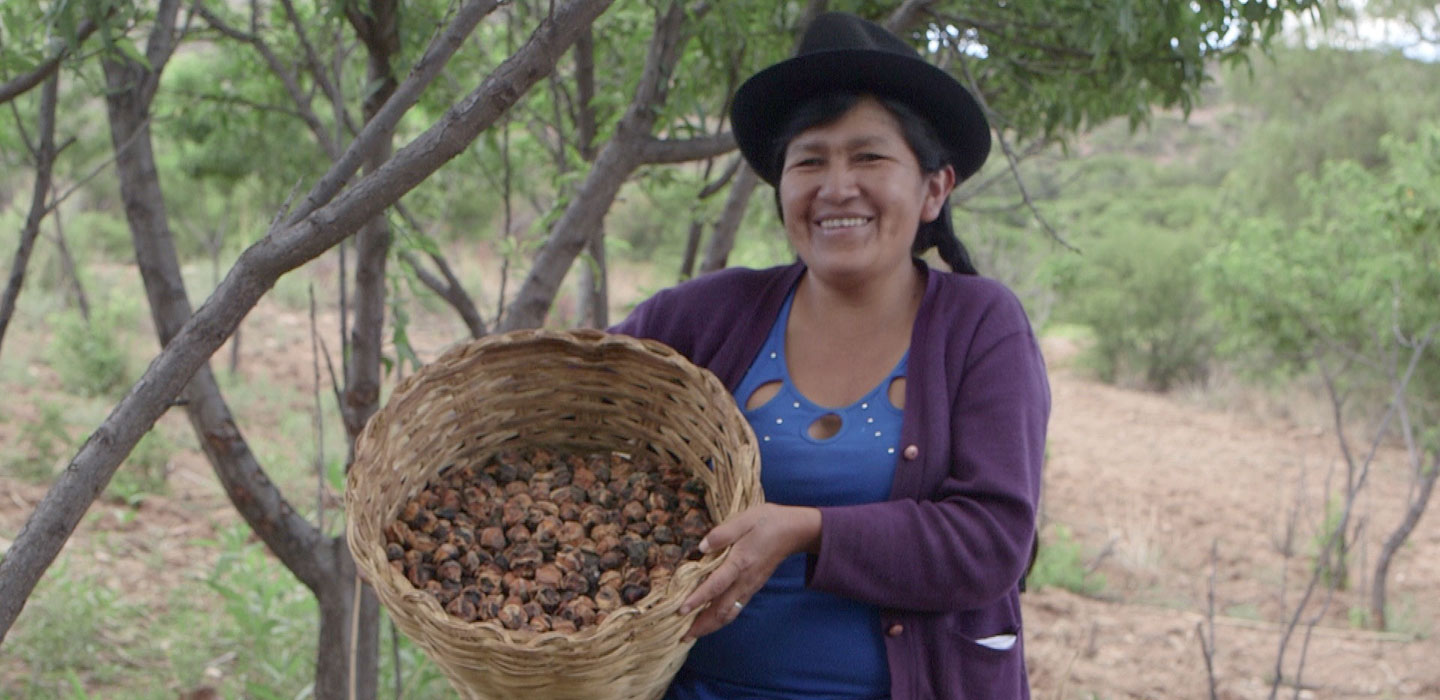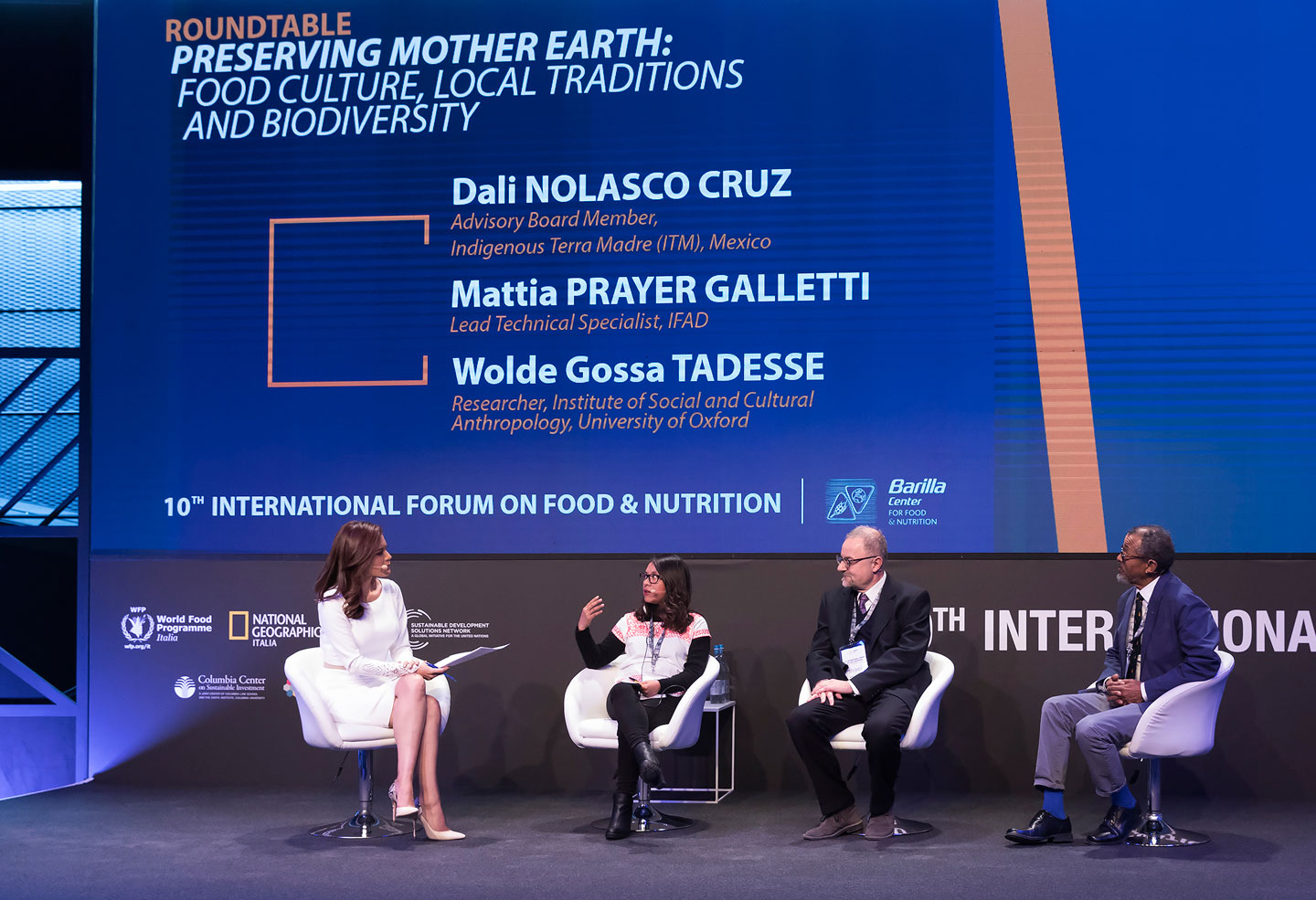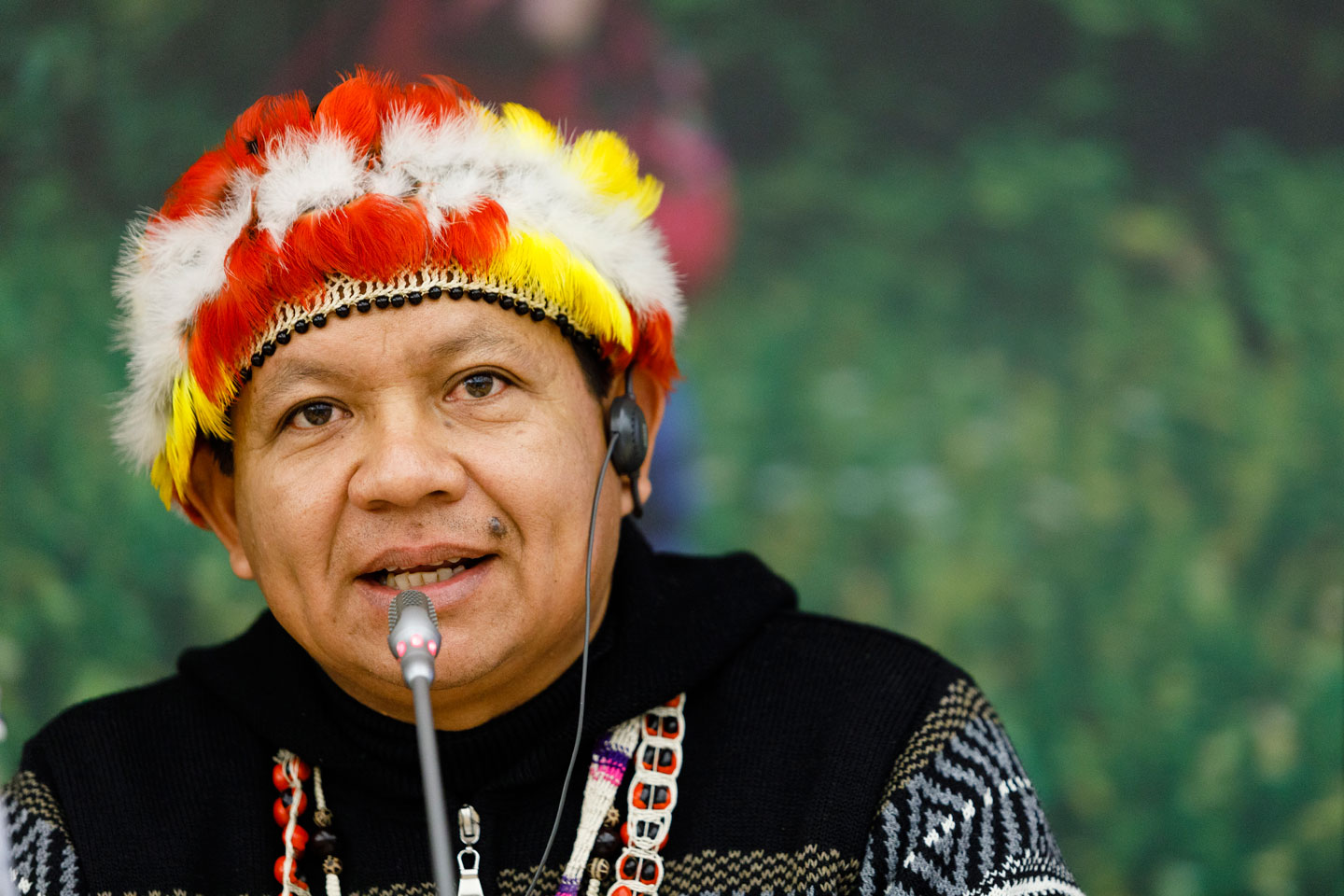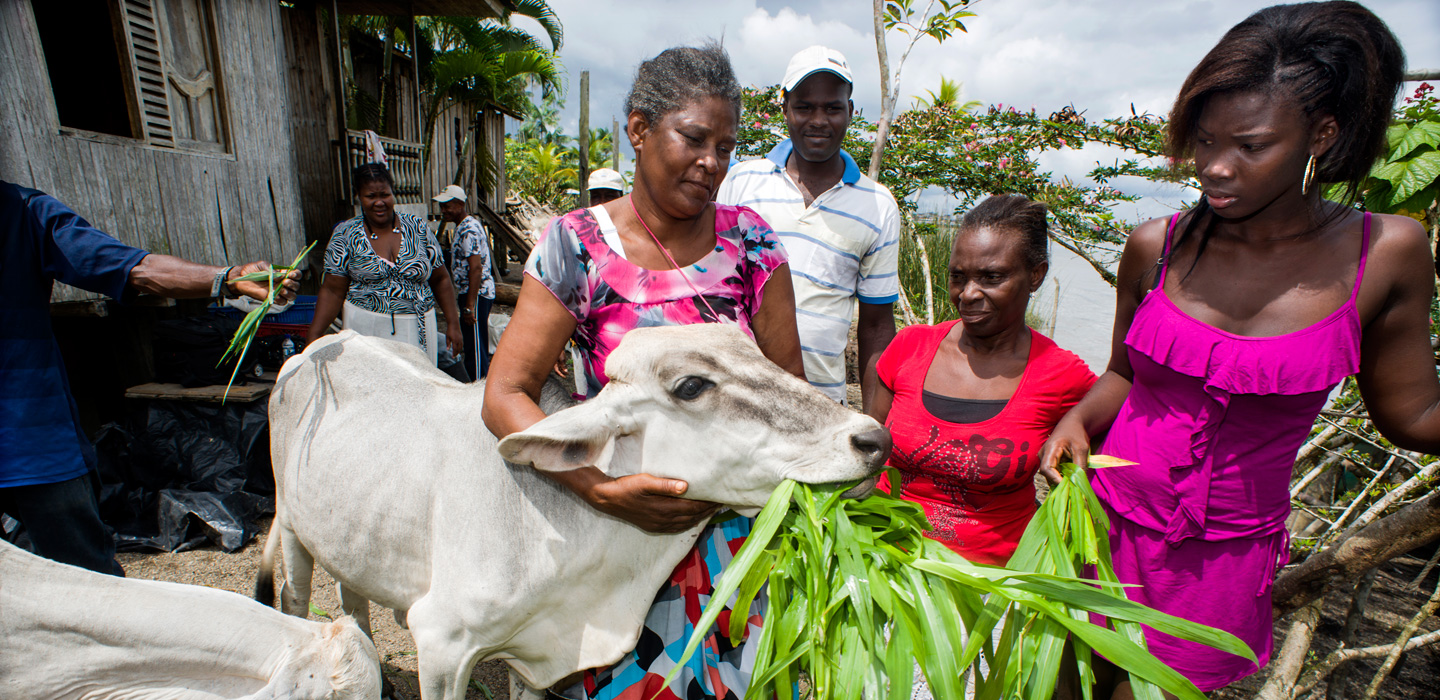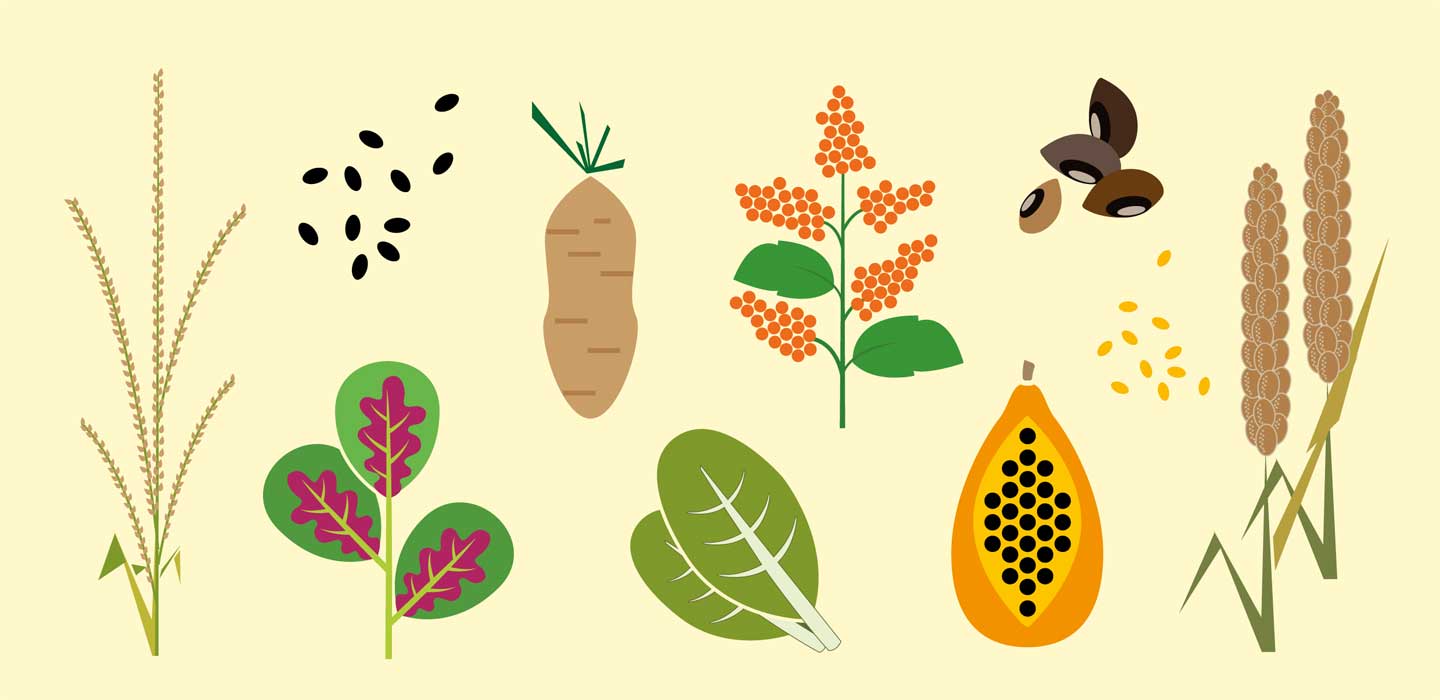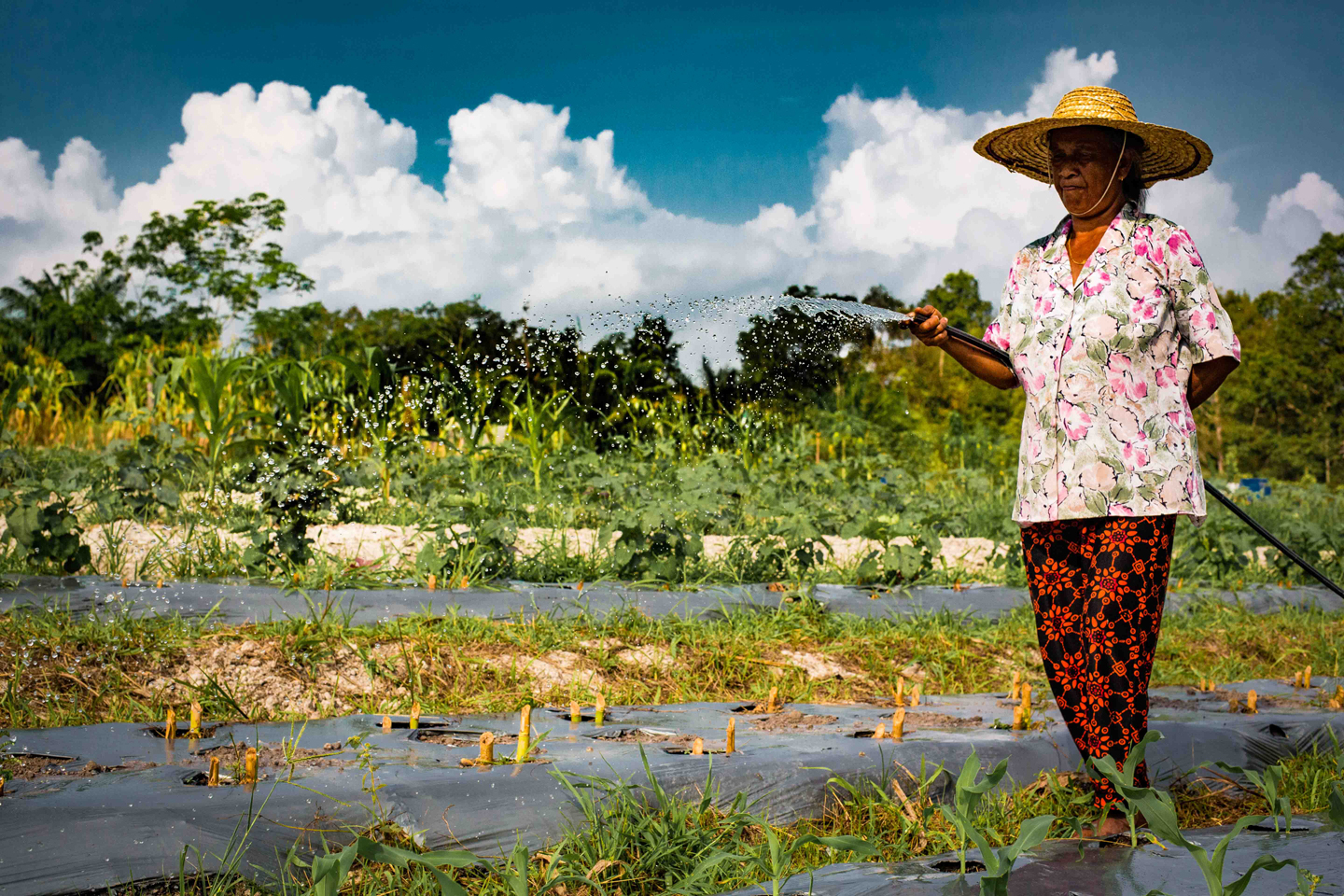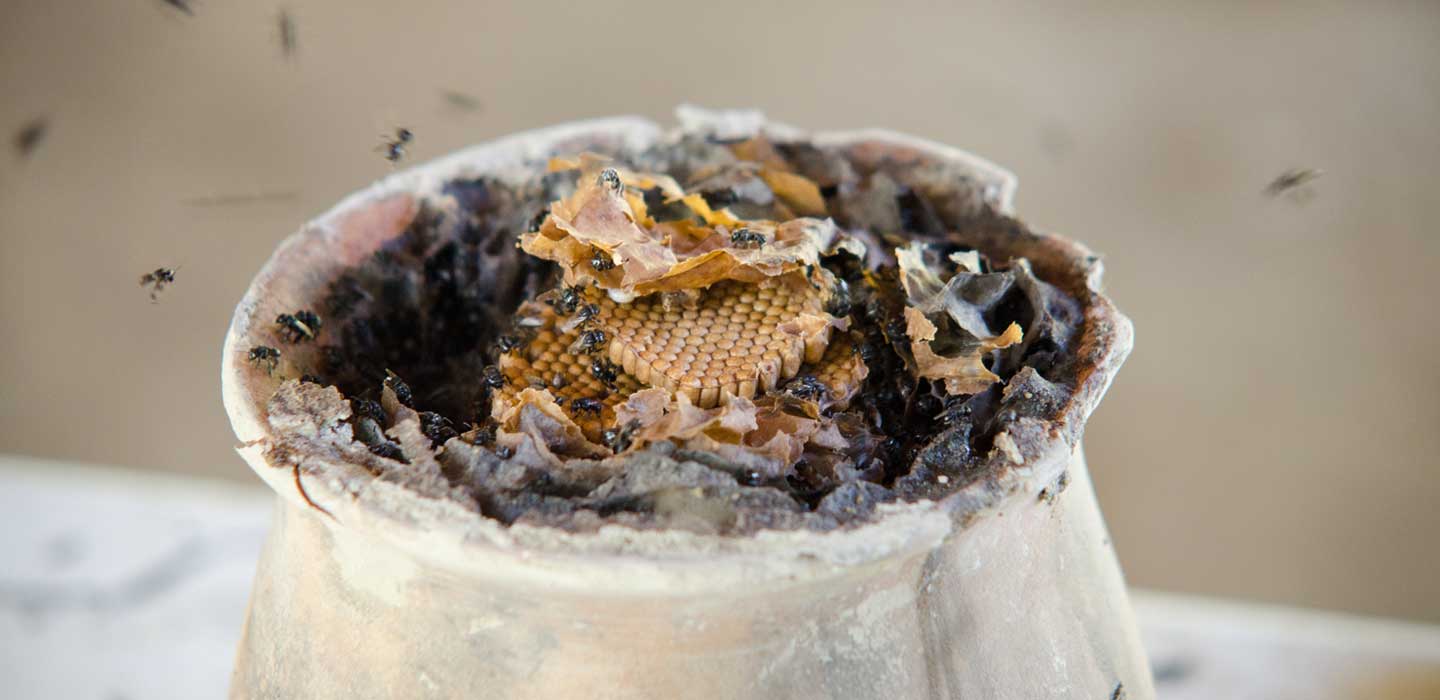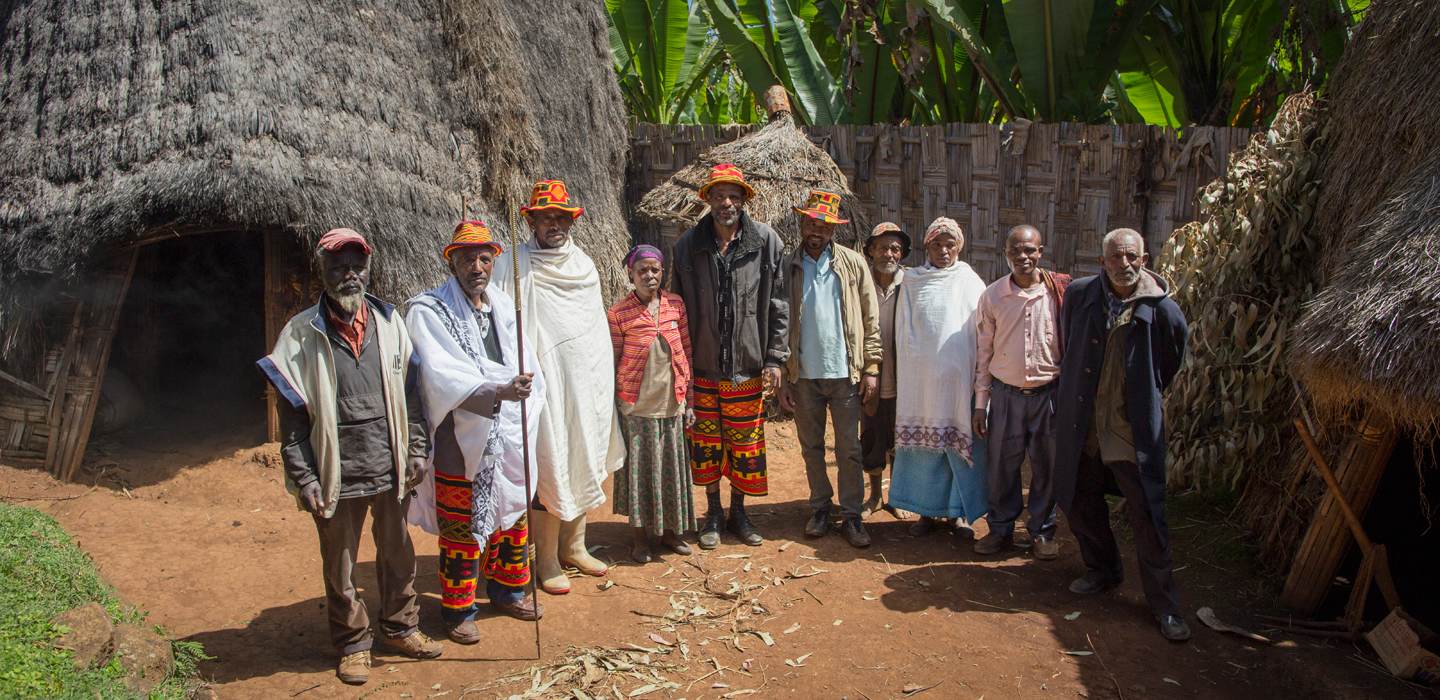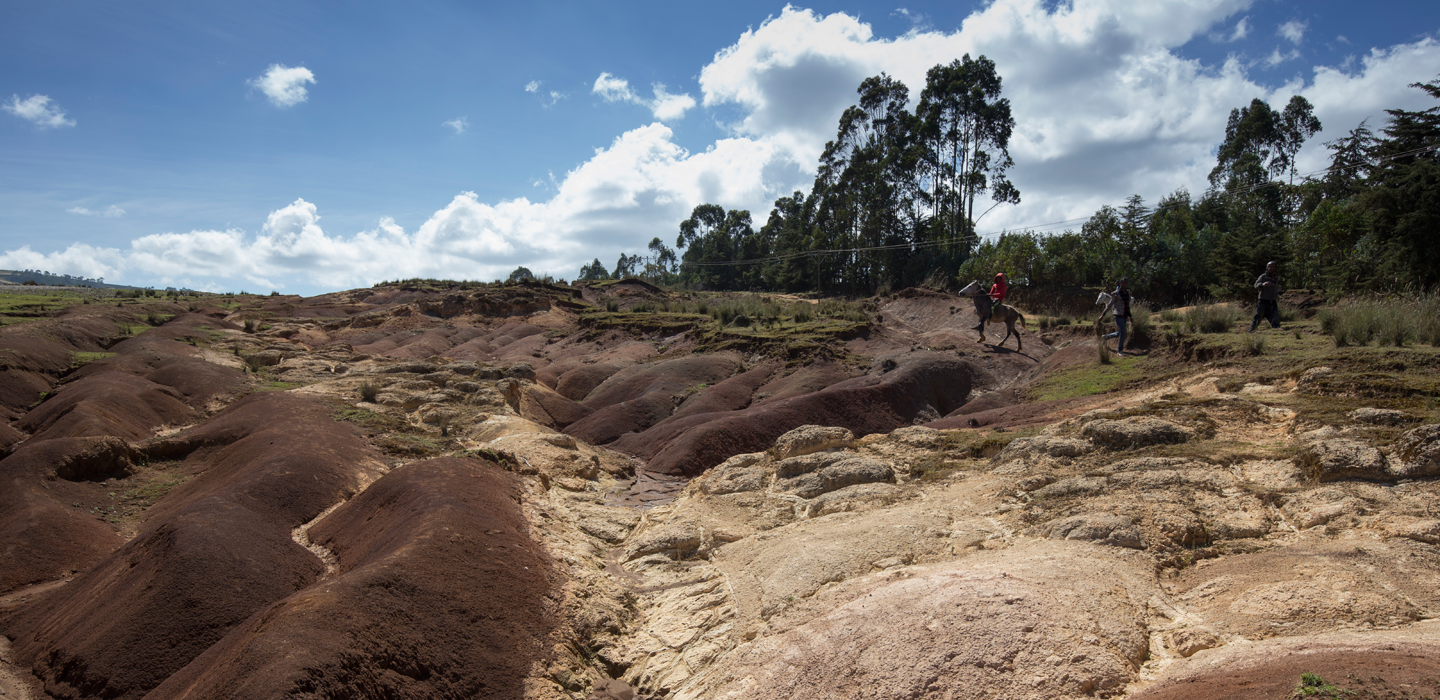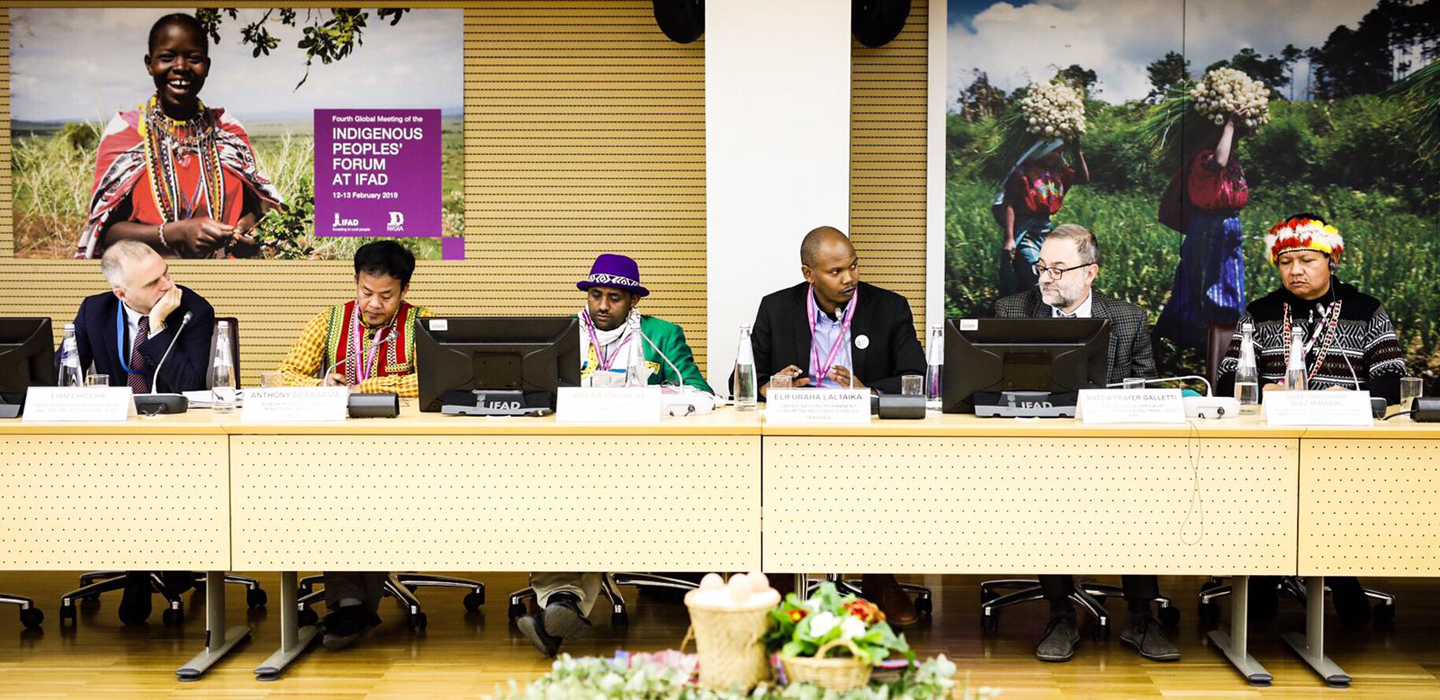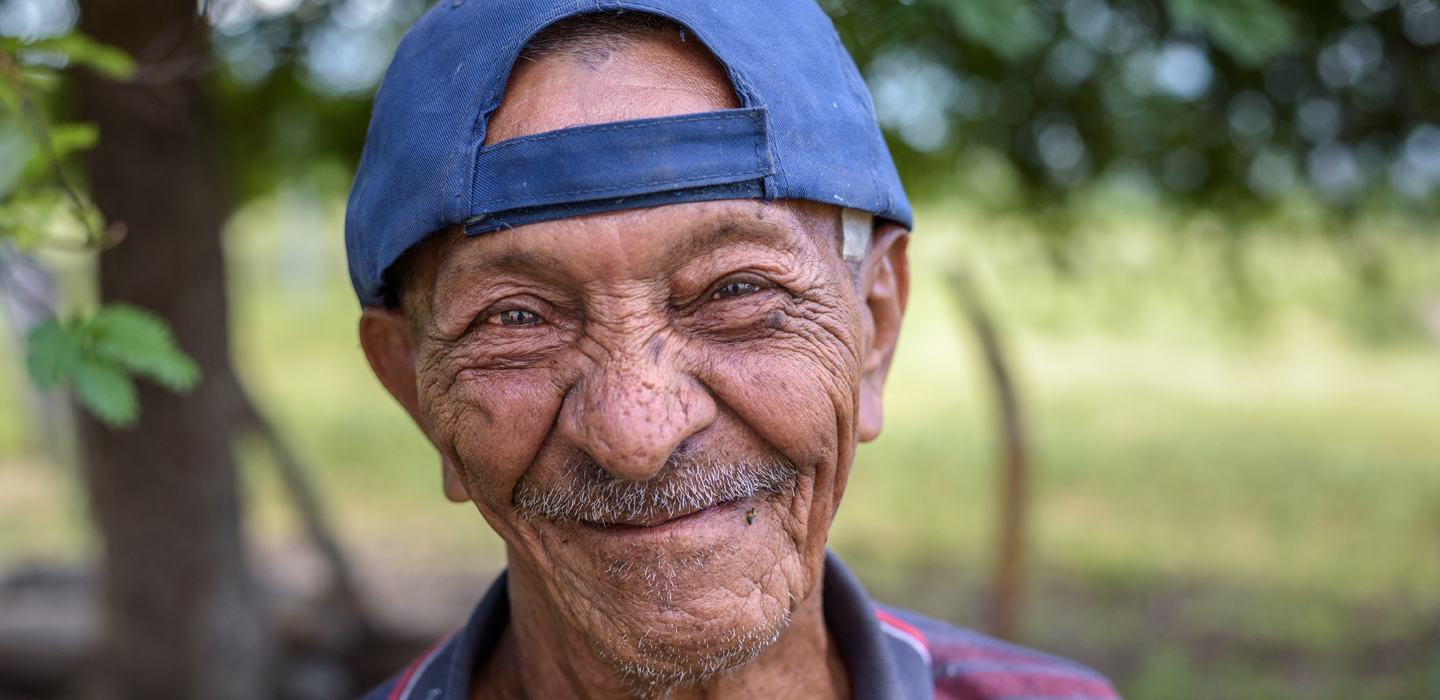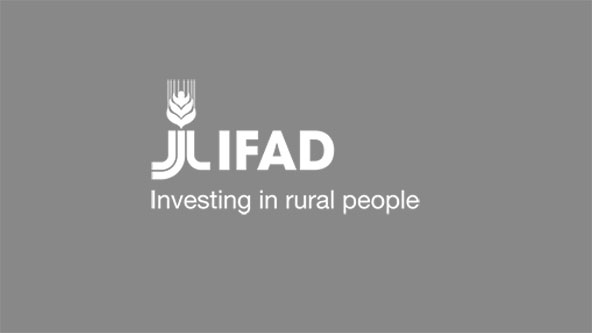Latest
Latest

Latest
Manual Submenu Topics
Search Results Filters
Search Results
The three types of biodiversity: explained
Genetic, species, ecosystem: learn about the three main types of biodiversity and explore the role each plays in making agriculture productive, nutritious and resilient.
Agriculture’s Indigenous trailblazers – Episode 57
On this episode, Indigenous leaders from Nepal, Mexico and Kenya weigh in on what it means to protect the planet while preserving their cultures, and fighting for the right to land, nutrition and education.
A year of rural stories
For countless people in IFAD-supported projects, 2023 was a year in which their lives changed. Here are some of the stories we told over the past 12 months.
Investing in a better future: A new day dawns, and we have reasons for hope
When climate and natural disasters strike, it’s rural people who are worst affected. Investing in their resilience ensures that they not only endure times of crisis, but emerge stronger. Associate Vice-President of Programmes Donal Brown explains how rural communities can change the world for the better.
How indigenous youth are grappling with climate change
Climate change is having a huge impact on Indigenous Peoples all over the world. We sat down with three indigenous youth to talk about how erratic weather patterns are affecting their communities and how they are drawing on tradition and technology to cope with it.
Indigenous Peoples partner with IFAD, Sweden’s Sida, and Packard Foundation to build resilience and adapt to climate change
As the climate crisis intensifies and the world seeks sustainable solutions, IFAD, together with its partners the Swedish International Development Cooperation Agency, and the Packard Foundation, have today announced the recipients of the Indigenous Peoples' Assistance Facility grants.
Rural realities go global with immersive storytelling
Few storytelling mediums are more powerful than film. Find out how IFAD is using virtual reality and 360° video technology to ensure that rural people’s voices are heard.
Indigenous youth are shaping our world
Indigenous youth not only embody many generations of tradition, but they are also the guardians of our future. By playing critical roles in today's society, they are shaping a better world.
Debunking three myths about rural people and the environment
The world is full of misconceptions about rural people and the environment. Find out what’s true and what’s not, as we debunk three major myths.
Rural people rely on biodiversity. Here's how IFAD protects it
Biodiversity is especially important for small-scale farmers. Here’s how IFAD is further integrating it into projects all over the world.
IFAD project helps preserve the Brazilian Amazon Rainforest and improve communities' lives
IFAD and the government of the state of Maranhão launched today a project that seeks to address the pressing issue of environmental degradation of the Amazon Forest in Maranhão and the high rates of poverty and food insecurity in the region - the “Amazon Sustainable Management Project (PAGES).”
Five tips for journalists reporting on Indigenous Peoples
Journalists can play an important role in telling the stories of Indigenous Peoples. Here are five ways in which the media can report on these important communities in a meaningful way.
Behind the scenes of an IFAD project: Your top questions answered
Find out what happens behind the scenes of an IFAD project as we answer our followers’ top questions.
From coca leaves to cocoa beans: How farmers in the Peruvian Amazon are innovating using digital tools
In Peru, IFAD-funded project helps small-scale farmers connect to new markets and access technical assistance online.
Pueblos Indígenas de Bolivia logran un reconocimiento mundial por su gestión ganadera adaptada al cambio climático, con apoyo del FIDA
Gracias a su excelente gestión ganadera, adaptada al cambio climático, y la protección efectiva sus medios de vida y los ecosistemas, los Pueblos Indígenas de tres departamentos de Bolivia se hicieron merecedores del Premio de los Pueblos Indígenas, siendo así reconocidos como el proyecto con mejores resultados entre aquellos financiados por el FIDA.
Meet the winners of the Indigenous Peoples Awards 2023
Through the Indigenous Peoples Awards, IFAD celebrates inspirational development projects that partnered with and made a real difference to indigenous communities in 2022
Pope Francis receives indigenous leaders who call for climate justice
40 indigenous leaders, who were in Rome to attend the 6th Global Meeting of the Indigenous Peoples’ Forum hosted by IFAD, met with with His Holiness, Pope Francis, today, and raised their concerns about the toll that extractive and exploitive industries fuelling the global economy were having on growing inequality, preventing access to basic human rights and hindering environmental sustainability.
Giving Indigenous Peoples the recognition they deserve: Why updates to IFAD's policy matter
IFAD’s updated Policy on Engagement with Indigenous Peoples enshrines the value of their traditions and supports the crucial role they play in the world. We spoke with three experts to get an insight into the policy.
Promoting indigenous voices - Episode 40
With IFAD’s Indigenous Peoples’ Forum coming up in February, we focus on a crucial yet underrepresented group in the fight for climate change: Indigenous Peoples.
2022: Resilience in the face of adversity
As we near the end of 2022, IFAD looks back on some of the themes that defined a year of dramatic change.
Indigenous Peoples are protecting biodiversity, one harvest at a time
To conserve biodiversity, Indigenous Peoples use centuries-old food systems anchored in sustainable practices and unique to their native ecosystems.
It’s time to end violence against rural women
Violence against women is one of the greatest barriers to sustainable development. On the International Day for the Elimination of Violence against Women, let's reaffirm commitments to eliminate and prevent gender-based violence.
Saving the Amazon: The story of the indigenous women fighting climate change
In the heart of the Peruvian Amazon, a group of indigenous women are fighting climate change through reforestation and ancestral farming techniques.
Five ways IFAD is helping to reduce rural poverty in an age of climate change
Even when a world without poverty seems out of reach, here’s how IFAD continues to work in developing countries, amplifying the voices of rural people and integrating them into value chains, so they can earn and save, while feeding the world and conserving the natural environment.
You are what you eat: Indigenous youths breathe new life into ancient traditions
Young members of indigenous communities are working to reverse centuries of dispossession and preserve their way of life, including their food heritage.
2022 Call for Nominations: IFAD Indigenous Peoples Awards
The Indigenous Peoples Awards recognize the efforts and the achievements of development projects that successfully engage with indigenous peoples or ethnic minorities living in rural areas. They promote best practices, share knowledge and identify opportunities to replicate and scale-up results.
5 indigenous words about the environment that don’t exist in English
Indigenous peoples can teach us a lot about mitigating the impacts of climate change. Over generations, these communities have protected the biodiversity of their homes. They also use language in a powerful way to describe how they interact with the natural environment. Discover five unique words and concepts.
IFAD-funded project to help preserve Amazonian forest in one of Brazil’s poorest states
IFAD and the Government of the State of Maranhão signed a financing agreement today for the implementation of the Amazon Sustainable Management Project (PAGES). Implemented in Brazil’s state with the highest poverty and food insecurity rates, the project will address the entrenched environmental degradation of the Amazonian forest.
Why free, prior and informed consent is so important for indigenous peoples
At the heart of this year’s session of the UN Permanent Forum on Indigenous Issues is “free, prior and informed consent.” Quite a mouthful! But what does it really mean? And why does it matter?
The importance of food sovereignty for indigenous peoples: A conversation with Dr. Elifuraha Laltaika
Learn more about food sovereignty and what it means for indigenous peoples with Dr Elifuraha Laltaika, a professor of law and expert on indigenous peoples’ rights.
Indigenous peoples lead adaptation efforts through IFAD’s dedicated funding
Over the millennia, indigenous peoples have developed practices that honour the interconnectedness of people and nature – yet all too often, their contributions are overlooked and devalued. IFAD is committed to supporting indigenous peoples in overcoming poverty and meeting global challenges through building on their identities and cultures.
2021 Gender Awards: Five IFAD-supported projects transforming women’s roles in rural communities
Every year, we recognize a project from each of our regions that empowers rural women and girls. Here, we present the winners of the 2021 Gender Awards.
Brazil: Sharing Buriti with the rest of the world
Brejo Dois Irmãos is a tiny and isolated community of 200 families in north-east Brazil. It hides a precious treasure: the burití, or “tree of life” in the indigenous Tupi-Guarani language.
Disability rights matter for the world’s rural-dwellers
Our vision of inclusive, sustainable, green, and resilient rural economies can’t be accomplished without the inclusion of persons with disabilities. We are committed to finding ways for persons with disabilities to participate fully in society and realize their potential as contributors to vibrant rural economies.
Highlights from COP26 – Friday 12 November 2021
The end of COP26 is fast approaching, and we’re still waiting for a final agreement. However, based on the draft texts that have been released, it’s clear there’s still a risk of gaps between long-term targets and short-term action.
On the banks of the São Francisco, where fishing, tourism and social inclusion converge
Brazil’s São Francisco river is a place of convergences. The river delta, and the stunning tropical forest surrounding it, is home to many different ethnic groups who settled there in search of a fresh start. Plans for a new ecotourism route that would allow visitors to experience the area’s rich culture and traditions were well under way – and then the pandemic struck. Nevertheless, one IFAD-funded project managed to support the region’s artisans and fishers.
Four ways nature-based solutions benefit rural people and communities
“Nature-based solutions” (NbS) might sound like a buzzword, but these techniques are some of the most effective tools in our arsenal against the effects of climate change.
Neglected and underutilized species are the key to nourishing the world
The natural world has a wealth of plants that can sustain human life, yet global food systems are dominated by just three: wheat, maize, and rice. These species provide 50 percent of the plant-based calories we eat and occupy 40 percent of the world’s arable land.
Revitalizing the practice of shifting cultivation: A conversation with Dr Dhrupad Choudhury
Shifting cultivation is an indigenous food system practiced by millions of people across south and south-east Asia. A new resource book authored by Dr Dhrupad Choudhury, in collaboration with ICIMOD, is designed to guide policymakers and development professionals in sustainably transforming this practice.
Creating smoke-free kitchens in Nepal through Indigenous community empowerment
EcoHimal Nepal is a national non-government organization that works with rural mountain communities. They developed a project with NELHOS, another local organization funded by IFAD, in Rukuma and Chepuwa villages of Bhotkhola Rural municipality to develop ‘’smoke-free kitchens’’.
Responding to the challenges of a year like no other: IFAD’s 2020 Annual Report
IFAD’s Annual Report provides a concise, compelling and interactive discussion of how we addressed the challenges of the last year.
Recipes for Change: A conversation with Chef Shane Chartrand
For over a decade, Chef Shane Chartrand has been on a personal and culinary journey: figuring out what it means to be of Cree descent and of Métis upbringing, and how to integrate that into being a professional chef living and working in Edmonton, Alberta, Canada, on Treaty 6 territory.
The Maasai of Kenya and the Red Maasai sheep slow food presidium
The rights of indigenous peoples to control their land according to their own needs and decisions is fundamental to protect their livelihoods and defend the biodiversity of native animal breeds and plant varieties.
UN to involve millions of rural people in 2021 Food Systems Summit as part of ambitious public engagement process
An unprecedented commitment to ensure that the voices and opinions of millions of the world’s most remote rural people are at the heart of the United Nations Food Systems Summit was announced today by the UN Secretary-General’s Special Envoy, Agnes Kalibata and the President of IFAD, Gilbert F. Houngbo.
Indigenous Peoples are critical to build a more sustainable post-pandemic world, says IFAD President
Indigenous Peoples have suffered disproportionately from the economic impacts of COVID-19, yet they hold essential knowledge for rebuilding a more sustainable and resilient post-pandemic world, free of poverty and hunger, said Gilbert F. Houngbo, President of IFAD, at the opening of the Fifth global meeting of the Indigenous Peoples’ Forum today.
Indigenous food systems are at the heart of resilience
Indigenous food systems represent a treasure trove of knowledge that contributes to well-being and health, benefiting communities, preserving a rich biodiversity, and providing nutritious food.
Invitation to Indigenous Peoples’ Forum at IFAD: How indigenous food systems can help build resilience to impacts of the COVID-19 pandemic
This year, representatives from Indigenous Peoples’ groups from around 57 countries will meet with development organisations and governments to discuss ways to address challenges and opportunities.
New Vision, New Year – Episode 16
In this month’s episode, we’re focusing on youth and indigenous peoples as agents of change in the developing world.
A year in review: Nurturing resilient rural communities in a time of change
2020 has been a tumultuous year. The COVID-19 pandemic has affected everyone across the world – and meanwhile, the other challenges faced by rural people across the globe haven’t gone away.
Five reasons IFAD is putting small-scale farmers at the forefront of food systems transformation
Our current food systems are not sustainable. Hunger has been on the rise for several years, with an estimated 811 million people worldwide going hungry in 2020 – and with the effects of the COVID-19 pandemic, up to 132 million more people are expected to join this number soon.
Three reasons to invest in land tenure security
For rural people, especially low-income rural people, land and livelihood are one and the same.
Coping with COVID-19: Building Farmers’ Resilience - Episode 11
As the COVID-19 pandemic continues on, many people around the world, including small-scale farmers, are learning how to cope with its various effects.
Youth leaders working towards transformative rural development
From climate action groups to political institutions, youth are taking on leading roles and bringing new perspectives into the table – showing they are not only the future, but also the present.
Indigenous youth in agriculture during COVID-19
The COVID-19 pandemic has forced many people to re-examine everything: their priorities, their jobs, even their roles in society.
Un total de 25 organizaciones impulsan una campaña para empoderar a las mujeres rurales, indígenas y afrodescendientes frente a la pandemia de COVID-19
58 millones de mujeres viven en zonas rurales de América Latina y el Caribe; una parte importante de ellas juega un rol central en la producción y abastecimiento de alimentos
2020 Call for Nominations: Indigenous Peoples Awards
IFAD launches the first call for nominations for the Indigenous Peoples Awards to recognize the efforts and the achievements of development projects that successfully engage with Indigenous Peoples or ethnic minorities living in rural areas.
From project participant to project staff: Priscilla Torres’s story of growth
Although you won’t find the little village of Wowetta on any Internet map, it’s the centre of the universe for Priscilla Torres, a 37-year-old Wapishana woman. A very active and outspoken mother of three, Priscilla is a true community leader.
Indigenous Peoples are crucial partners to build a better post–COVID-19 world, says IFAD President
Indigenous Peoples and their unique knowledge are essential to address the COVID-19 outbreak and to build a more sustainable, resilient world.
Indigenous knowledge – and resilience – in a COVID-19 world
It is increasingly clear that human health and our relationship with nature are inescapably intertwined. This holds true across many dimensions of health, including the potential for the transmission of disease – just as we are seeing with the current COVID-19 pandemic.
Building up family farmers’ resilience through nature-based solutions in Latin America and the Caribbean
Resilience has become the talk of the town in the development community.
Mattia Prayer Galletti talks about indigenous peoples
Mattia Prayer Galletti, lead technical specialist at IFAD , talks about indigenous peoples.
Six ways investing in rural communities makes people healthier
Malnutrition causes health problems and losses in economic productivity. Over the course of their lifetimes, malnourished individuals can earn 10 per cent less than those who are well-nourished.
Indigenous Peoples in the Farming Front Seat - Episode 5
In IFAD's Podcast Episode 5, we’re focusing on indigenous peoples and the challenges they face when it comes to agriculture.
Interview with Recipes for Change Chef Robert Oliver
I have always loved food - how it brings people together, the smells and flavours of new cultures. I guess I associate food most with gathering, communion.
Climate Knowledge from the Ancestors
Have you ever found yourself looking outside the window, wondering if it will be raining soon? Perhaps you never thought of asking the ants.
What does it mean to be “smart” on planet Earth?
What are the global transformations required for our food systems to become sustainable in the face of climate change?
On a mission to save the Amazon
Against the backdrop of the climate crisis, José Gregorio Diaz Mirabal, Coordinator of the Congress of Indigenous Organizations of the Amazon Basin (COICA) visited IFAD in Rome, where he discussed the situation affecting the Amazon and the implications for indigenous peoples’ livelihoods and for humanity as a whole.
New Report: Investments in indigenous peoples, youth and women essential to fight climate change in Latin America and the Caribbean
Development projects that integrate investments in rural indigenous peoples, youth and women with measures to adapt to climate change are more likely to be successful in Latin America and the Caribbean, according to a new report launched today by IFAD.
Making local crops work for nutrition-sensitive agriculture
A new framework will guide practitioners to use a broad portfolio of crop species to bring nutrition back to the table.
Indigenous communities in Malaysia building capacity for resilience through IPAF
The Jakun people is the largest group of the Orang Asli Indigenous Peoples of Malaysia. They have an amazing partnership between people and the forest - looking after it and using only what they need to live. But their traditional livelihoods are at risk.
World Bee Day - High-altitude honey
In the Sierra Norte mountain range in Mexico lives a special breed of bee. Known locally as pisilnekmej, the Scaptotrigona Mexicana is a member of the family native to the American continent whose distinctive trait is that they have no sting.
Recommended books on Indigenous Peoples
The United Nations Permanent Forum on Indigenous Issues (UNPFII) will be held on 22 April to 3 May in New York. Here is our shortlist of books on the diverse issues affecting Indigenous Peoples around the world that will be discussed at the Forum.
The value of indigenous tree species in Ethiopia
In the Chencha region of southern Ethiopia, erosion continues to be a pressing concern for the Gamo people, one of the main indigenous tribes of Ethiopia. The Gamo people live in the highland area and primarily practice mixed agriculture and weaving.
Forum leaders call on governments to recognize the contributions of indigenous peoples in the fight against climate change
Leaders attending the 4th Global Meeting of the Indigenous Peoples' Forum, held at the International Fund for Agricultural Development's (IFAD's) headquarters, called on governments to recognise indigenous peoples’ contributions in the fight to reduce the impacts of climate change and encourage sustainable development around the world.
Promoting the rights perspective for indigenous peoples
Over the years international support for indigenous peoples has grown, also sanctioned by international declarations.
Harnessing indigenous peoples' knowledge for a food-secure future in the face of climate change
The fourth global meeting of the Indigenous Peoples' Forum at the International Fund for Agricultural Development (IFAD) promotes indigenous peoples' knowledge and innovations for climate resilience and sustainable development.
